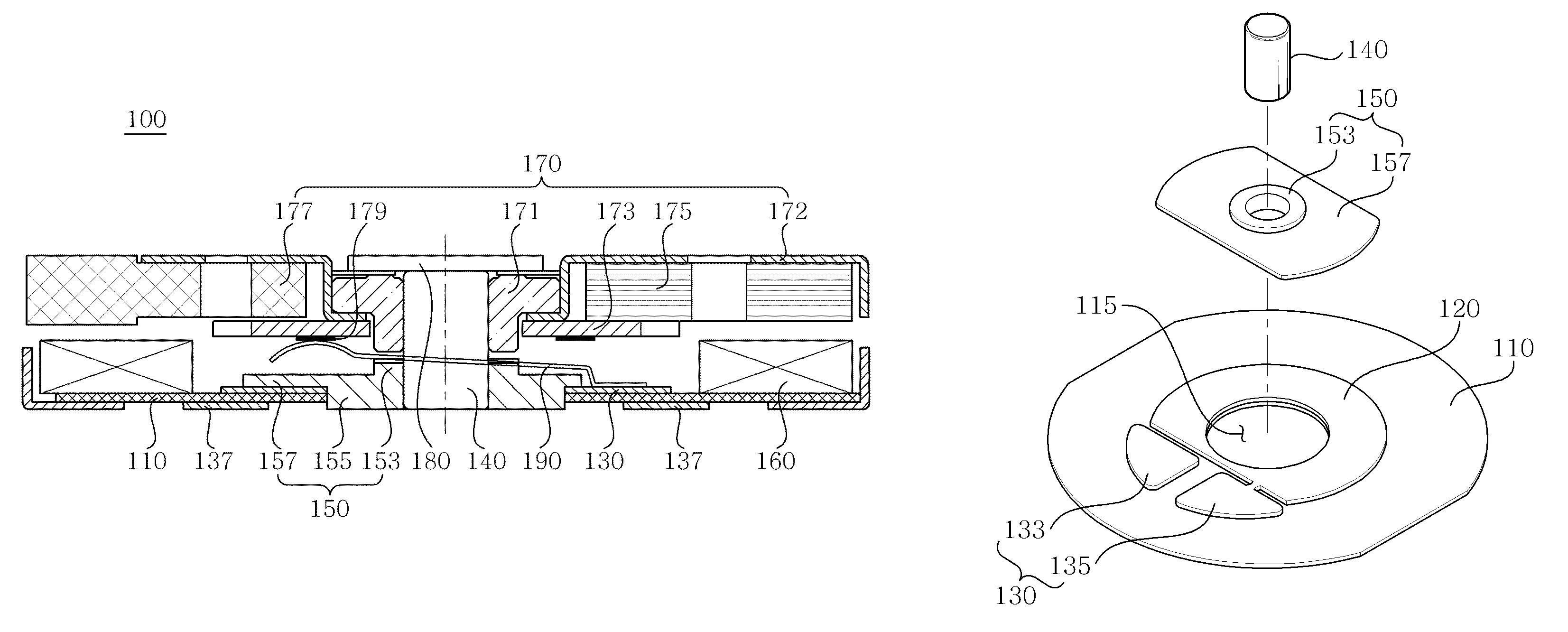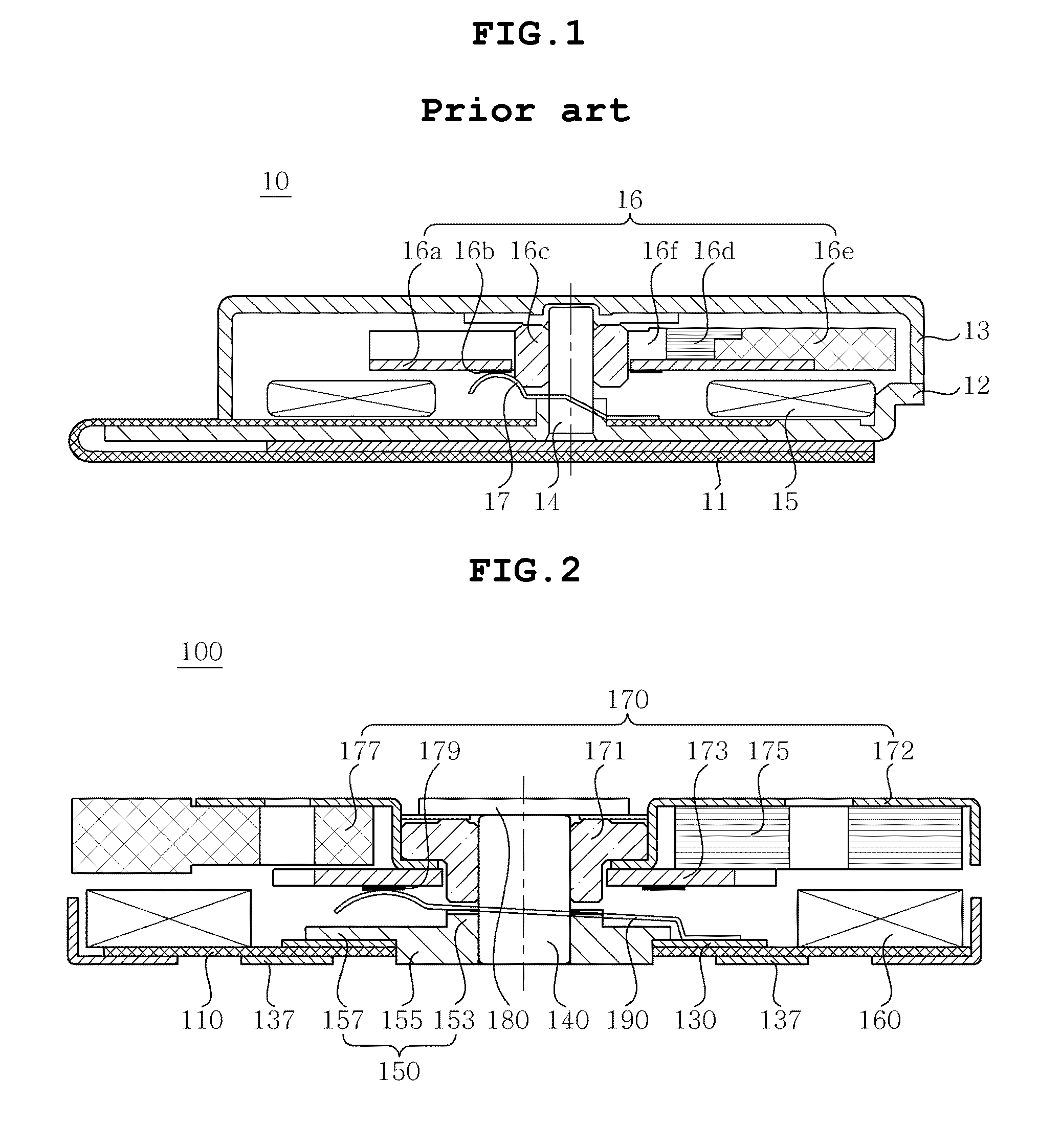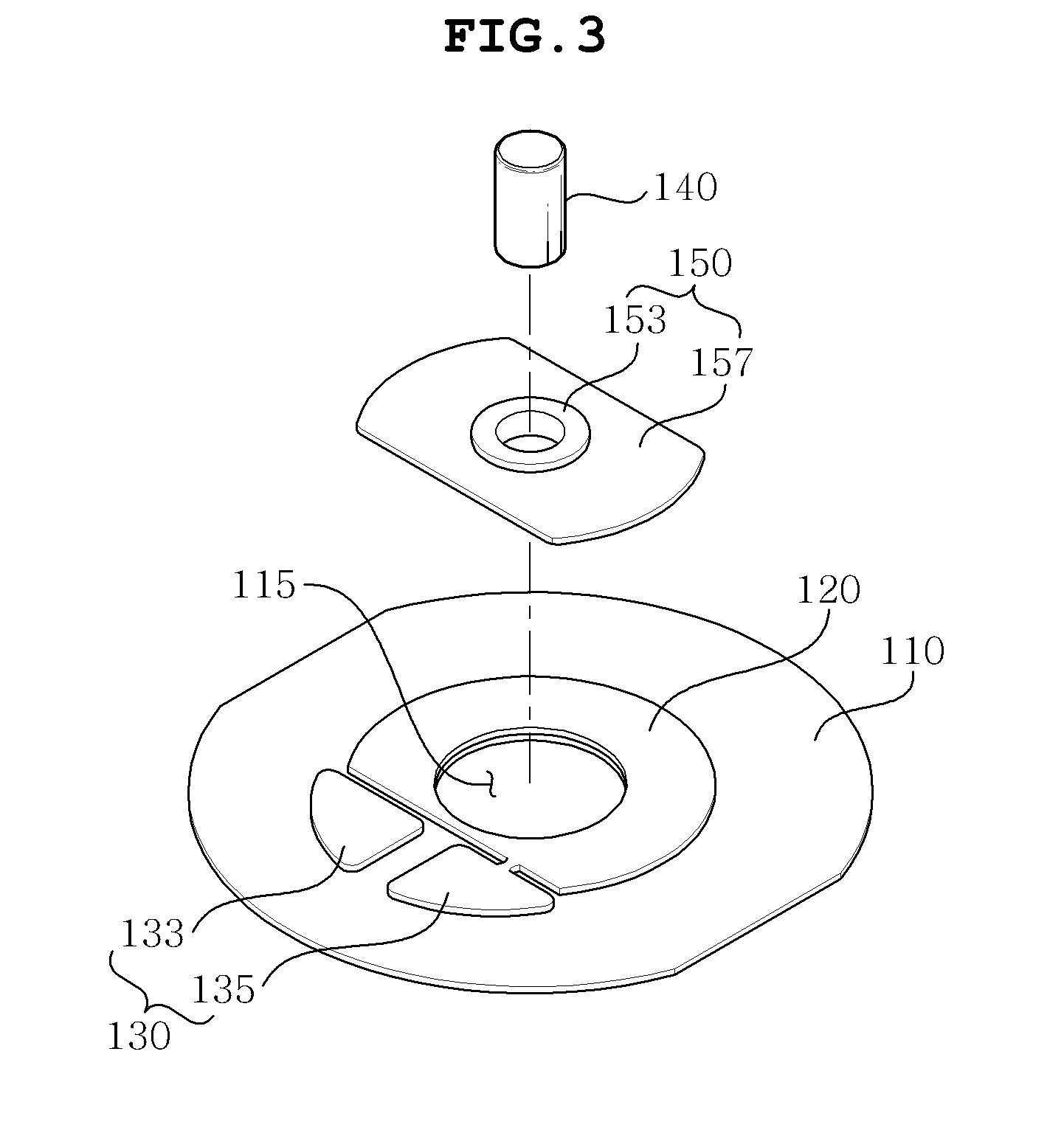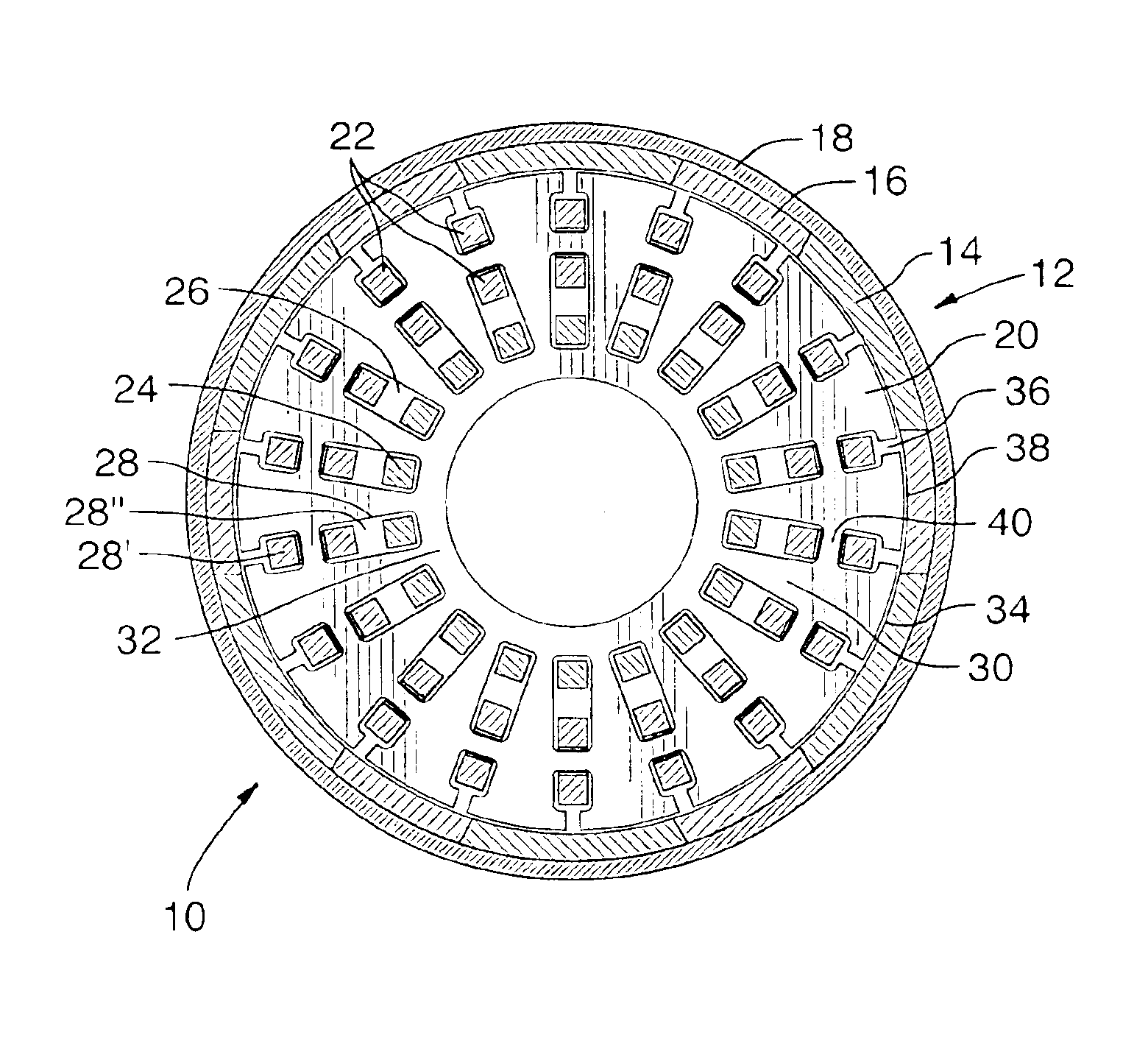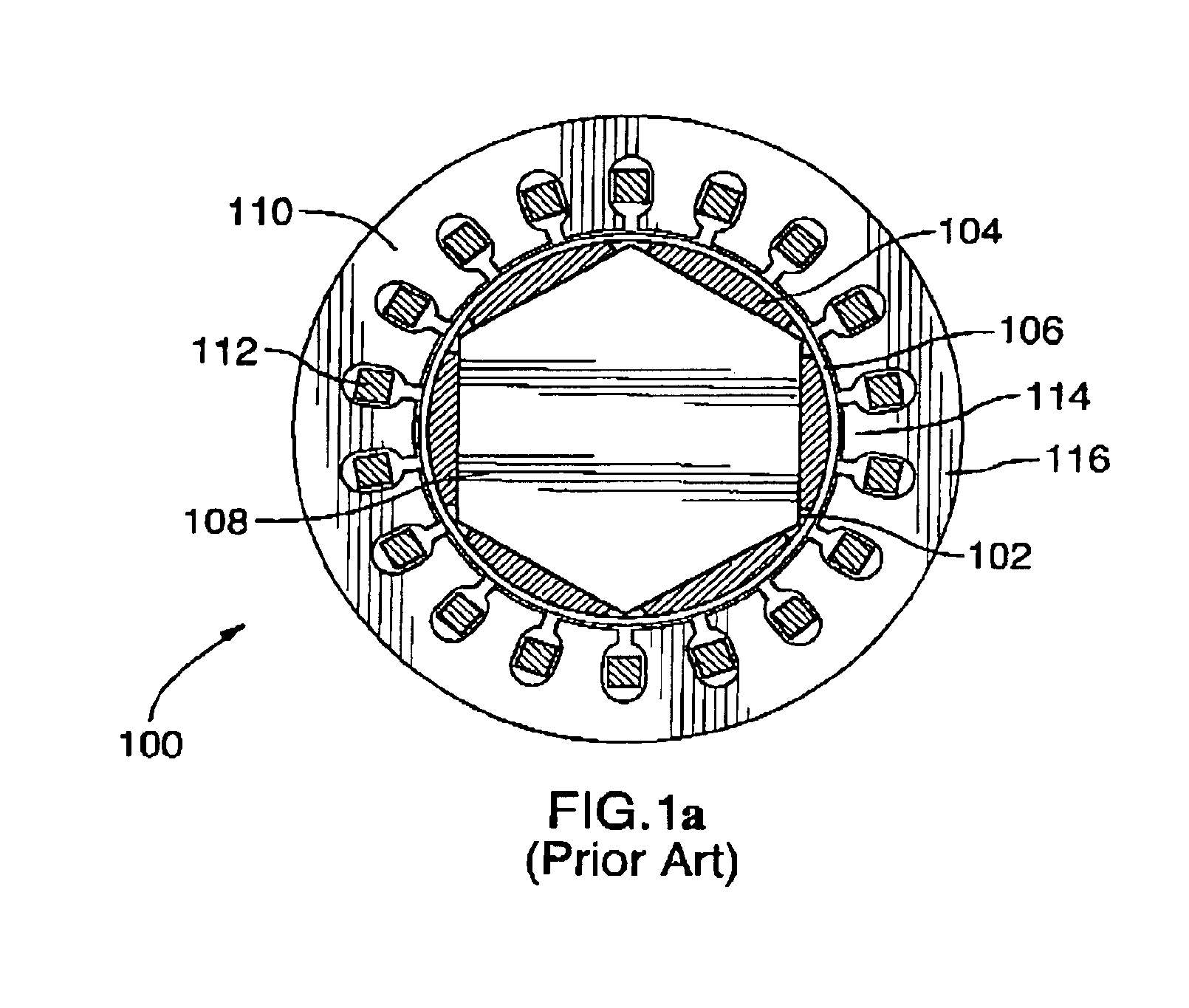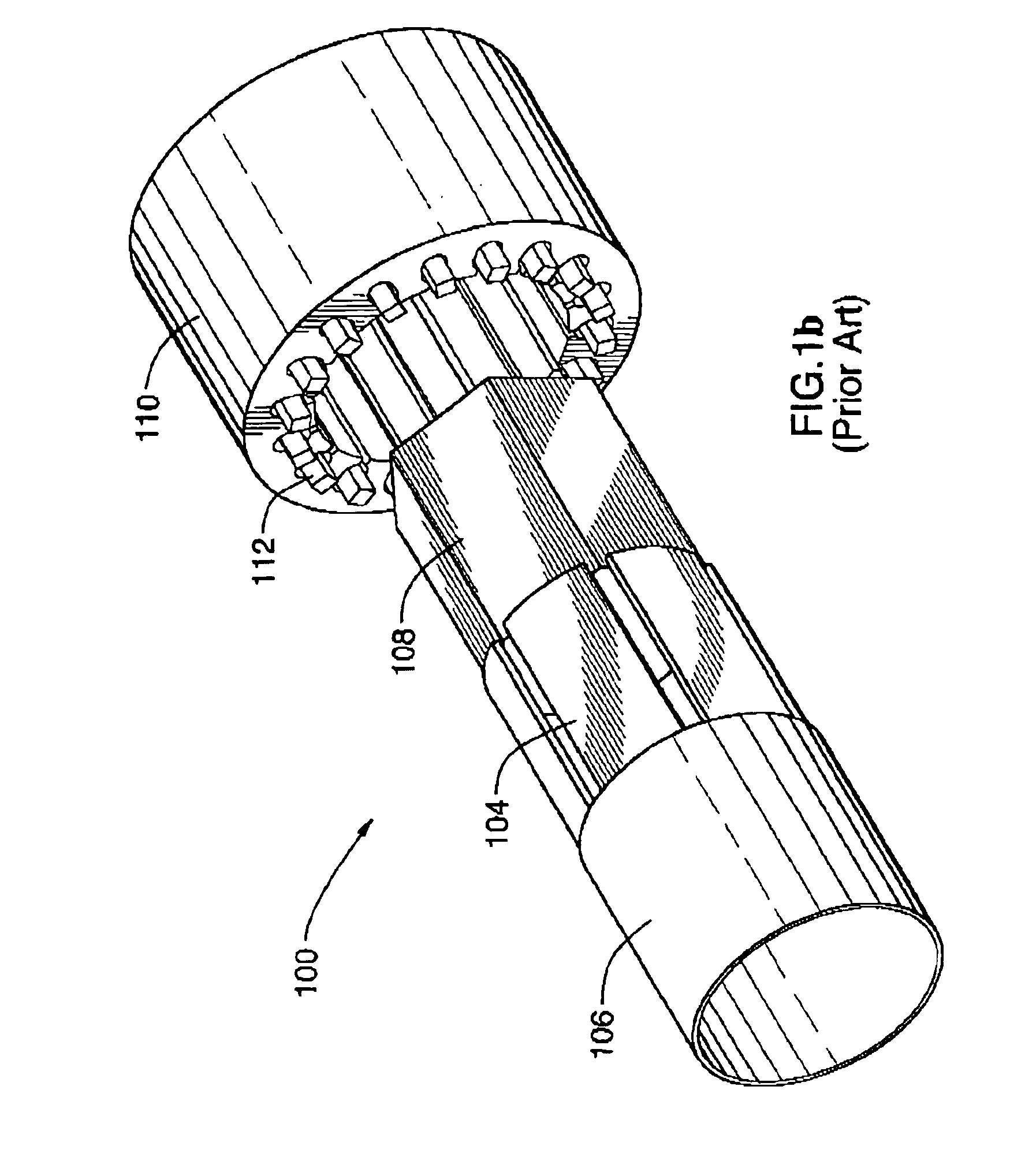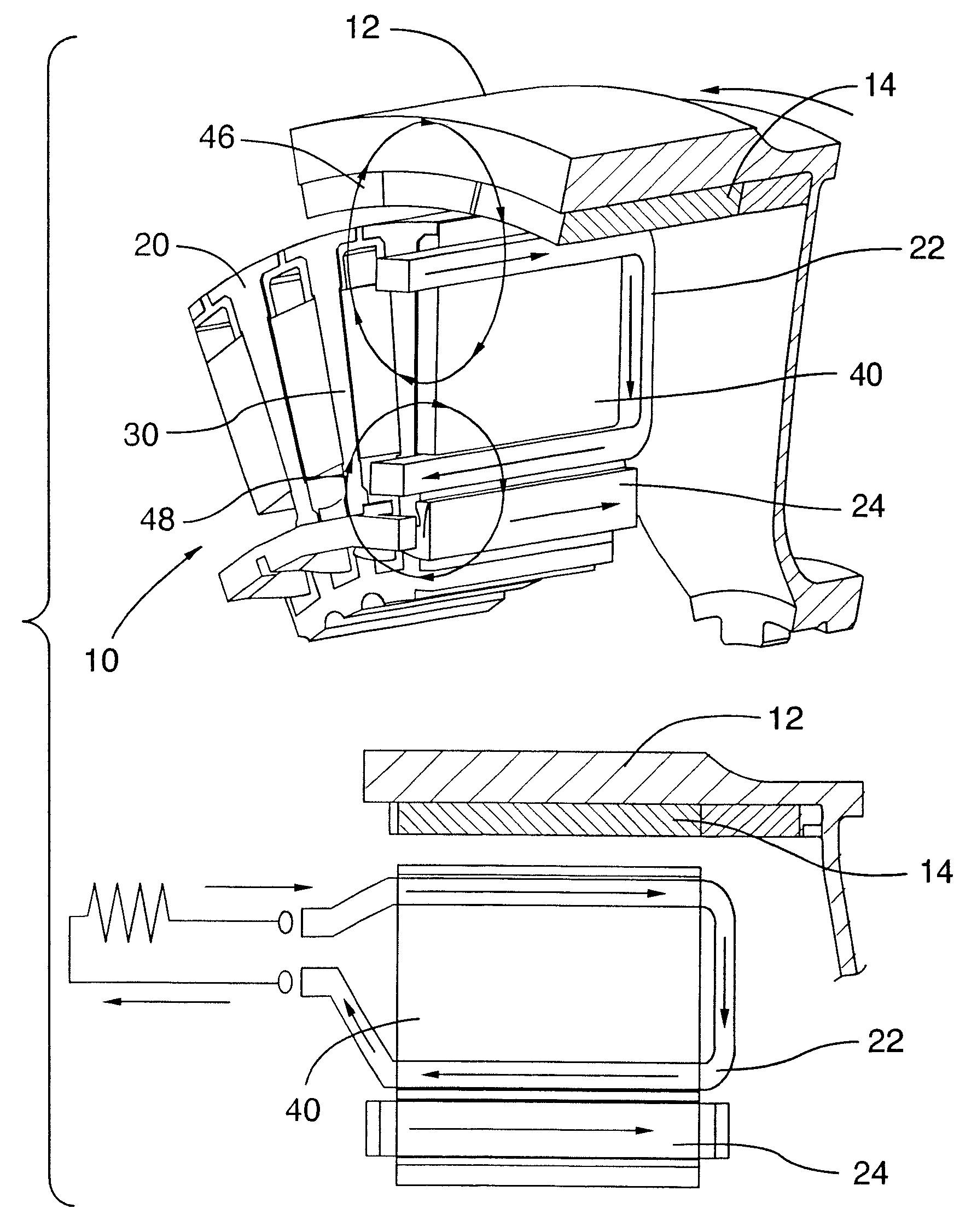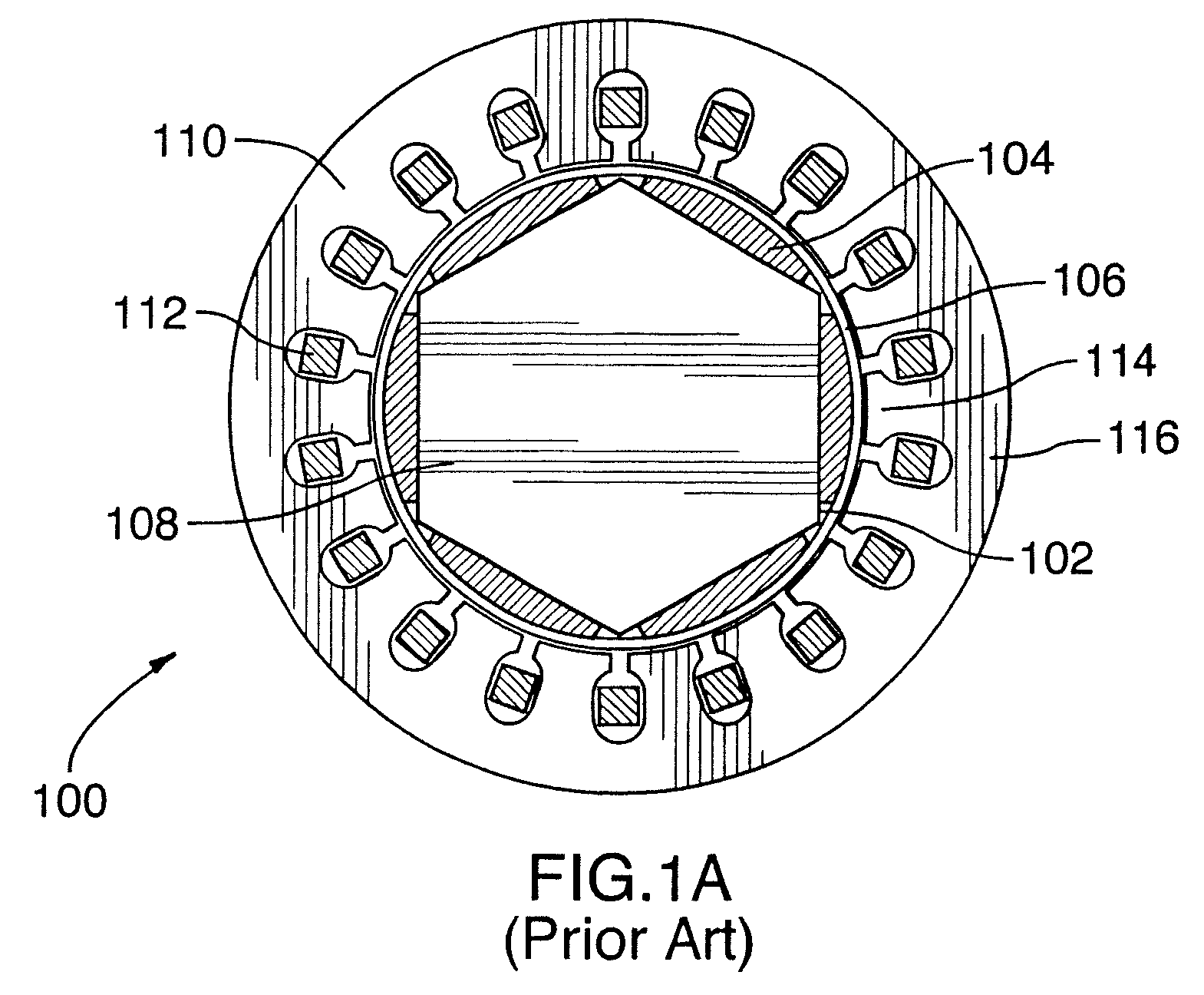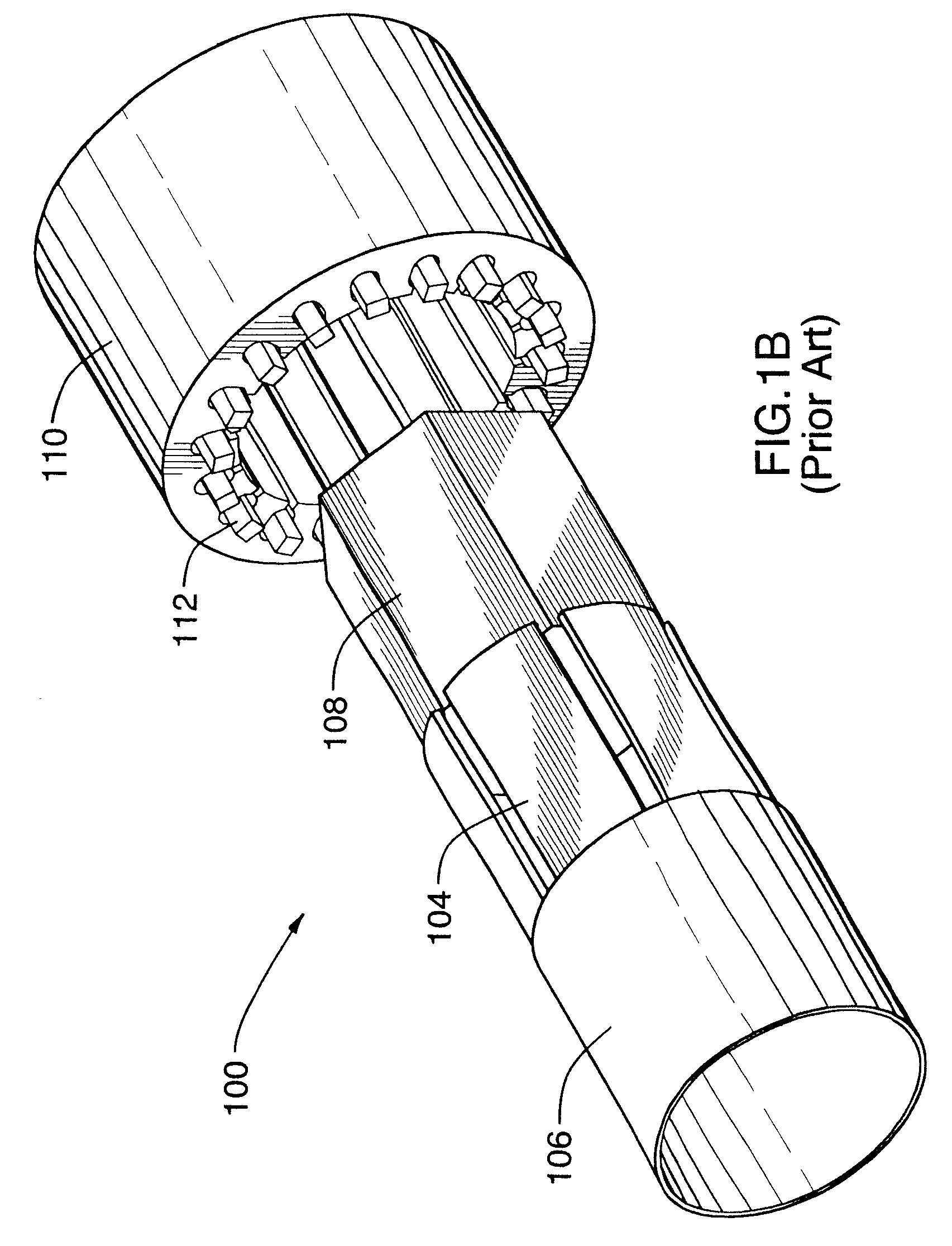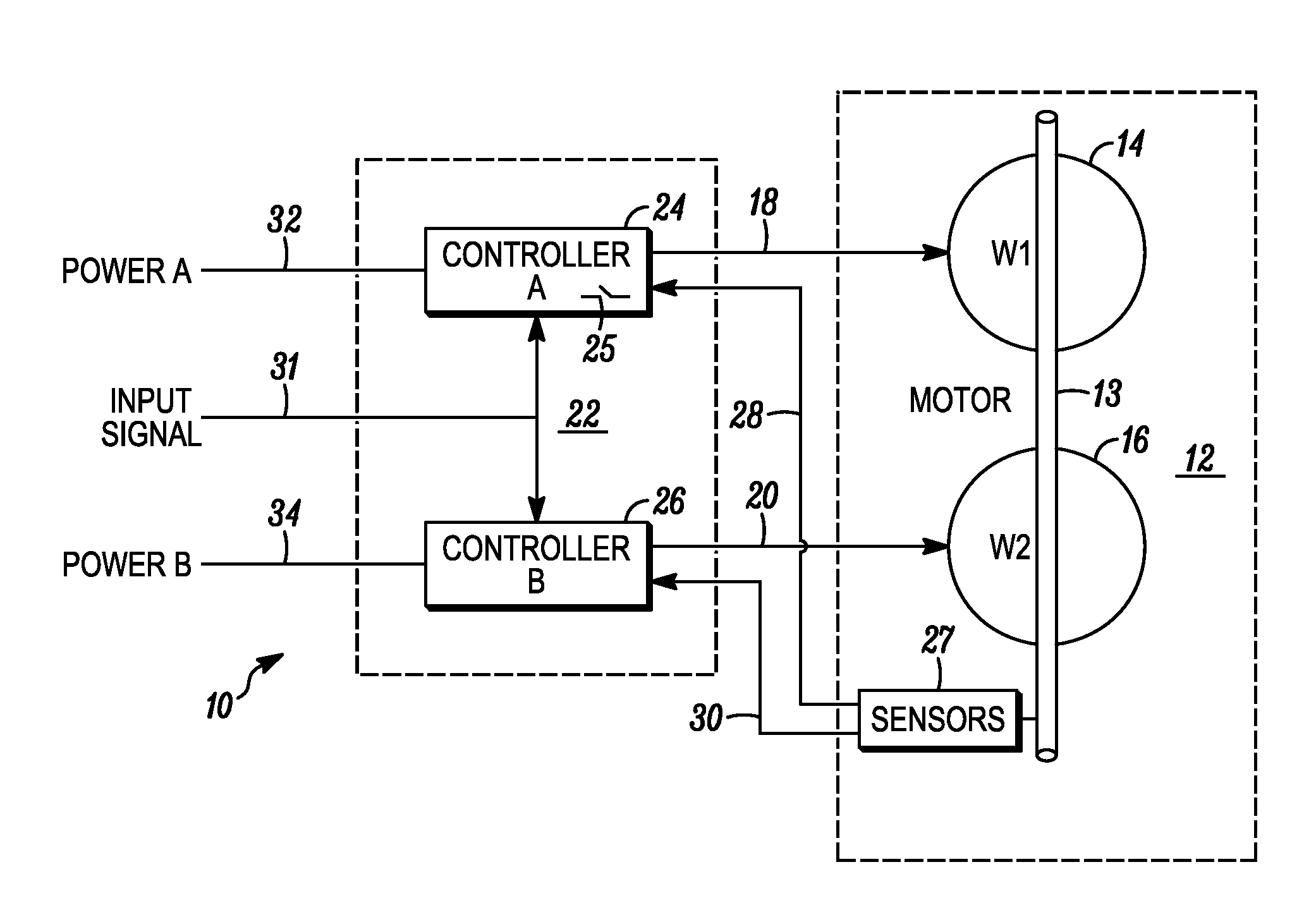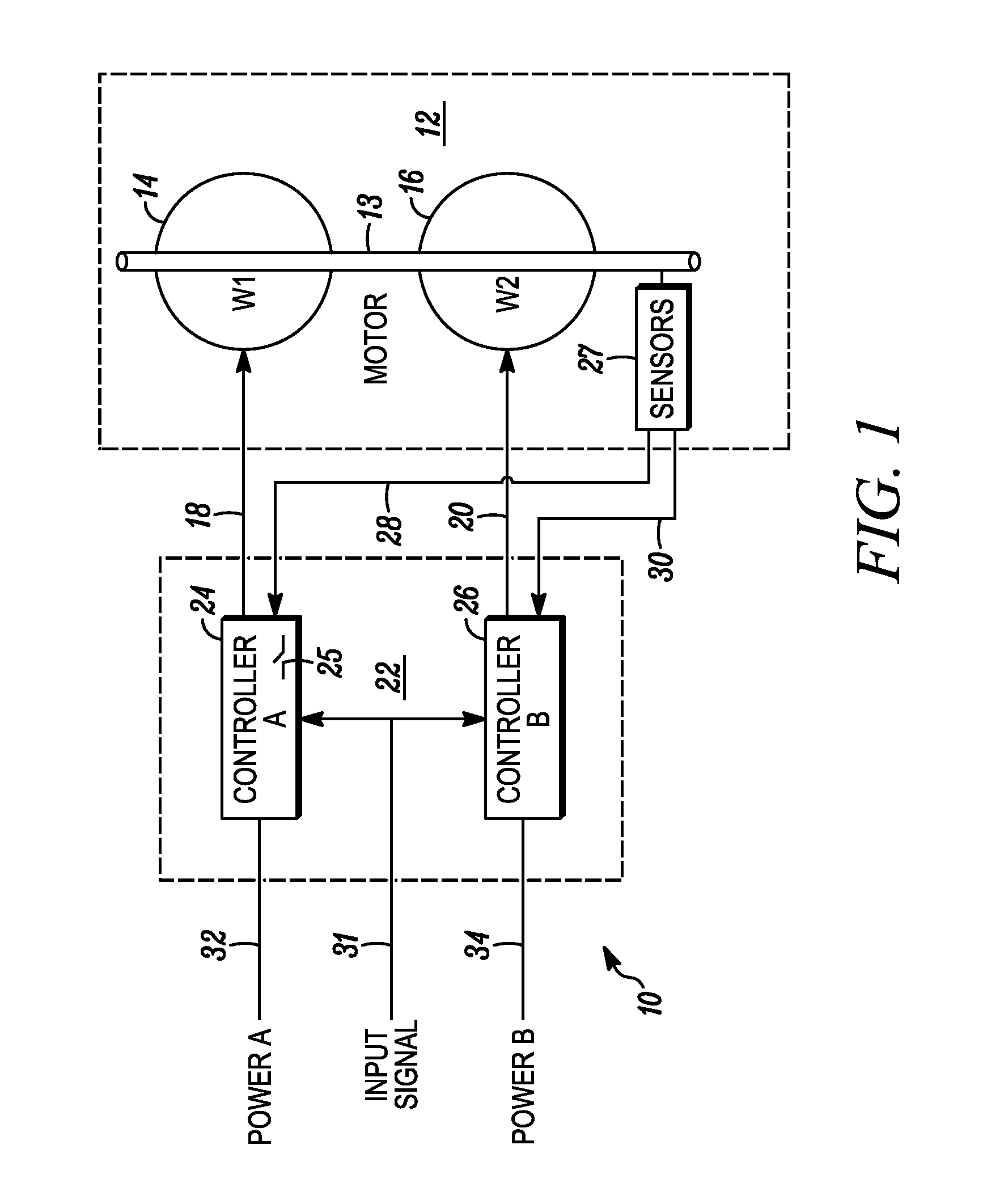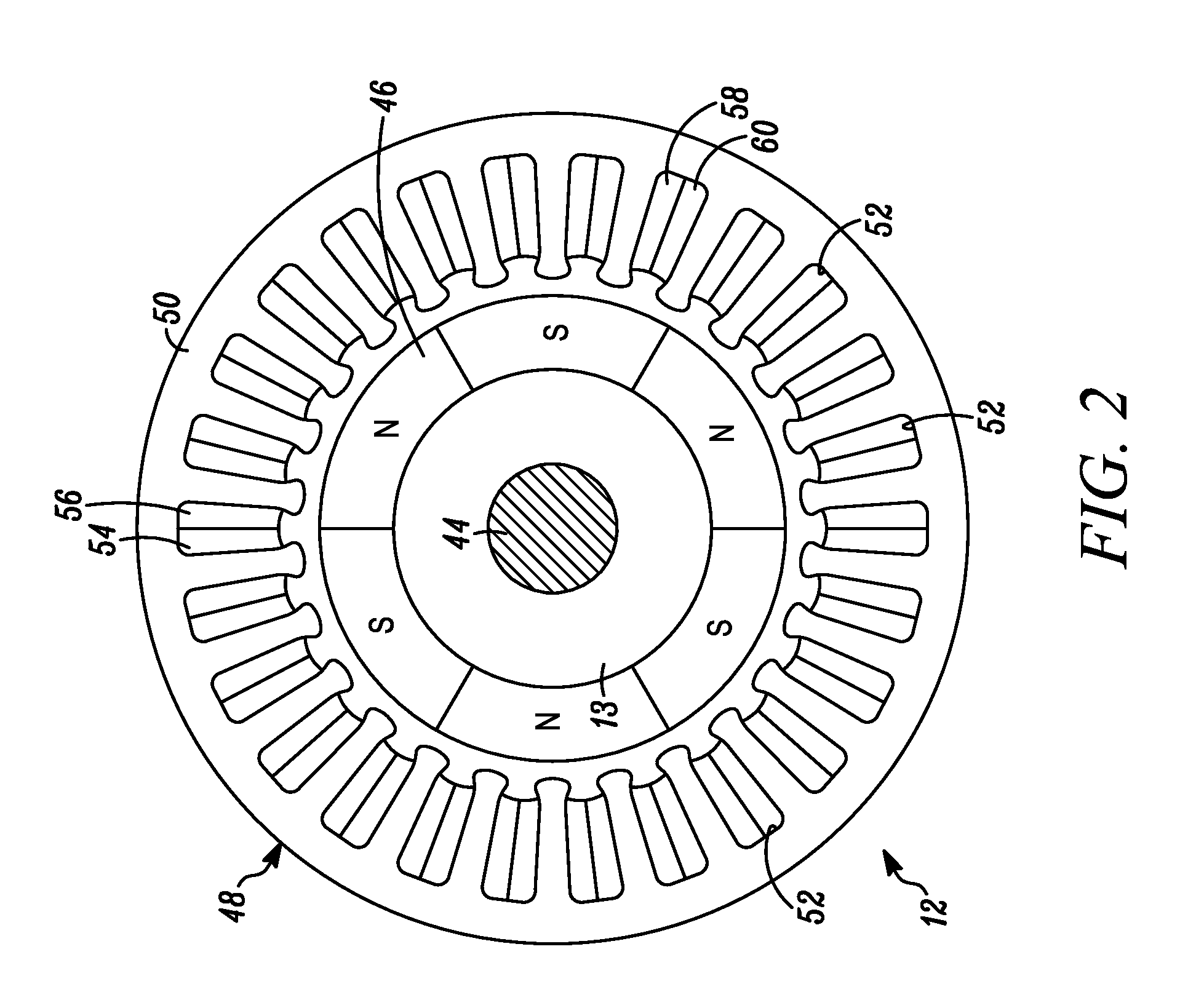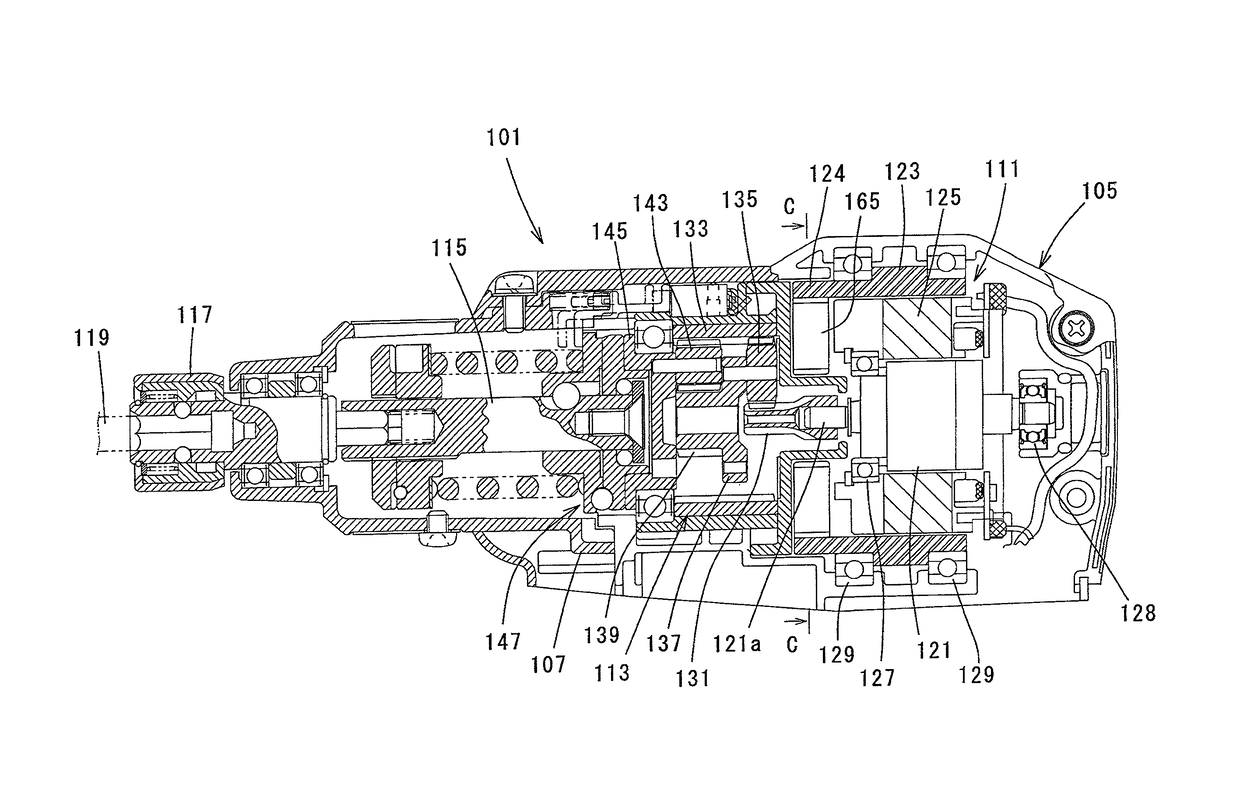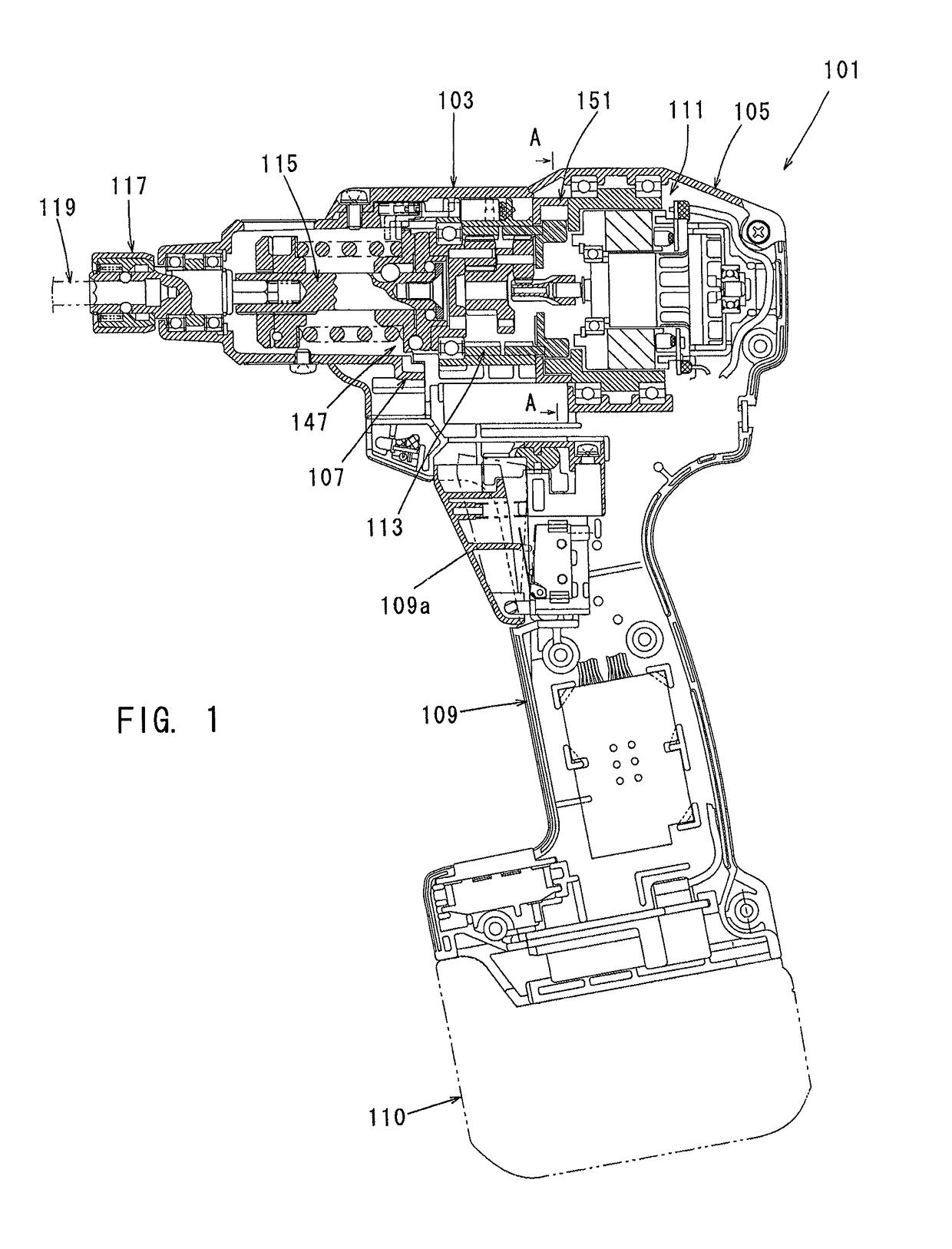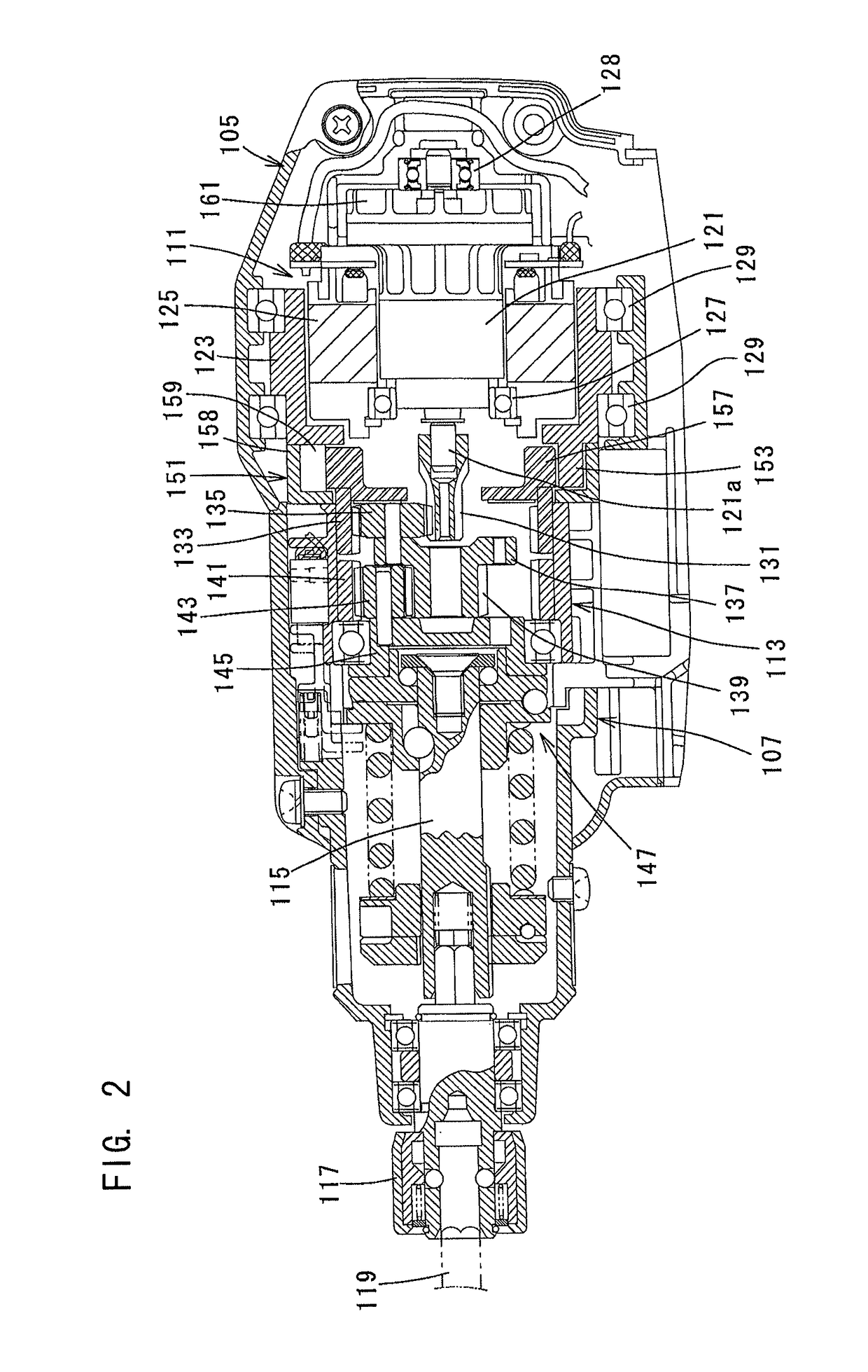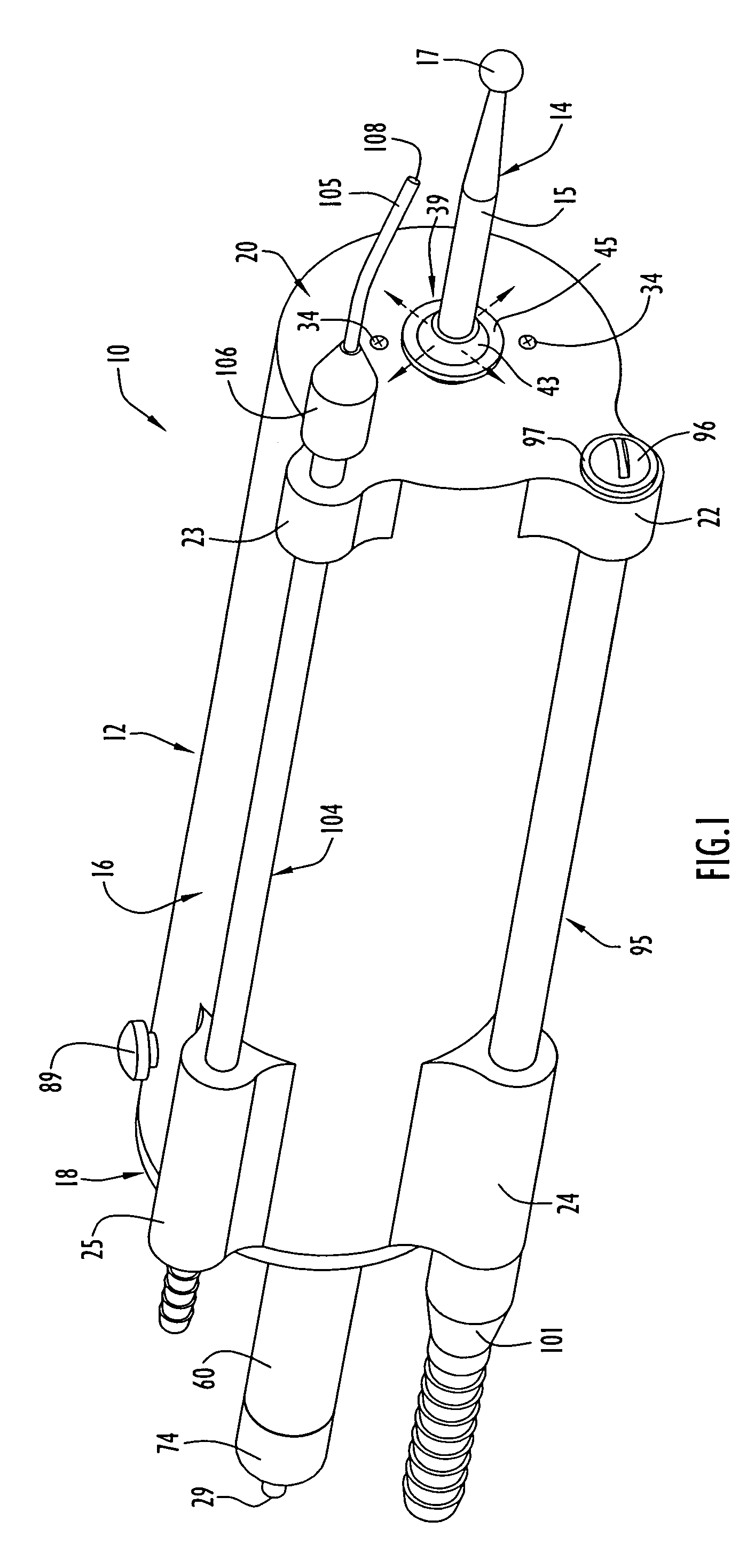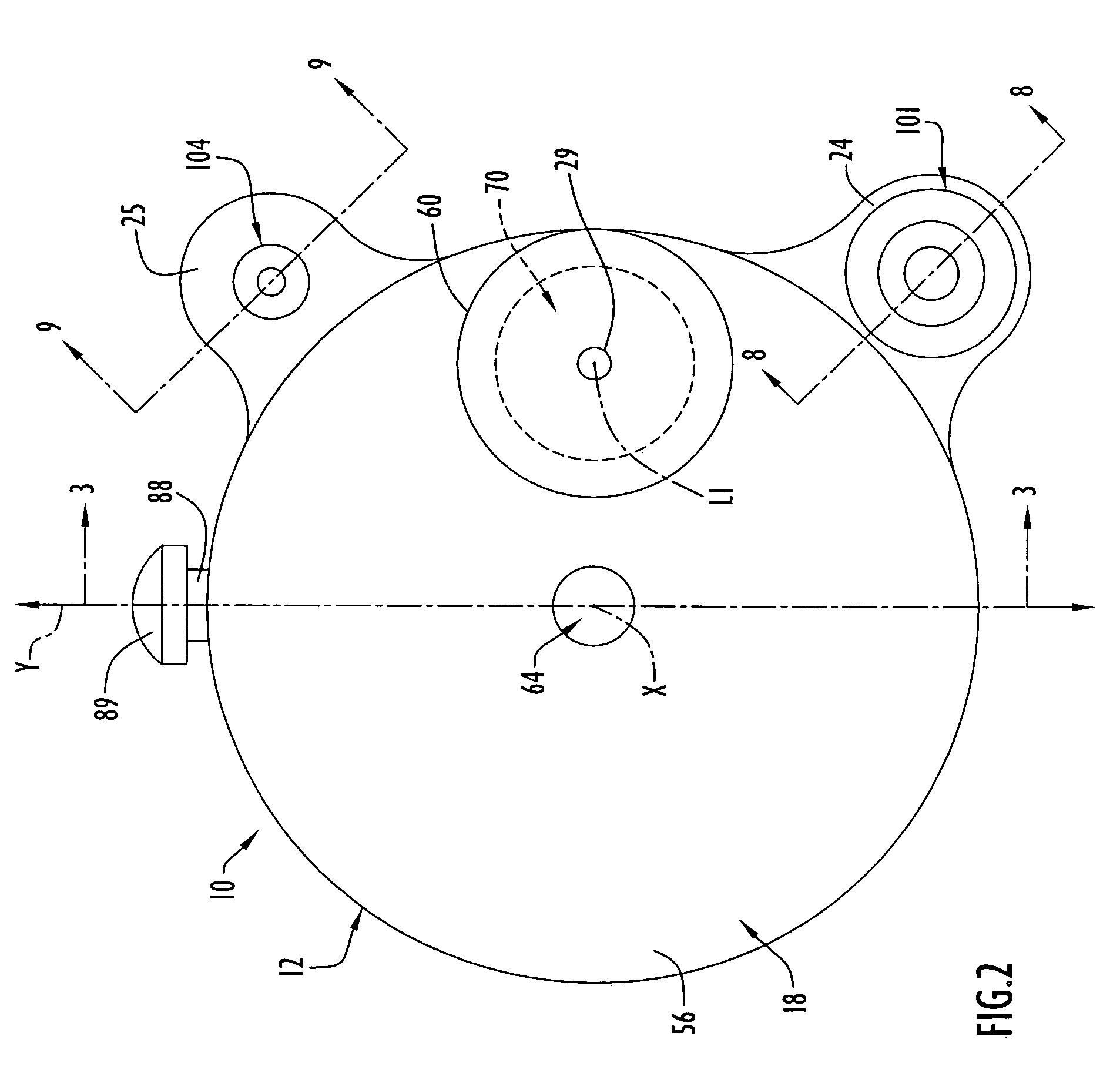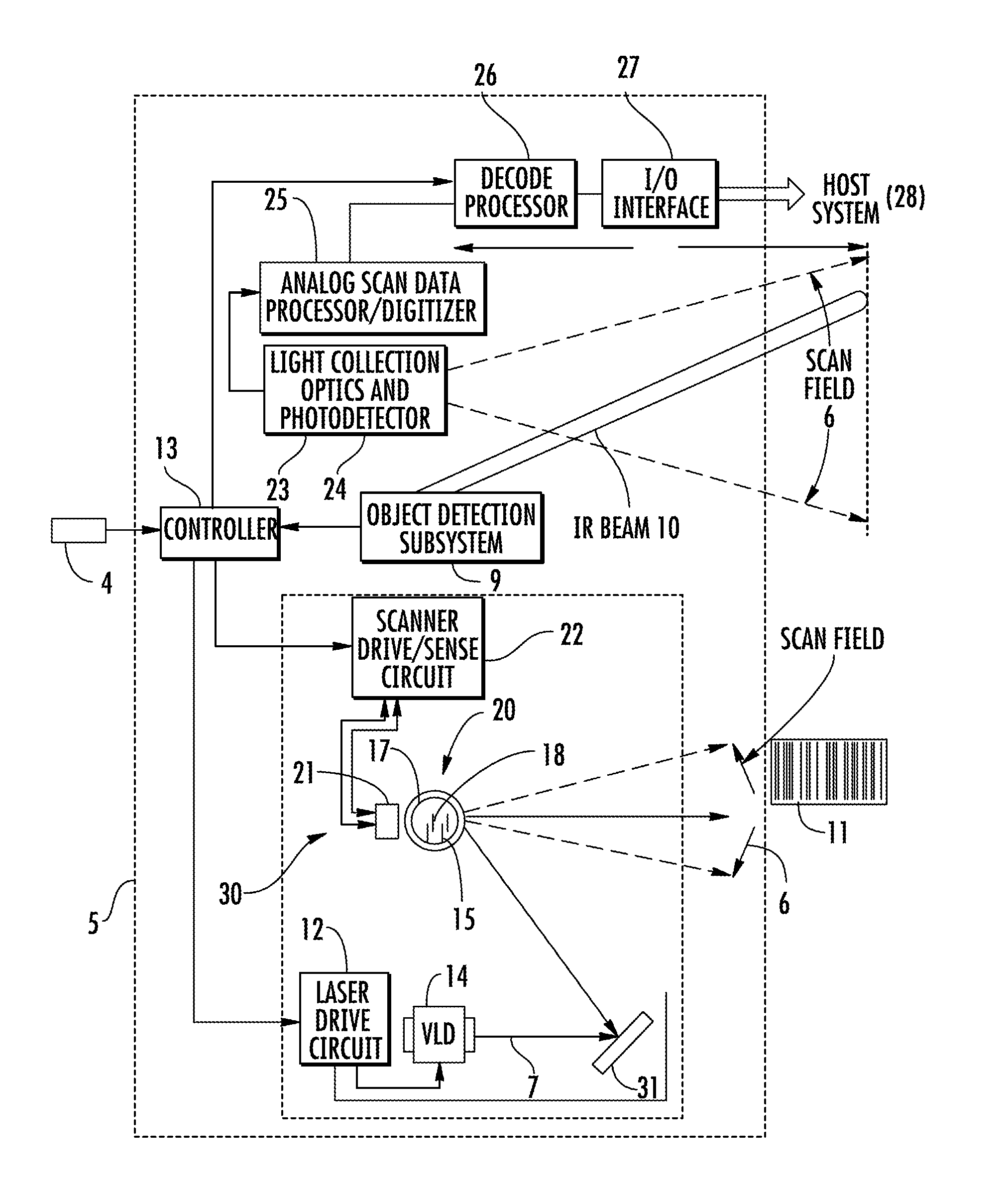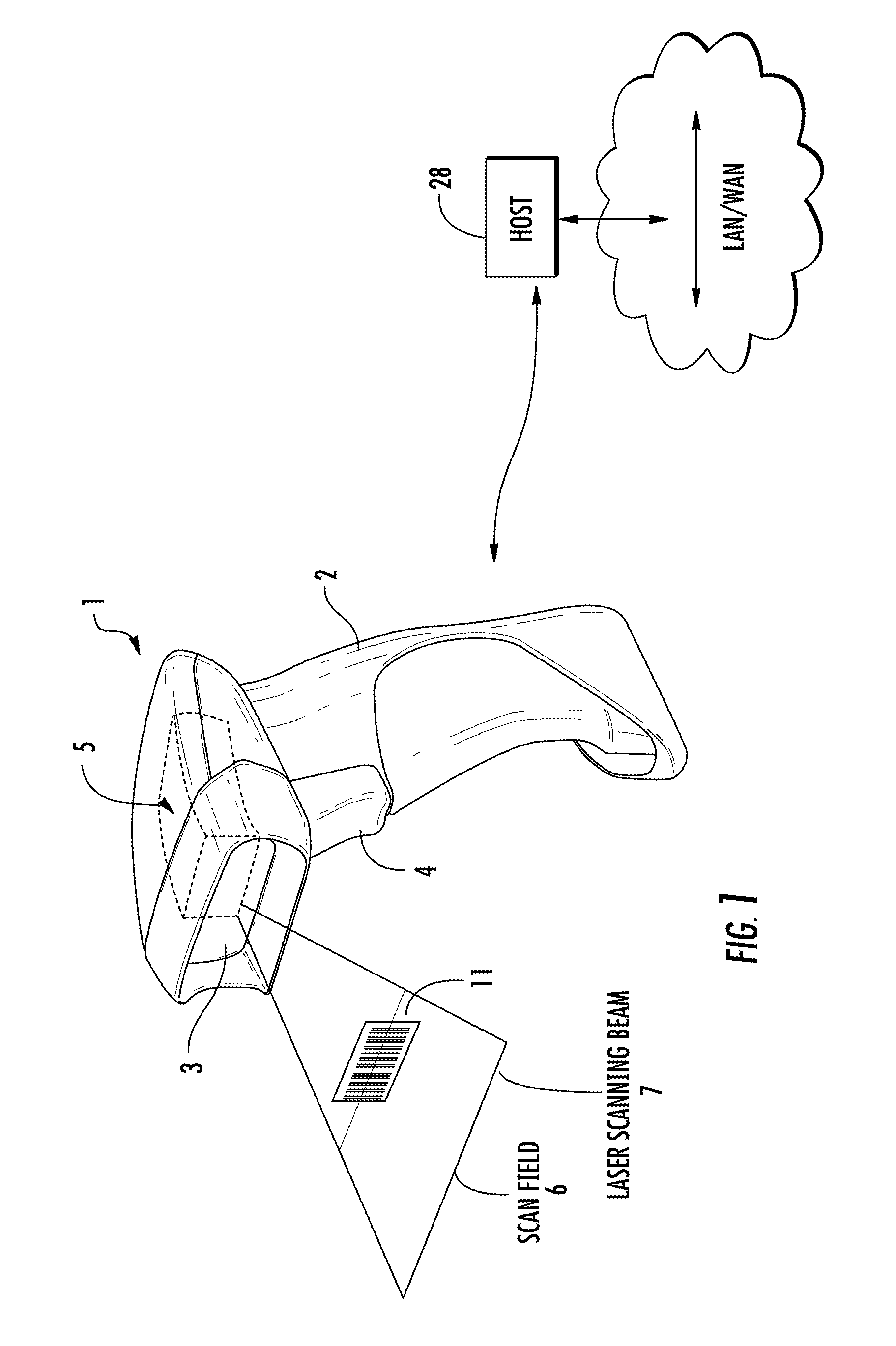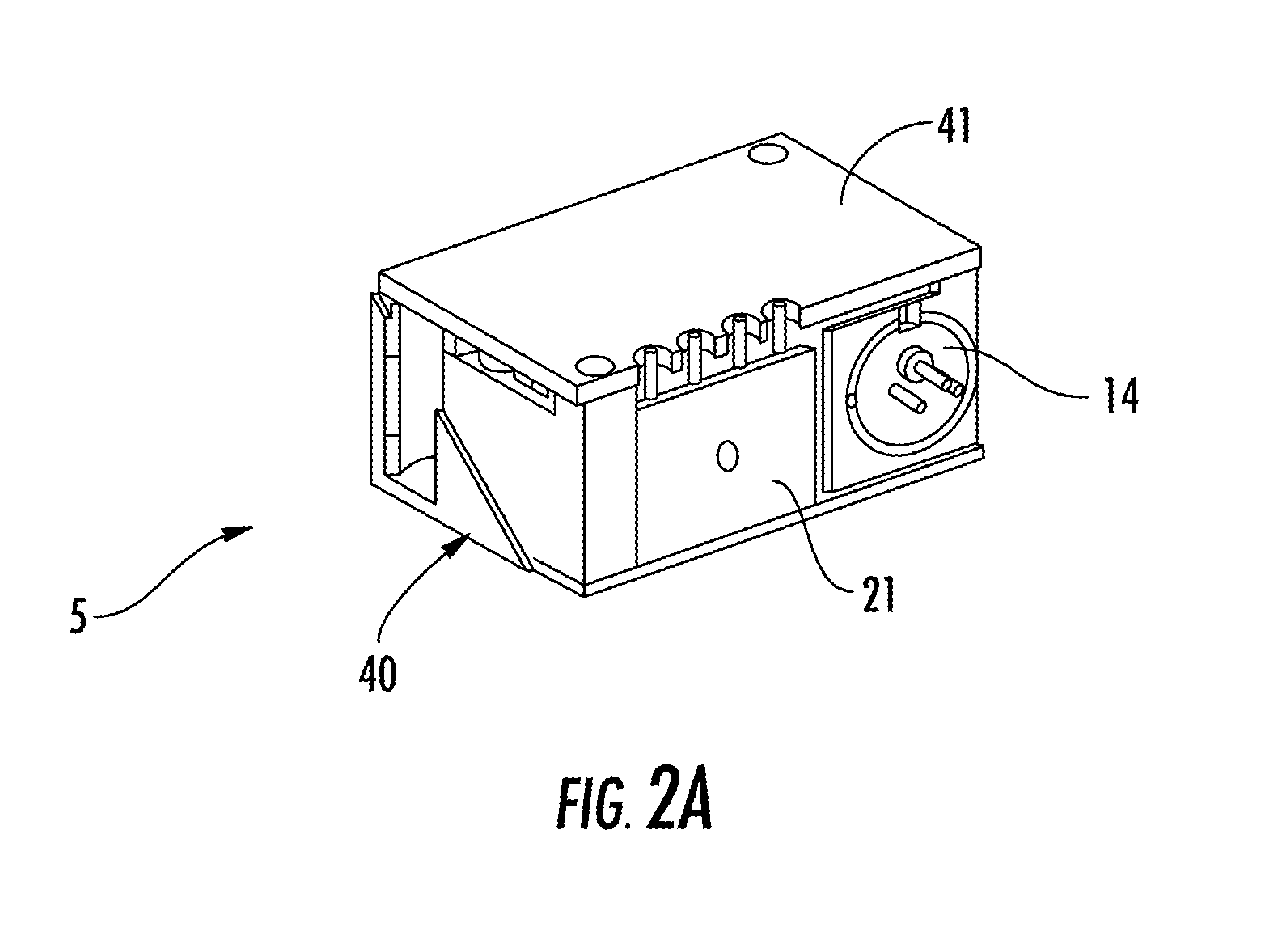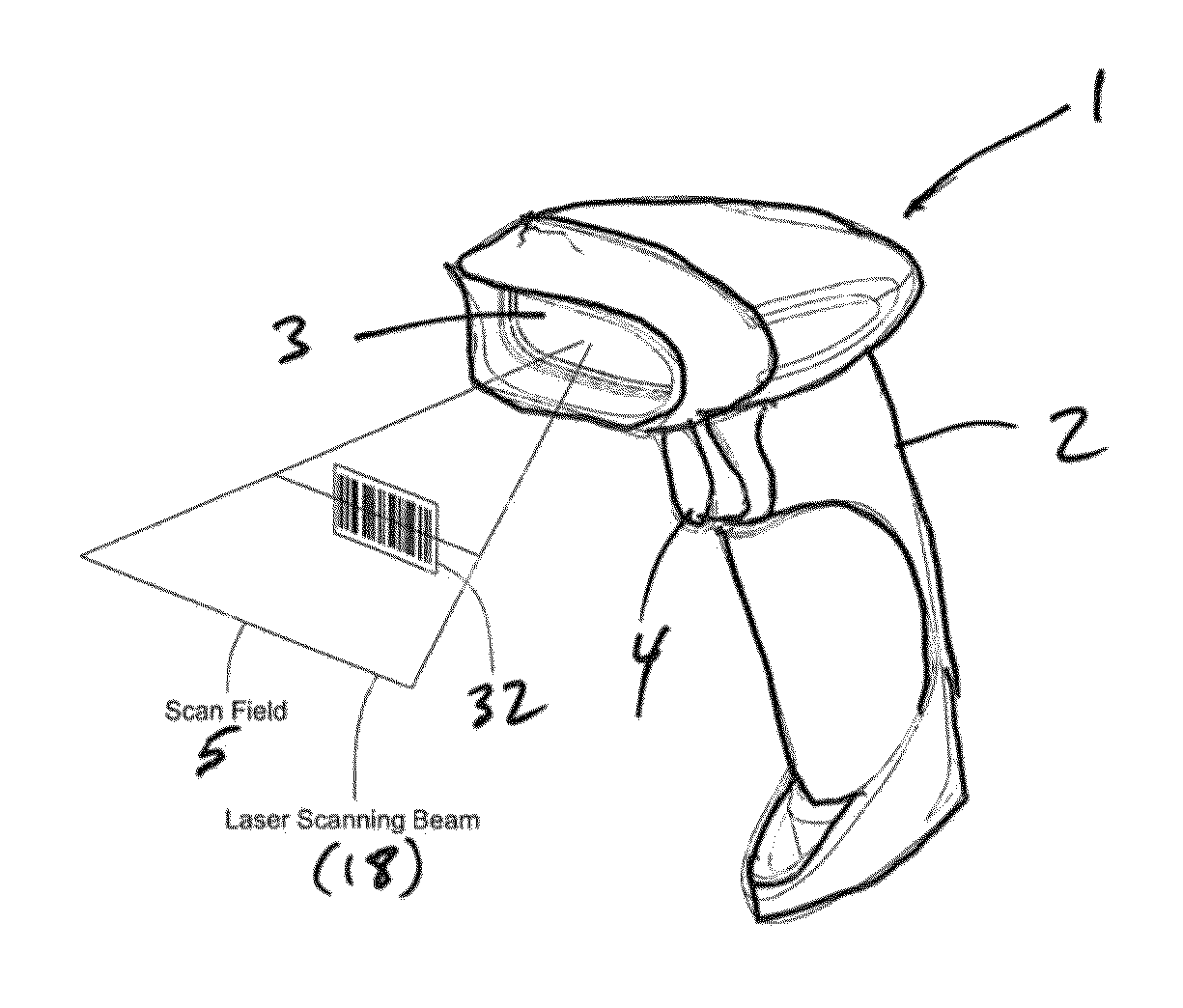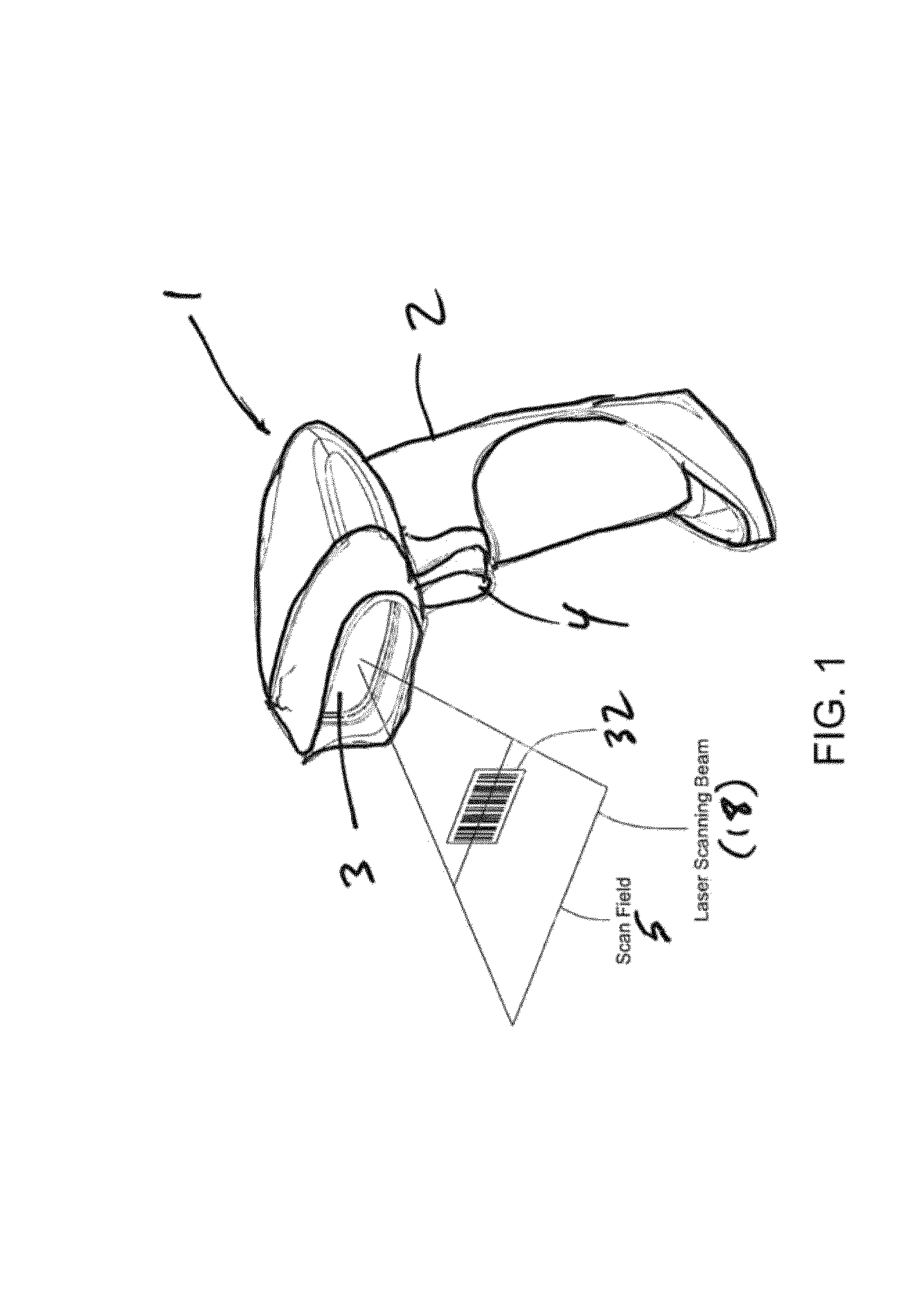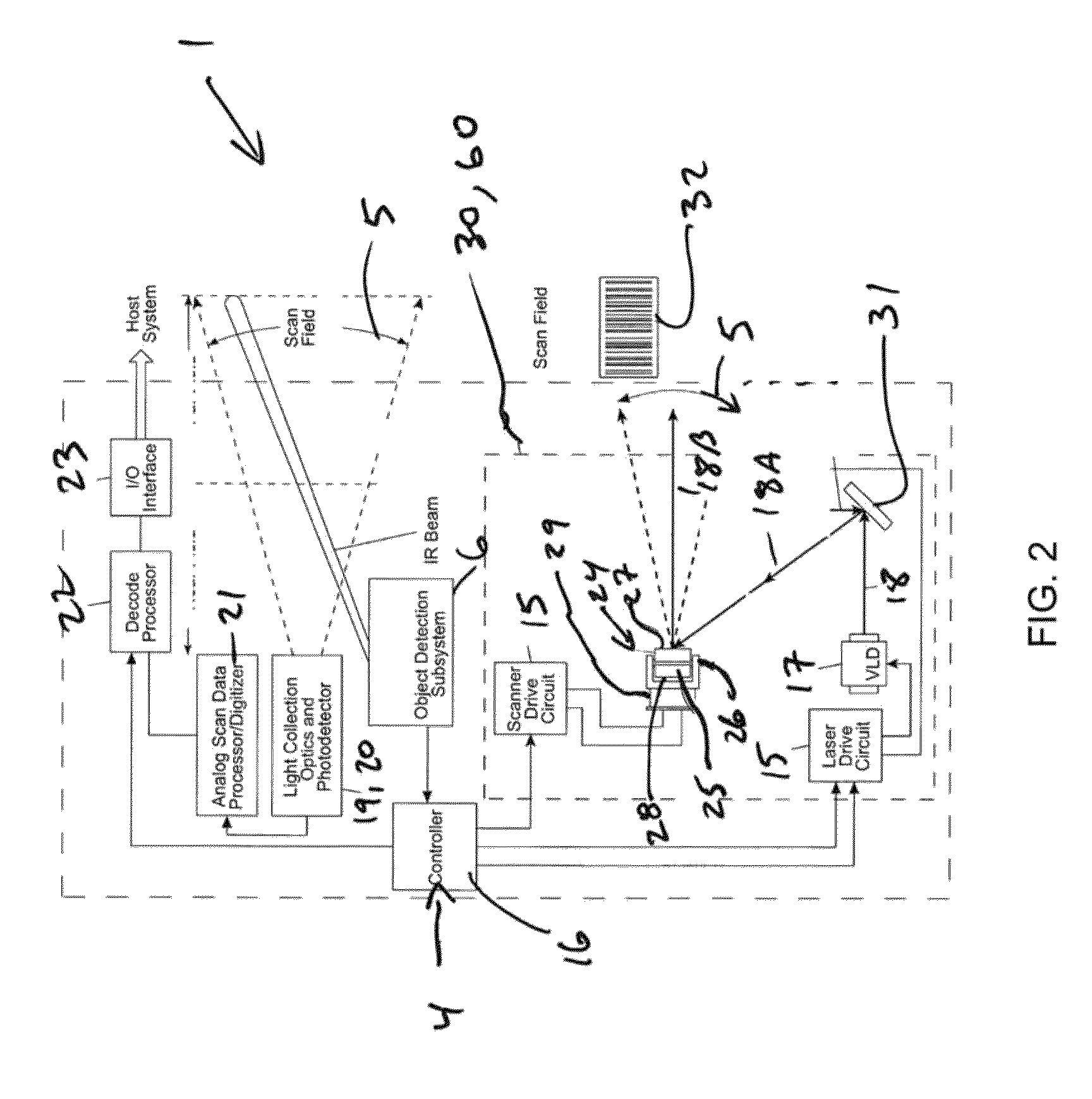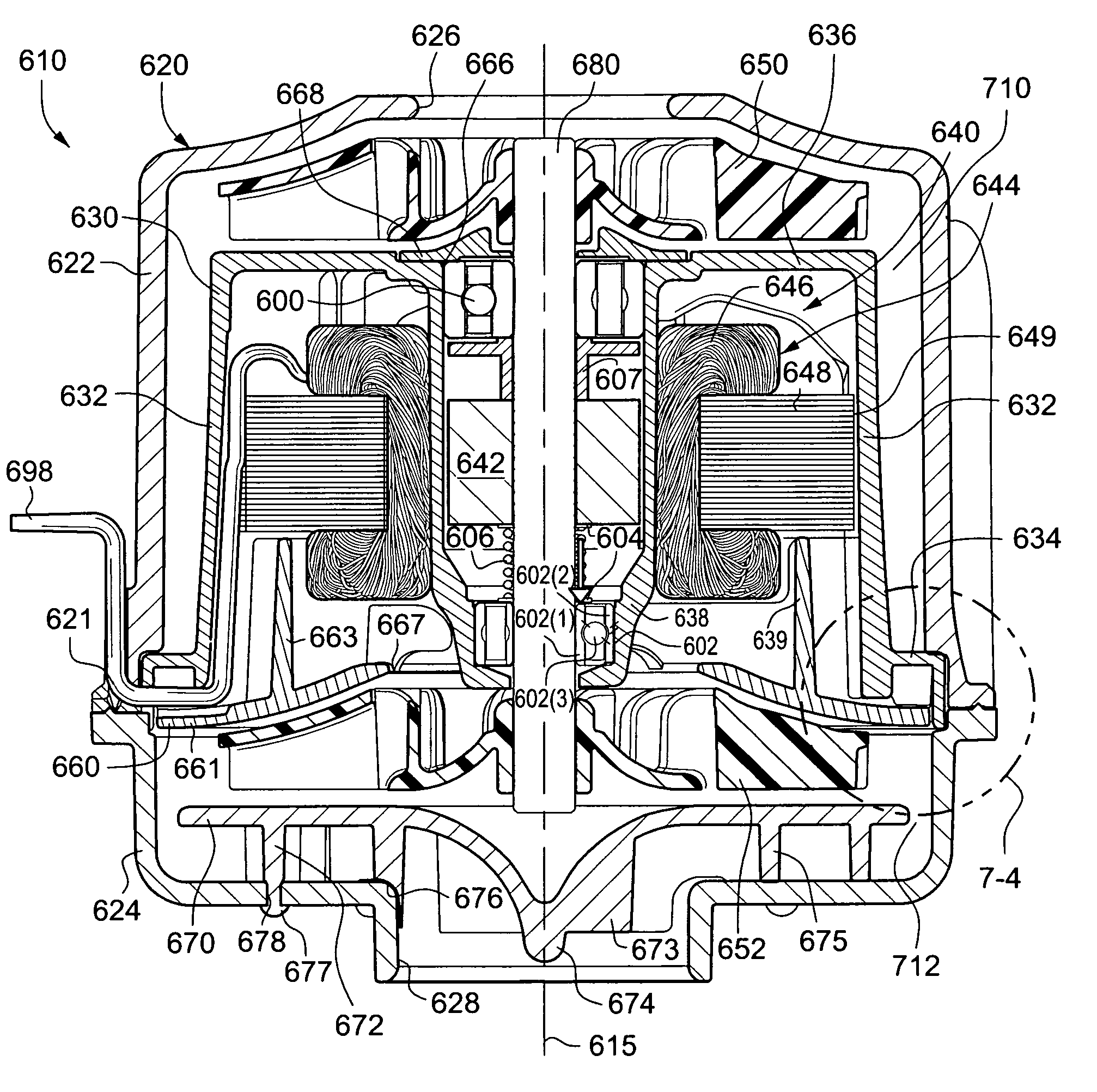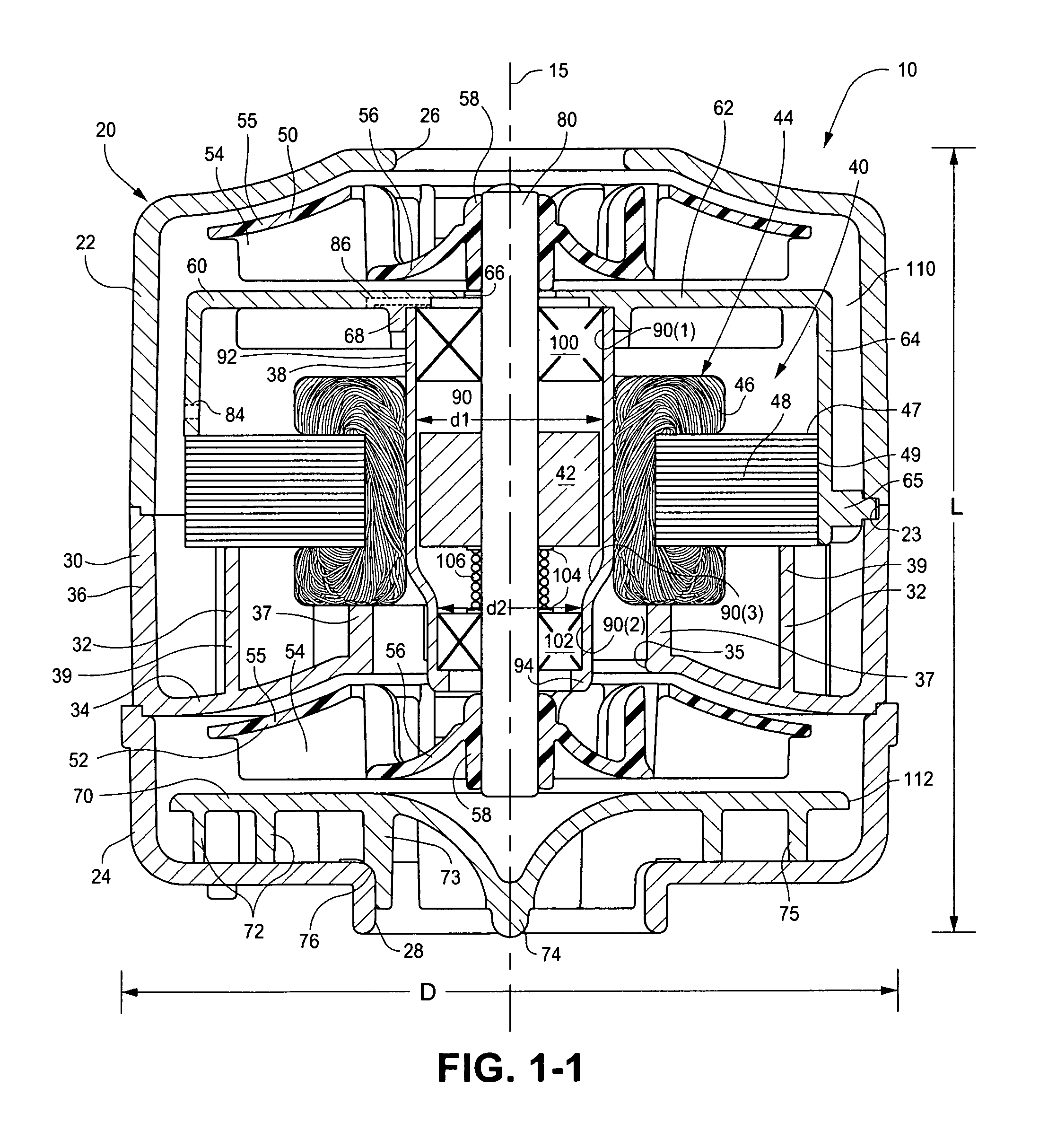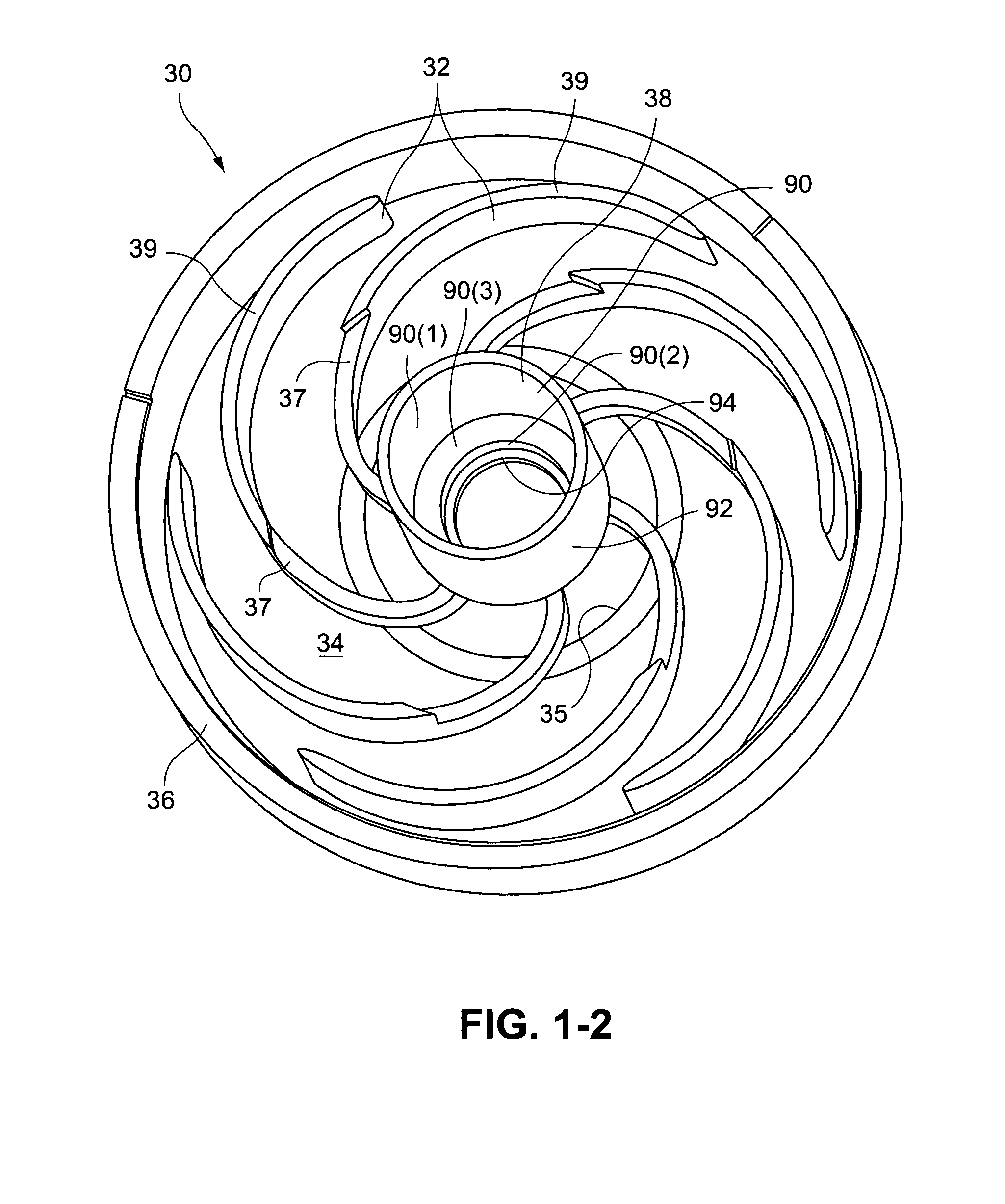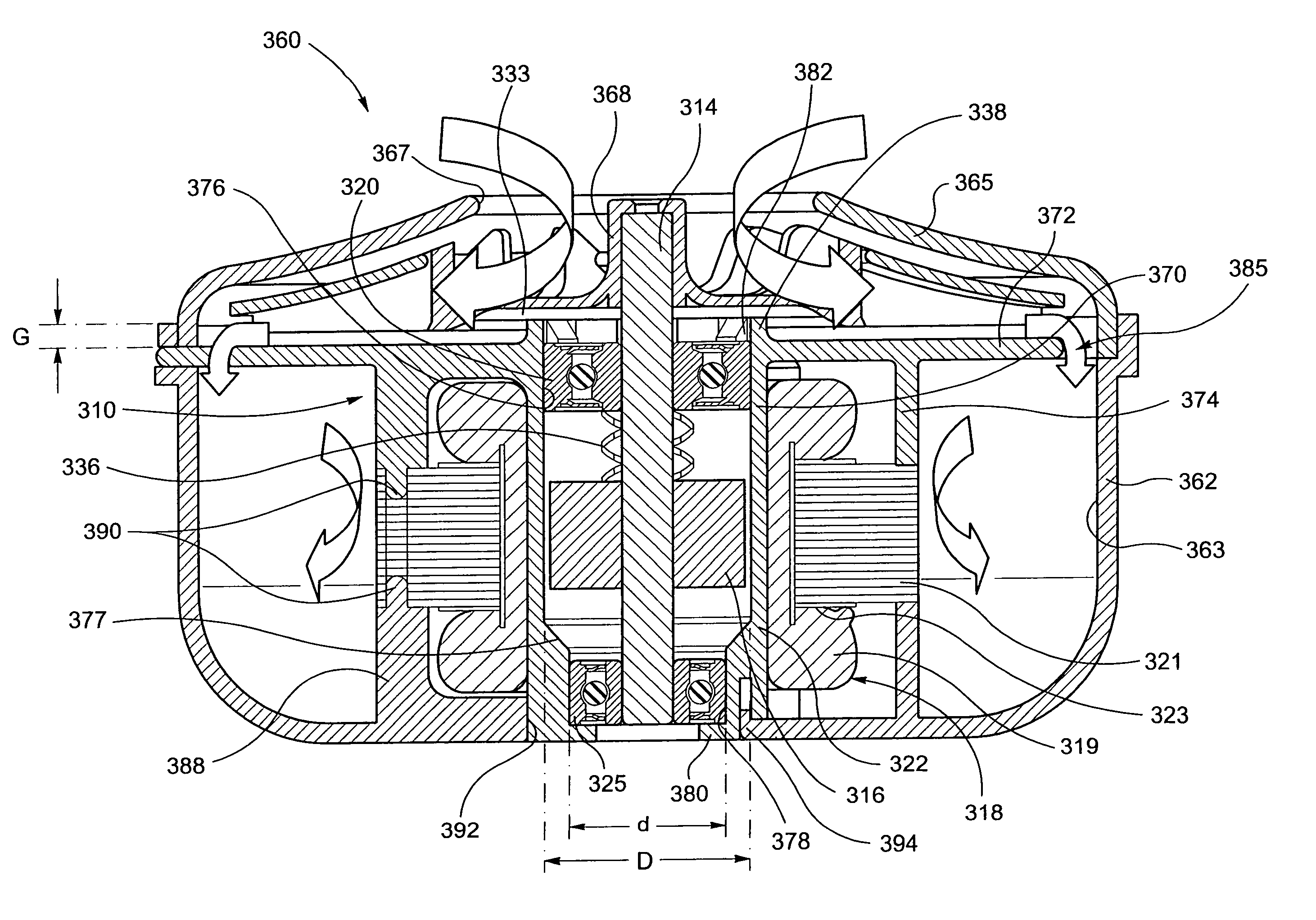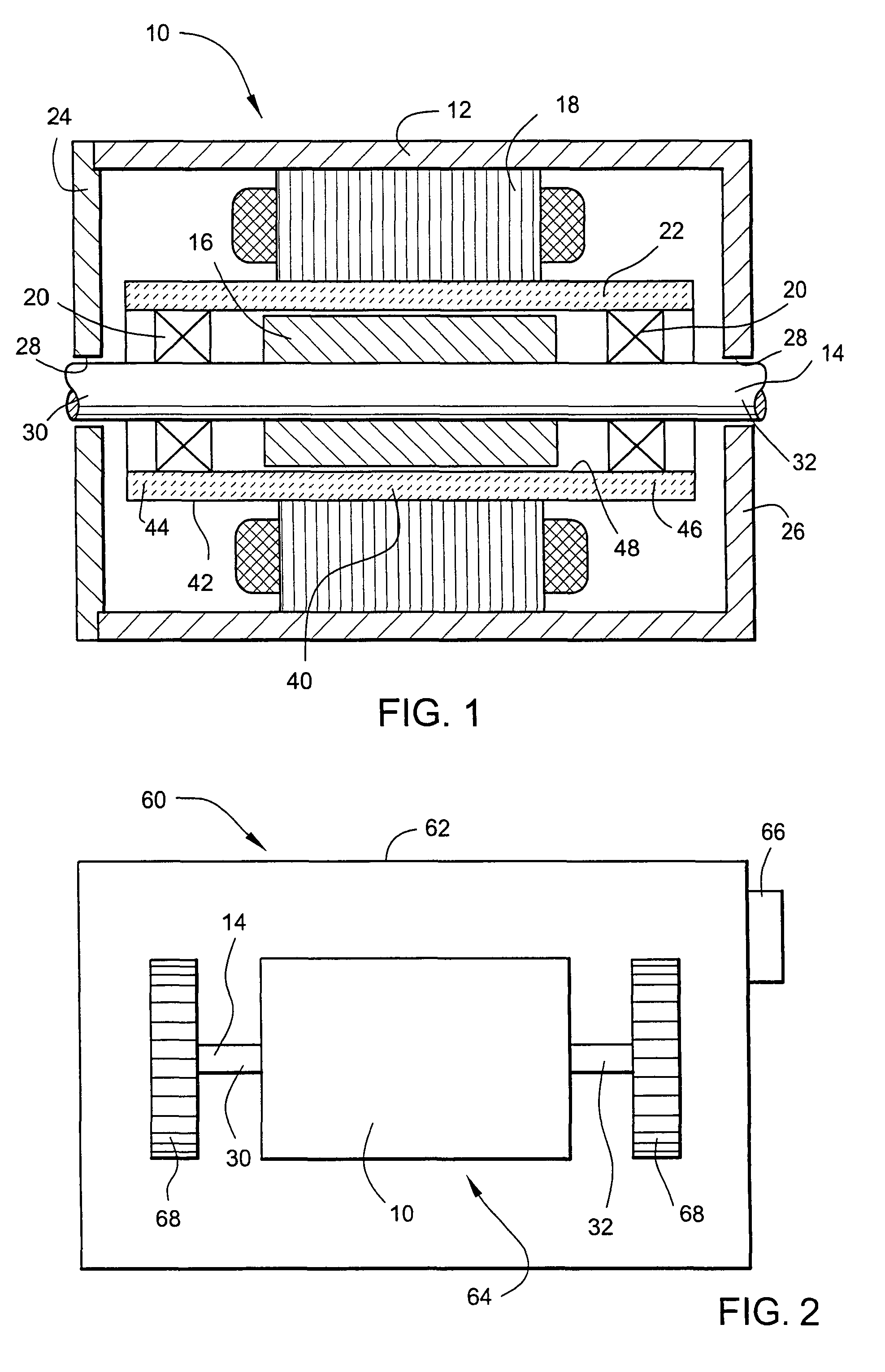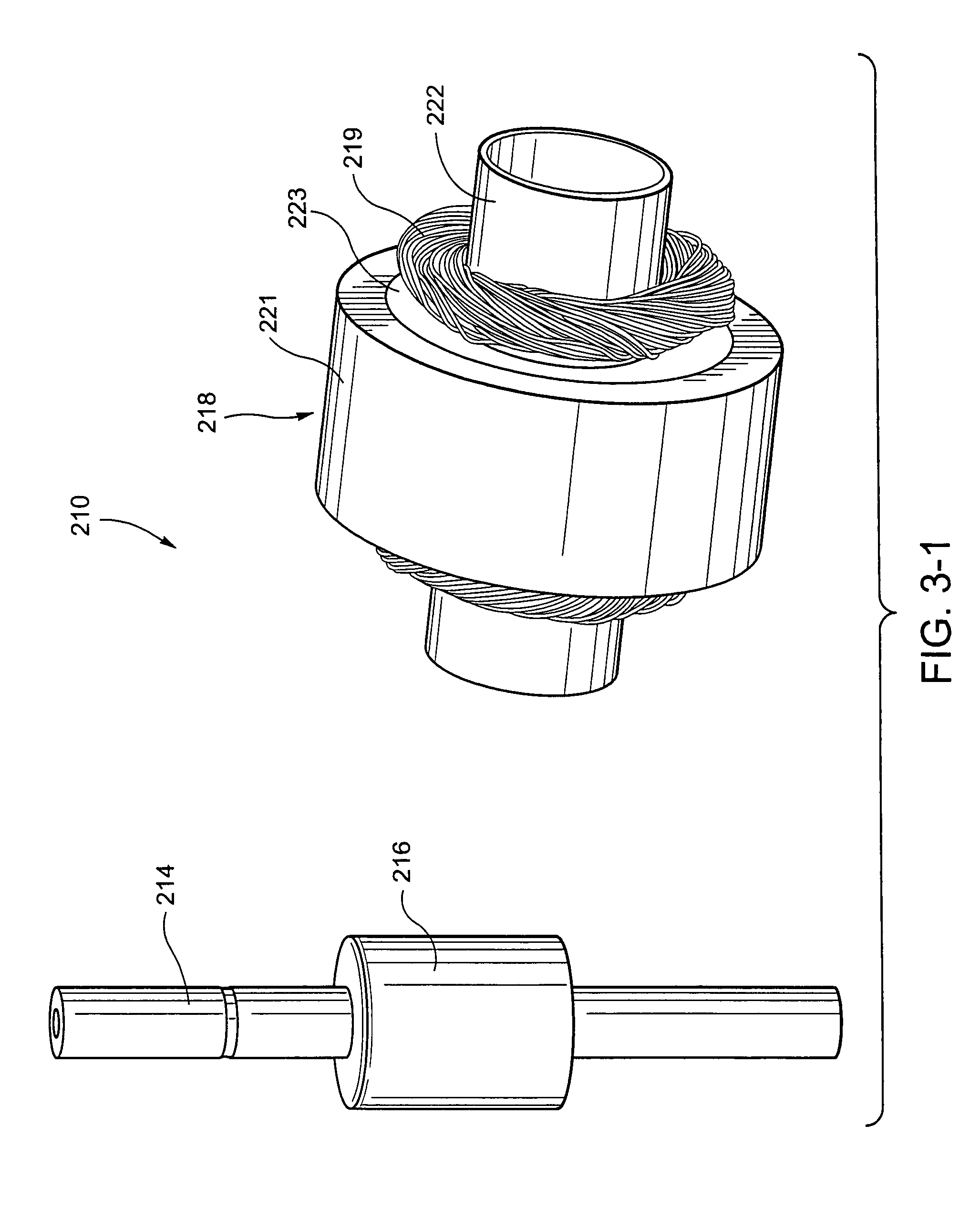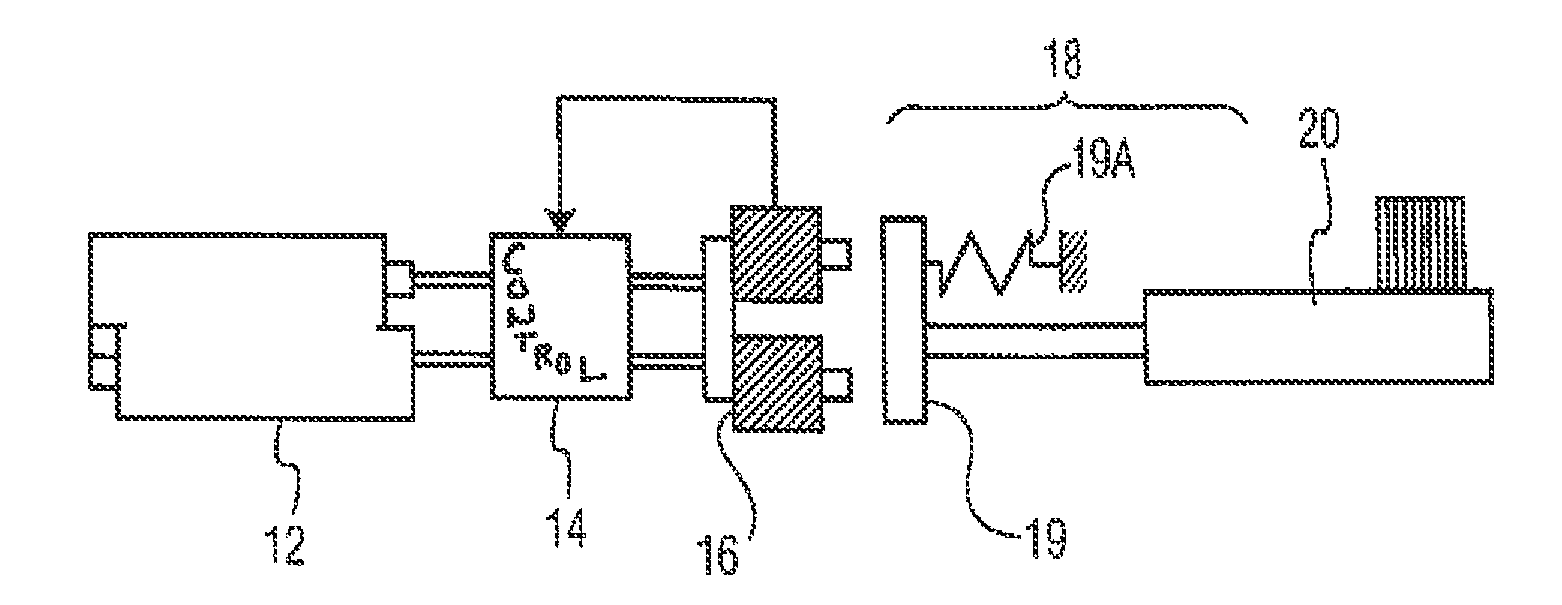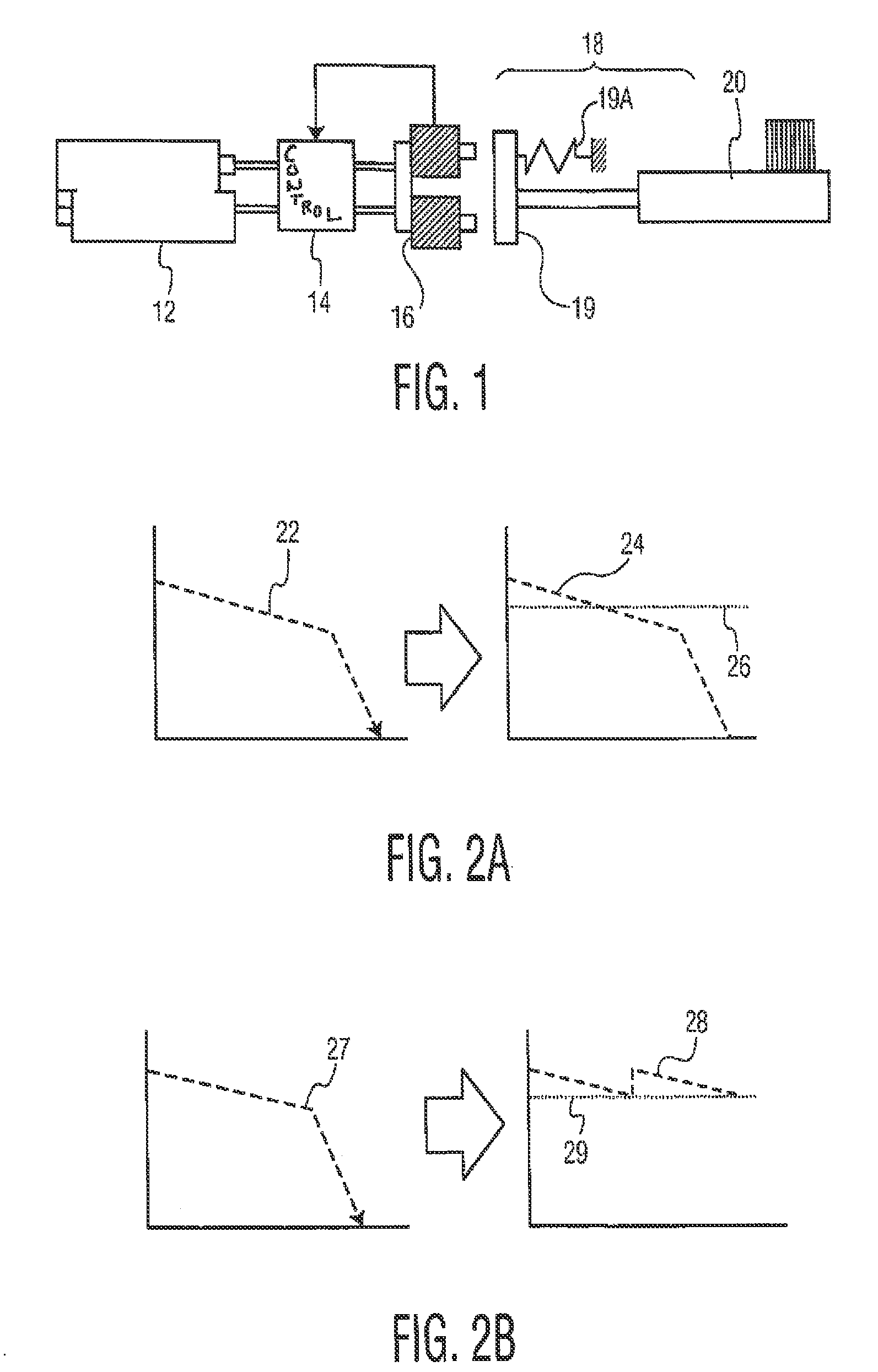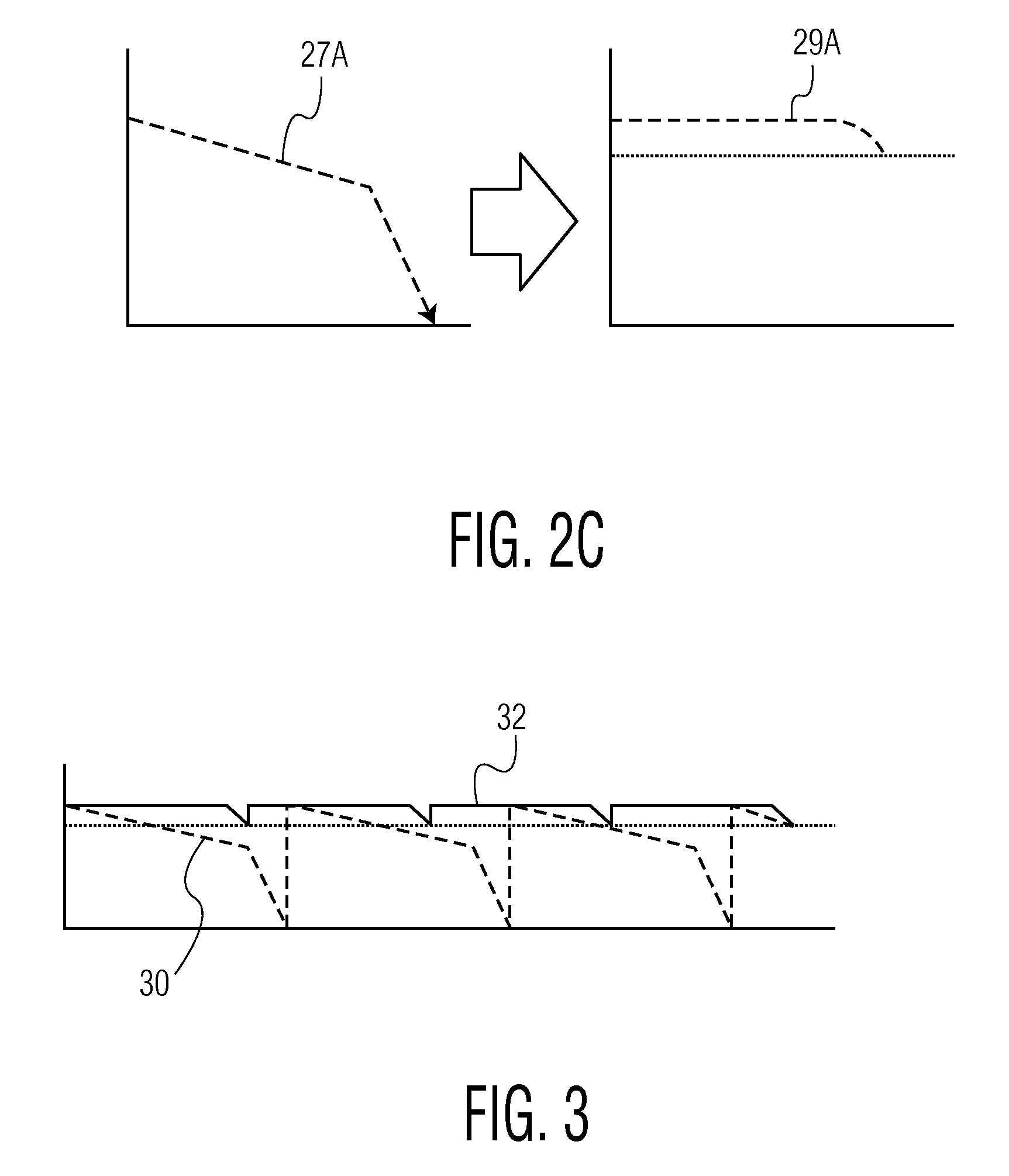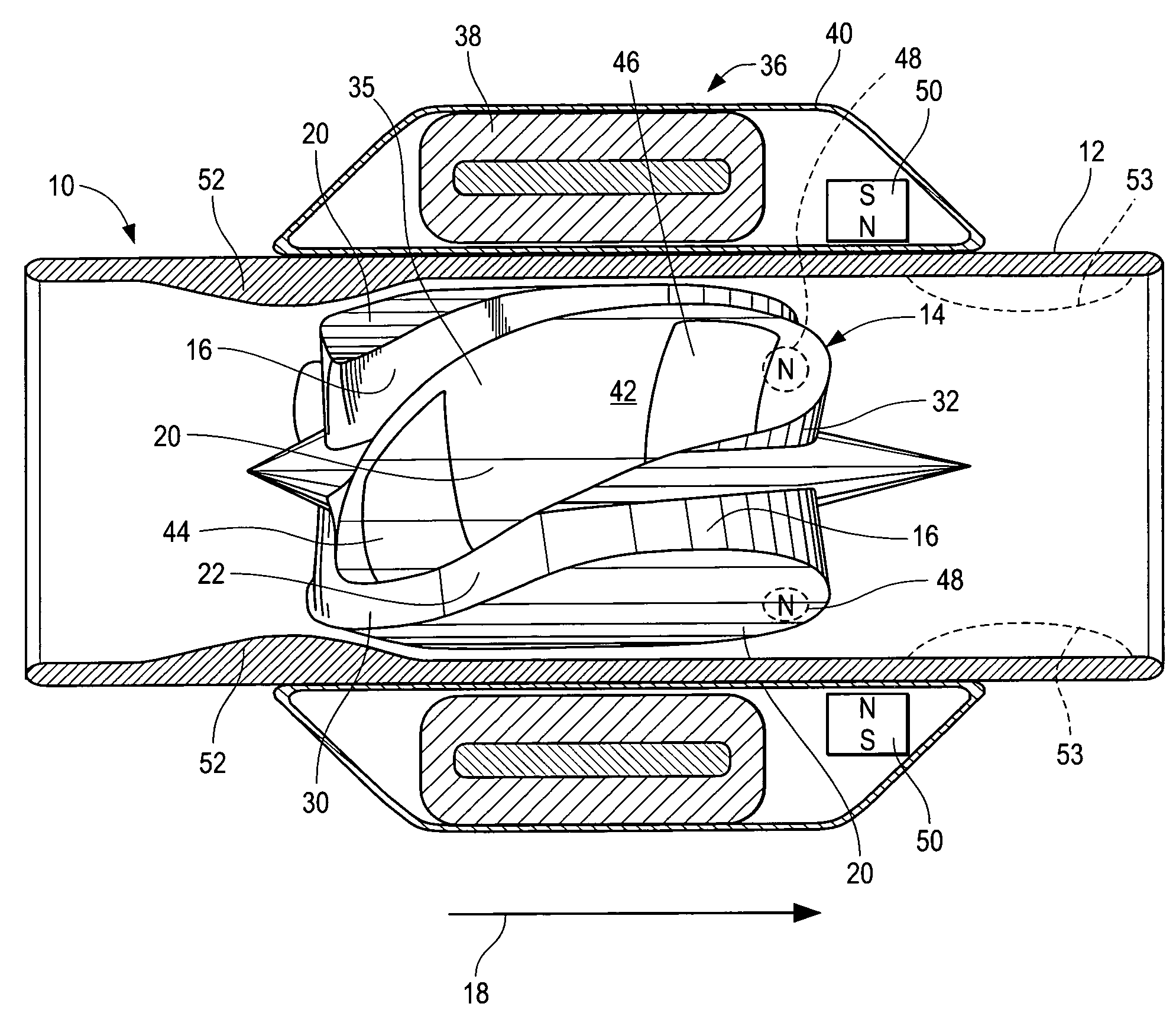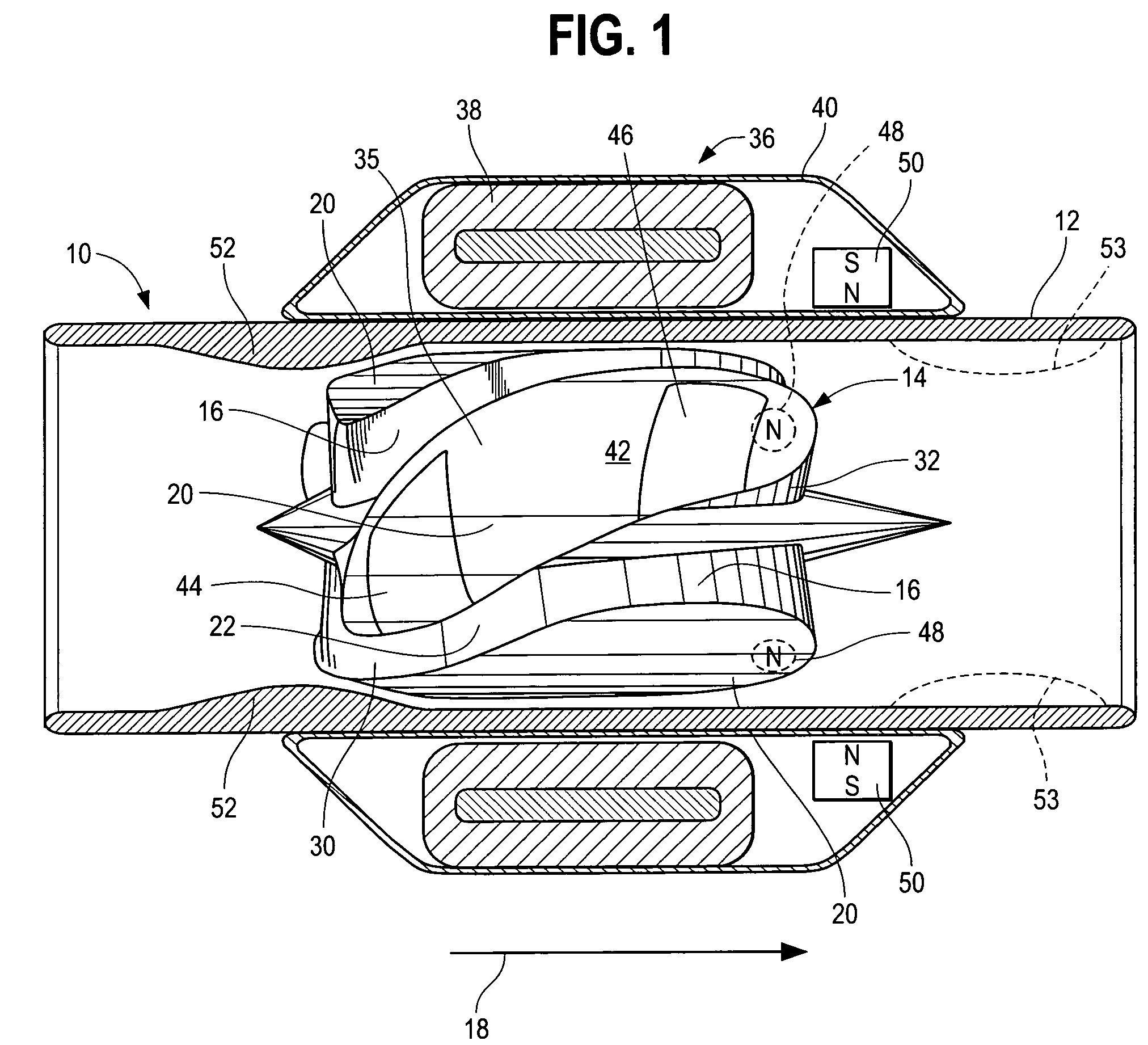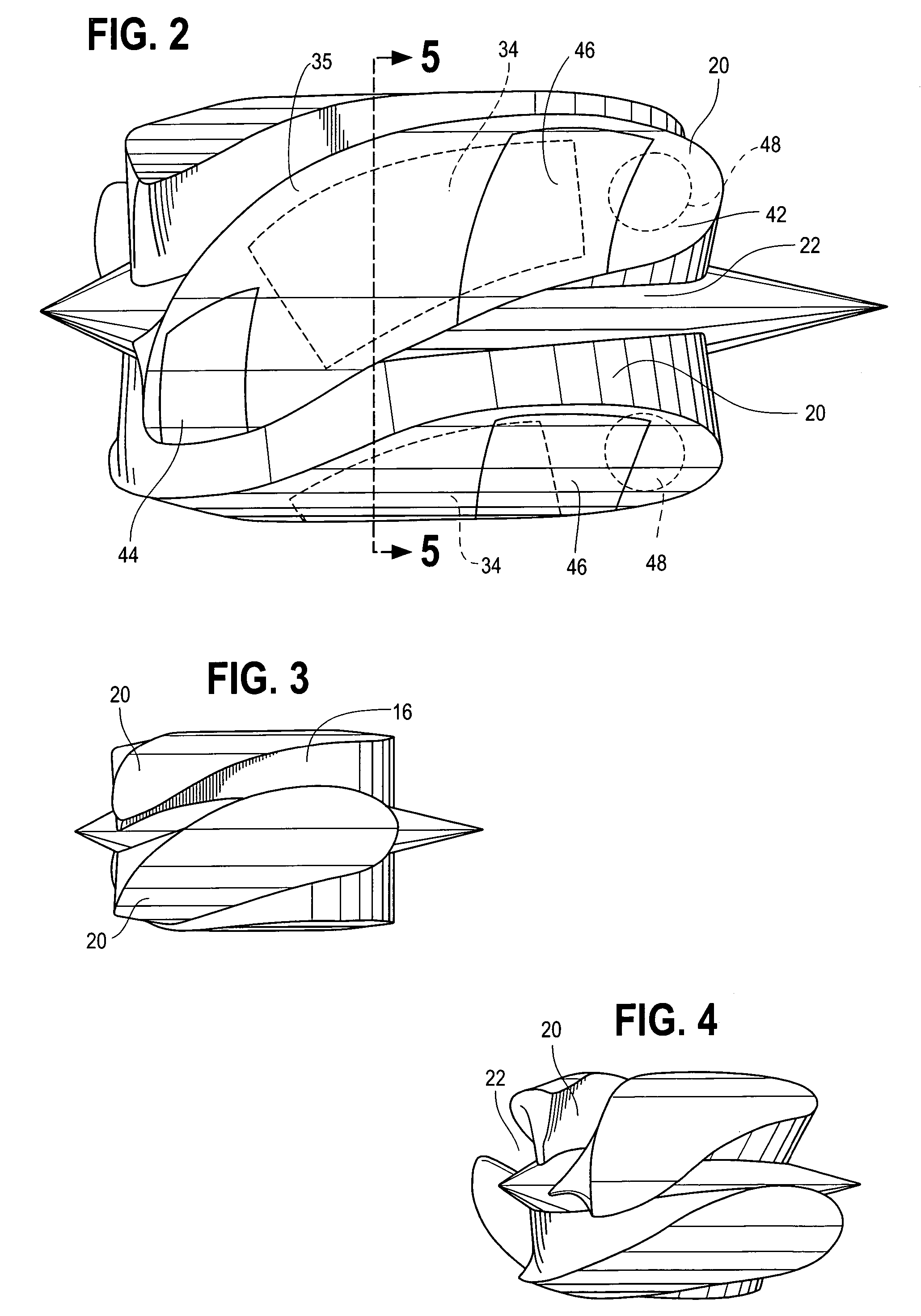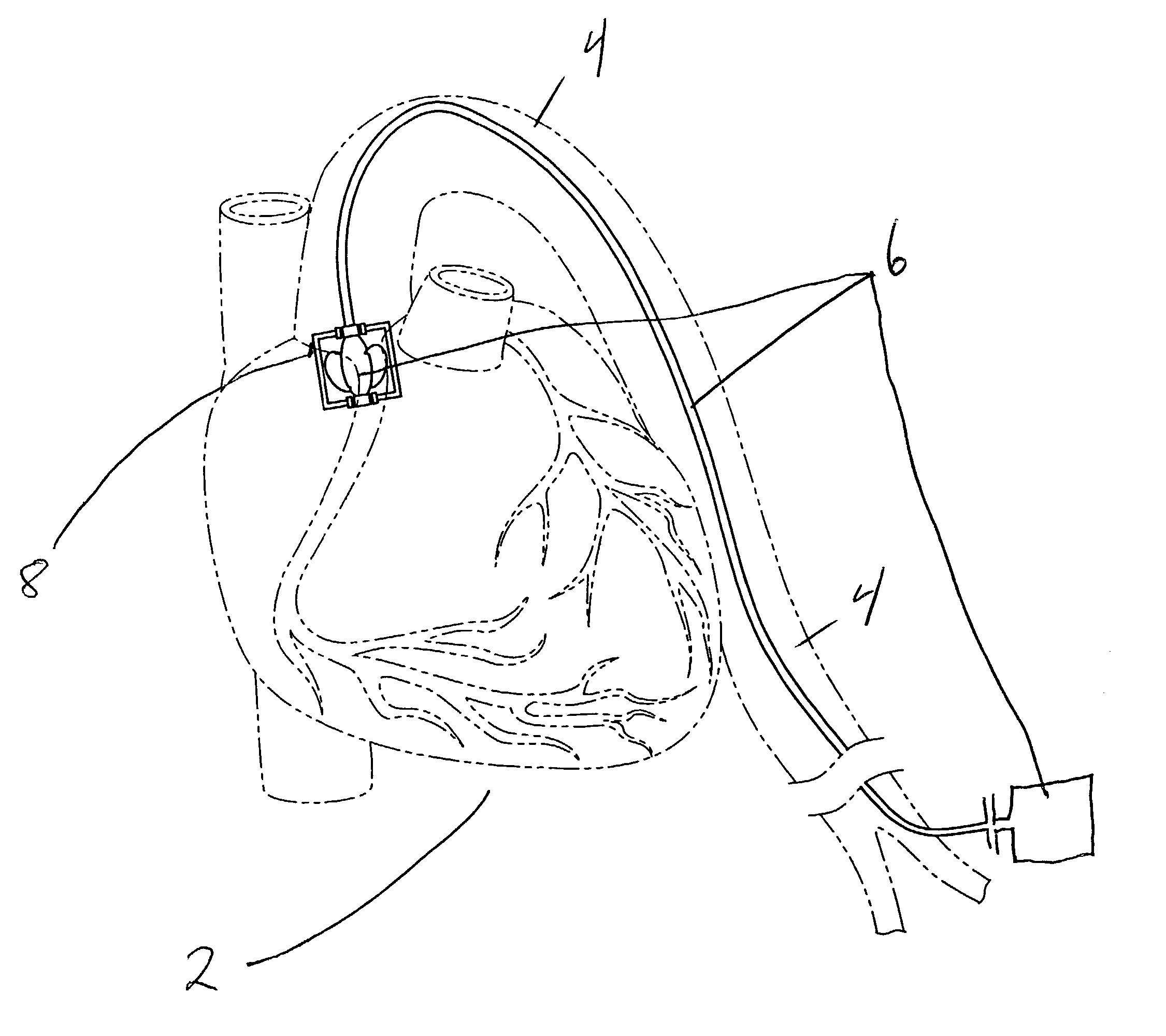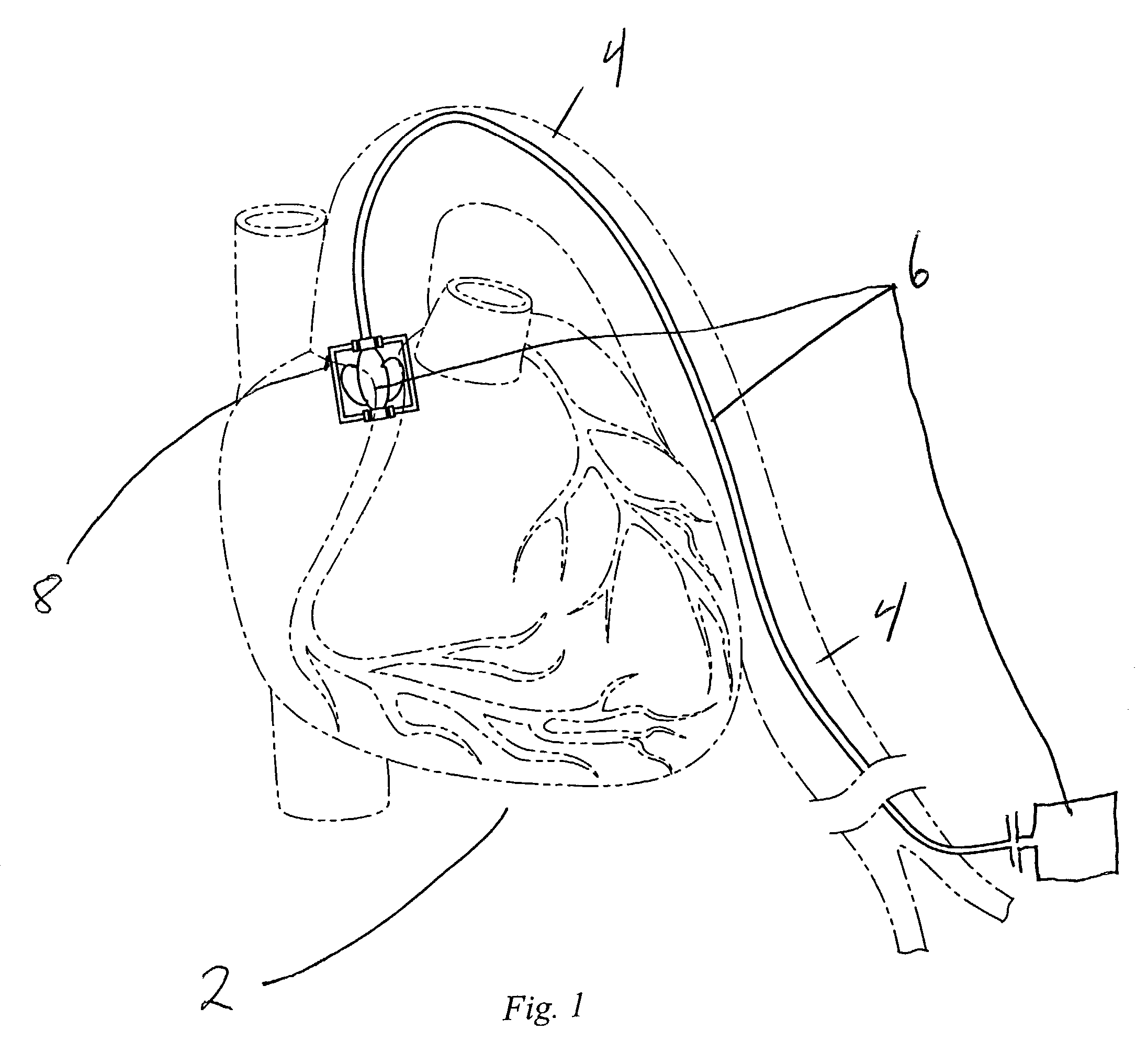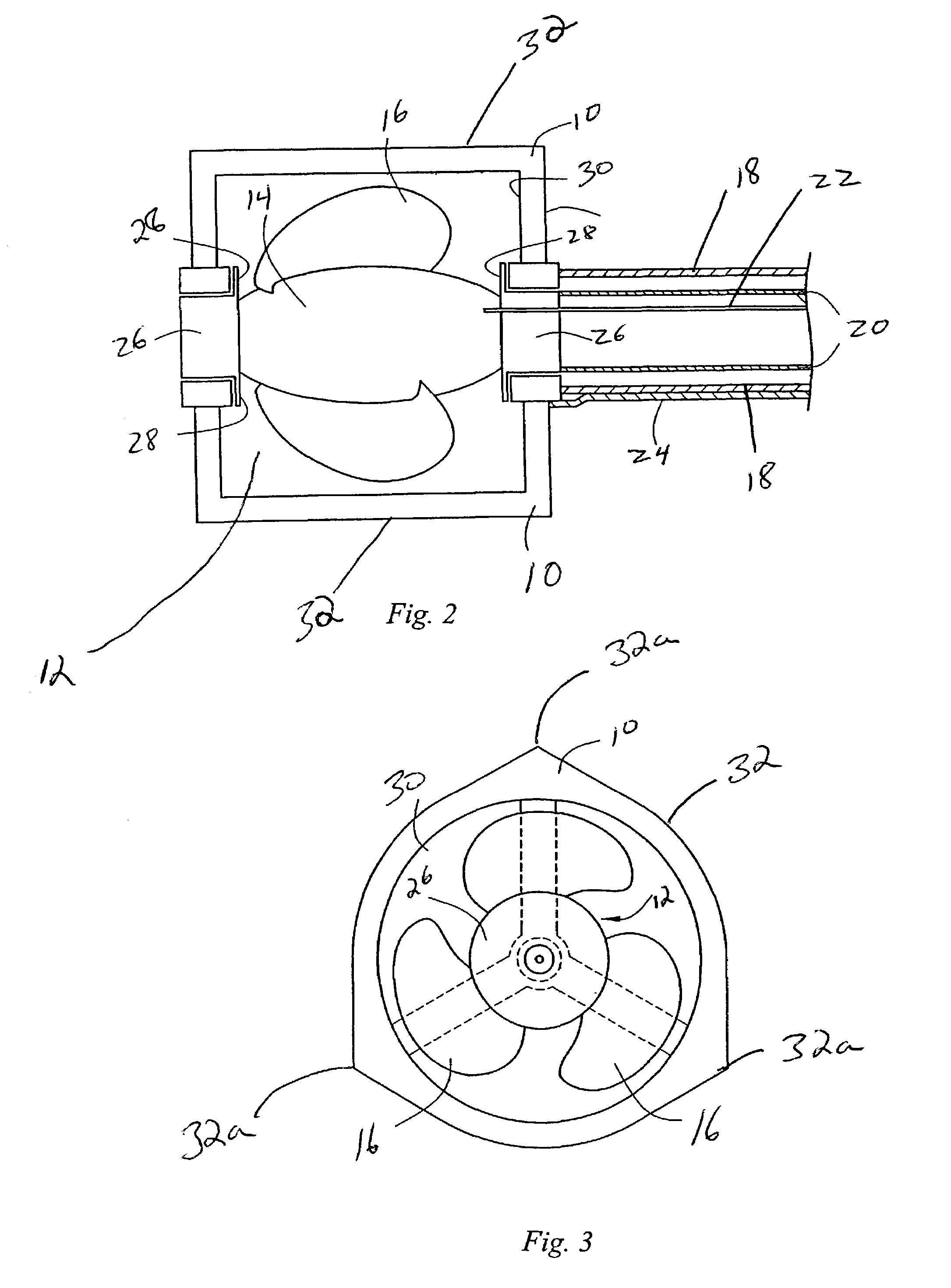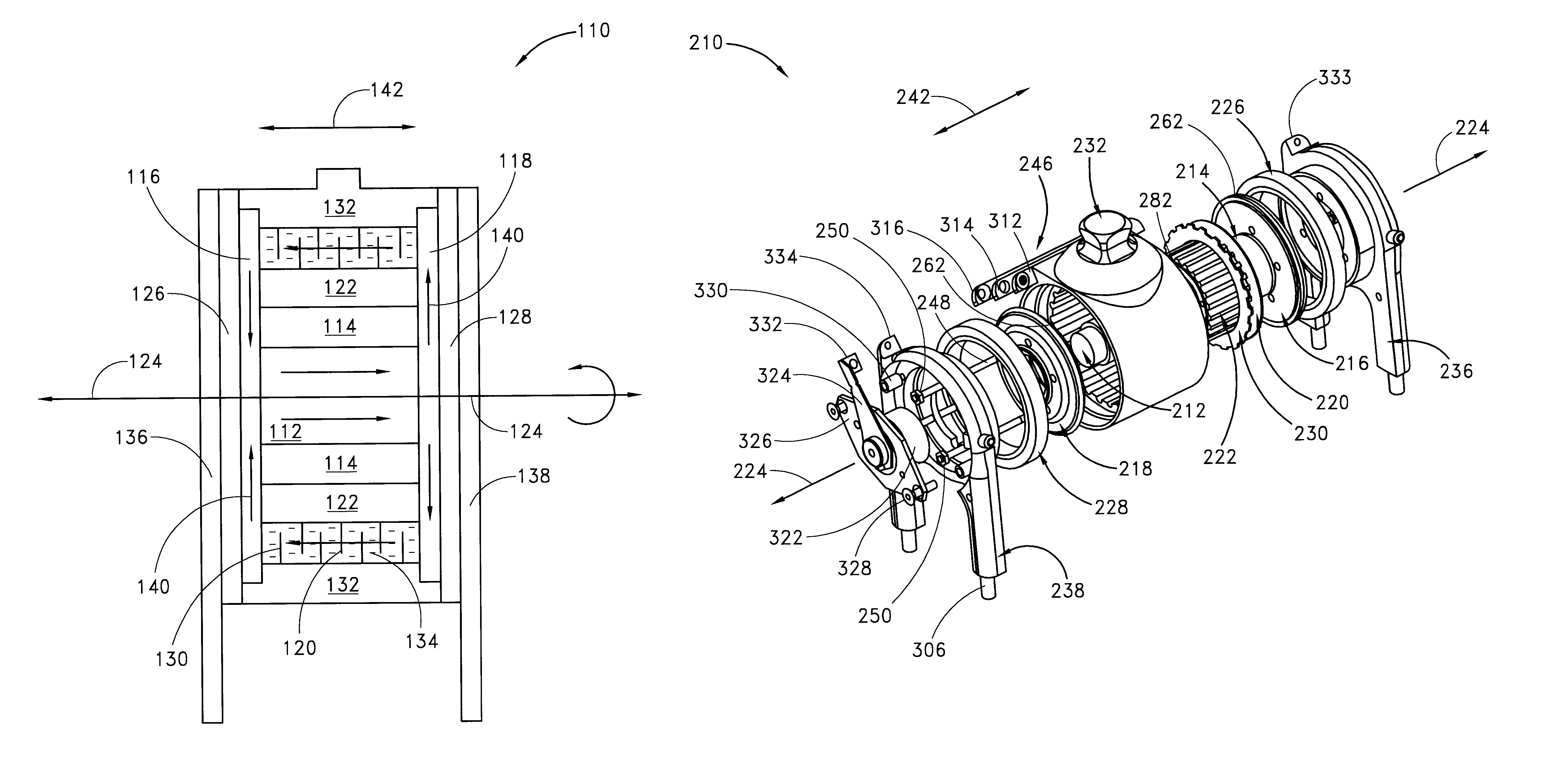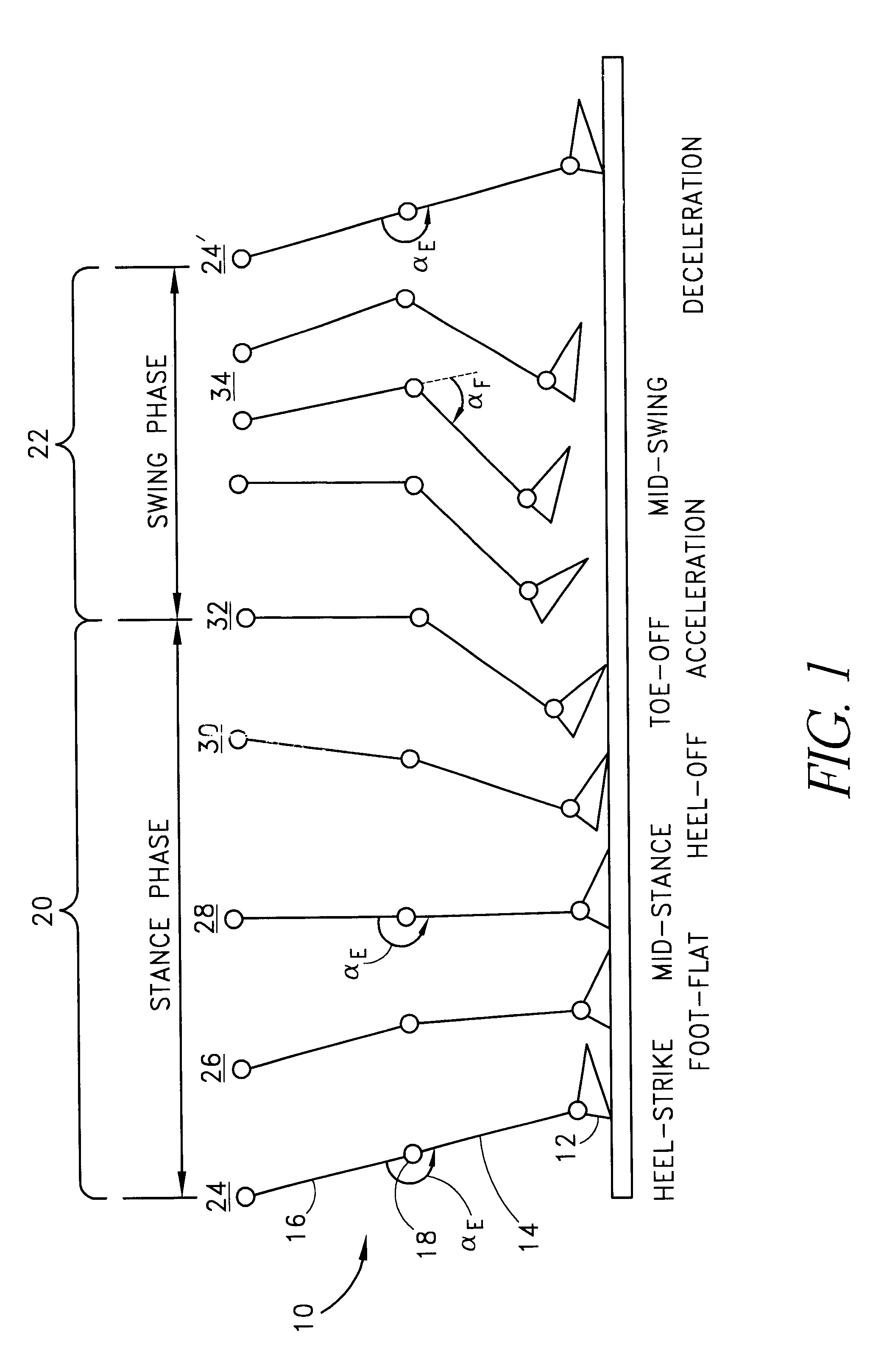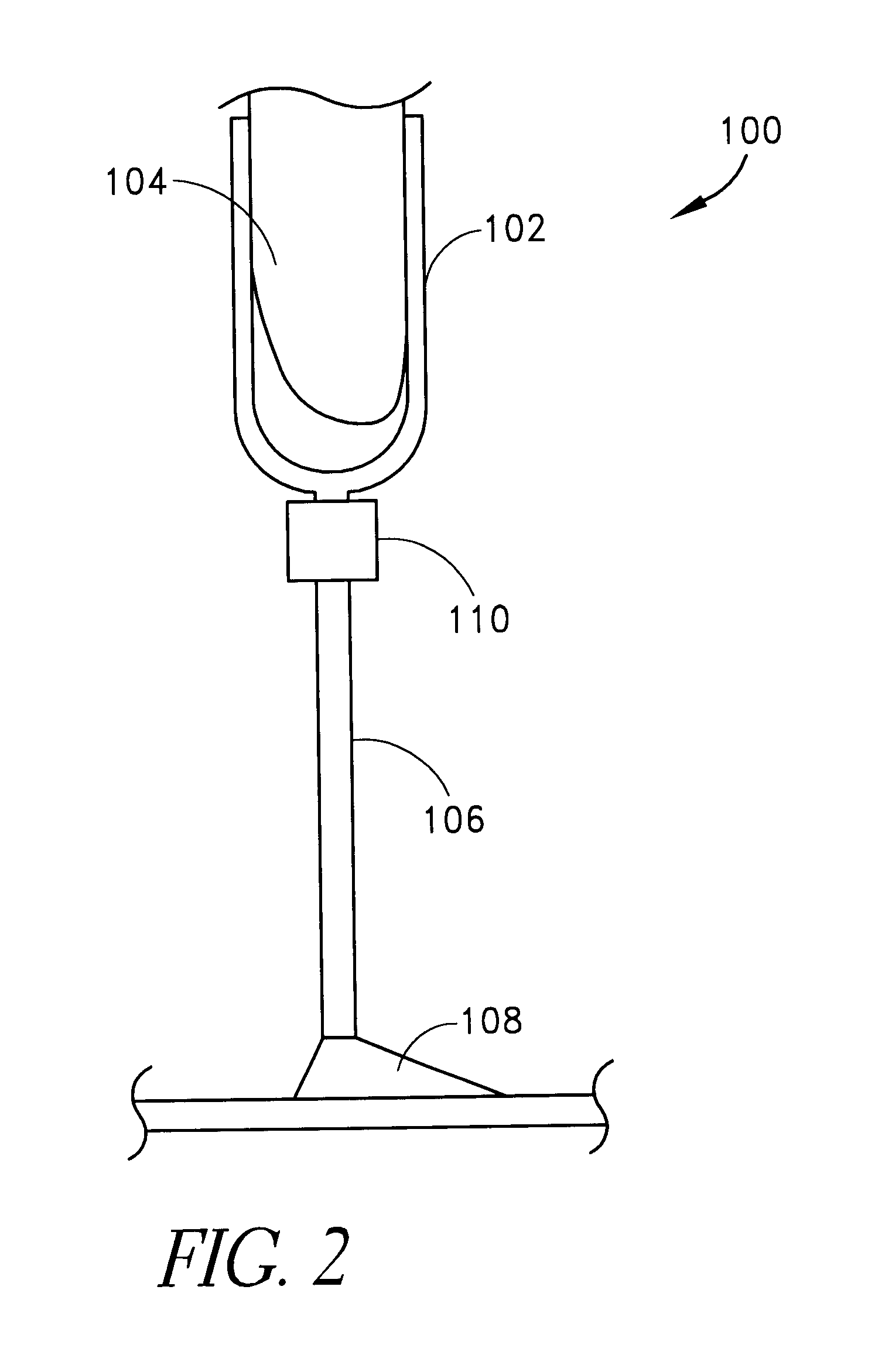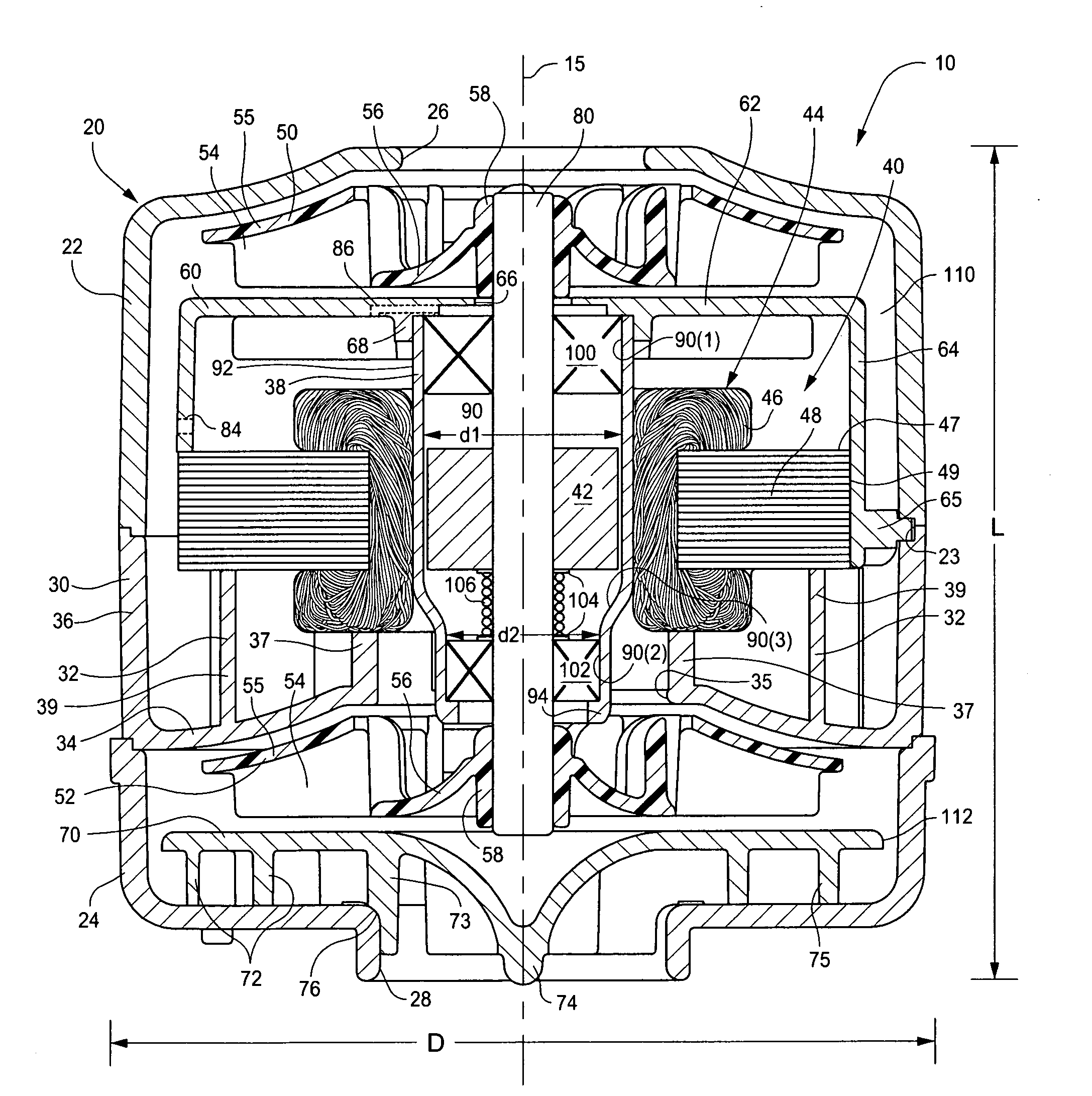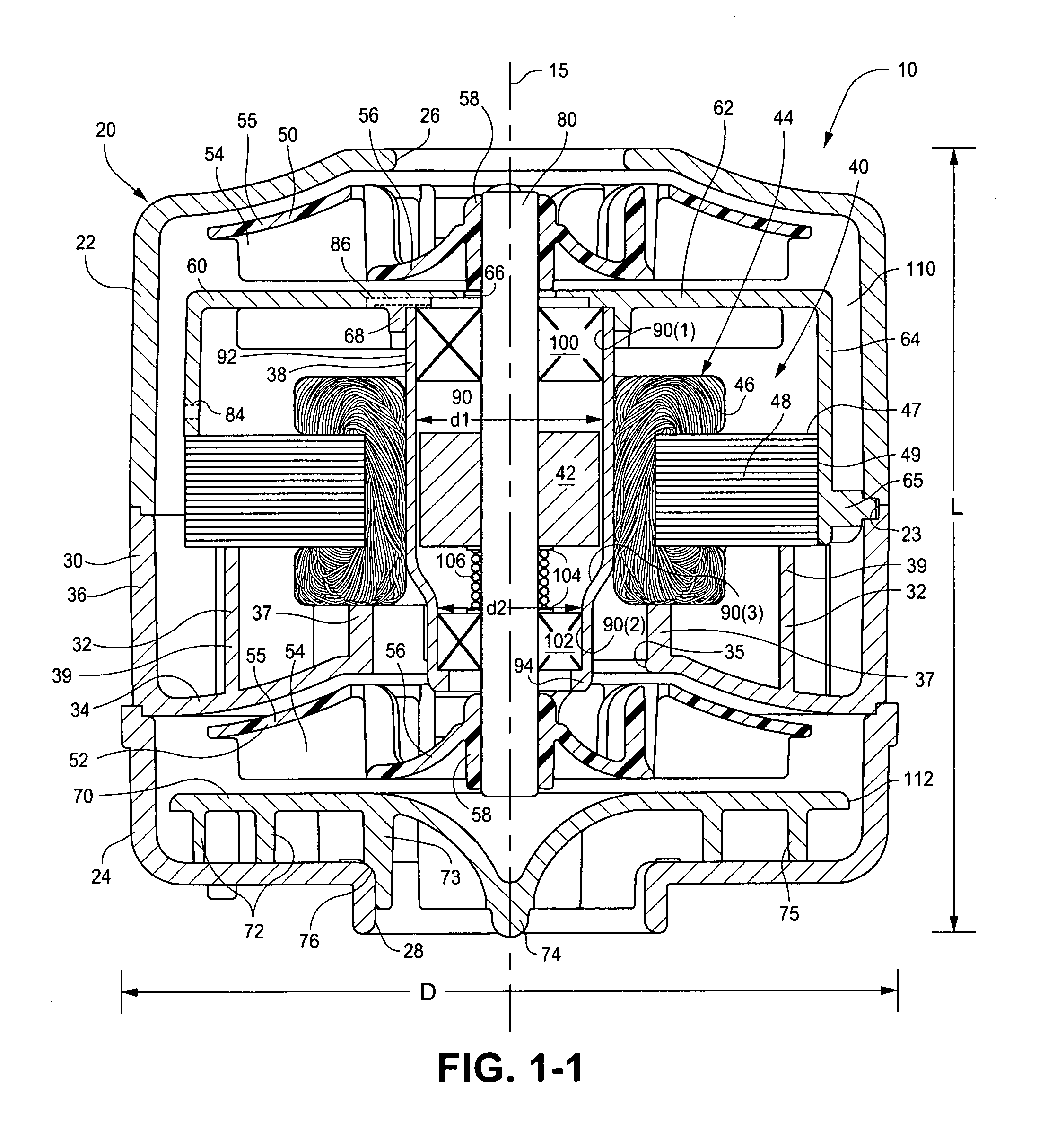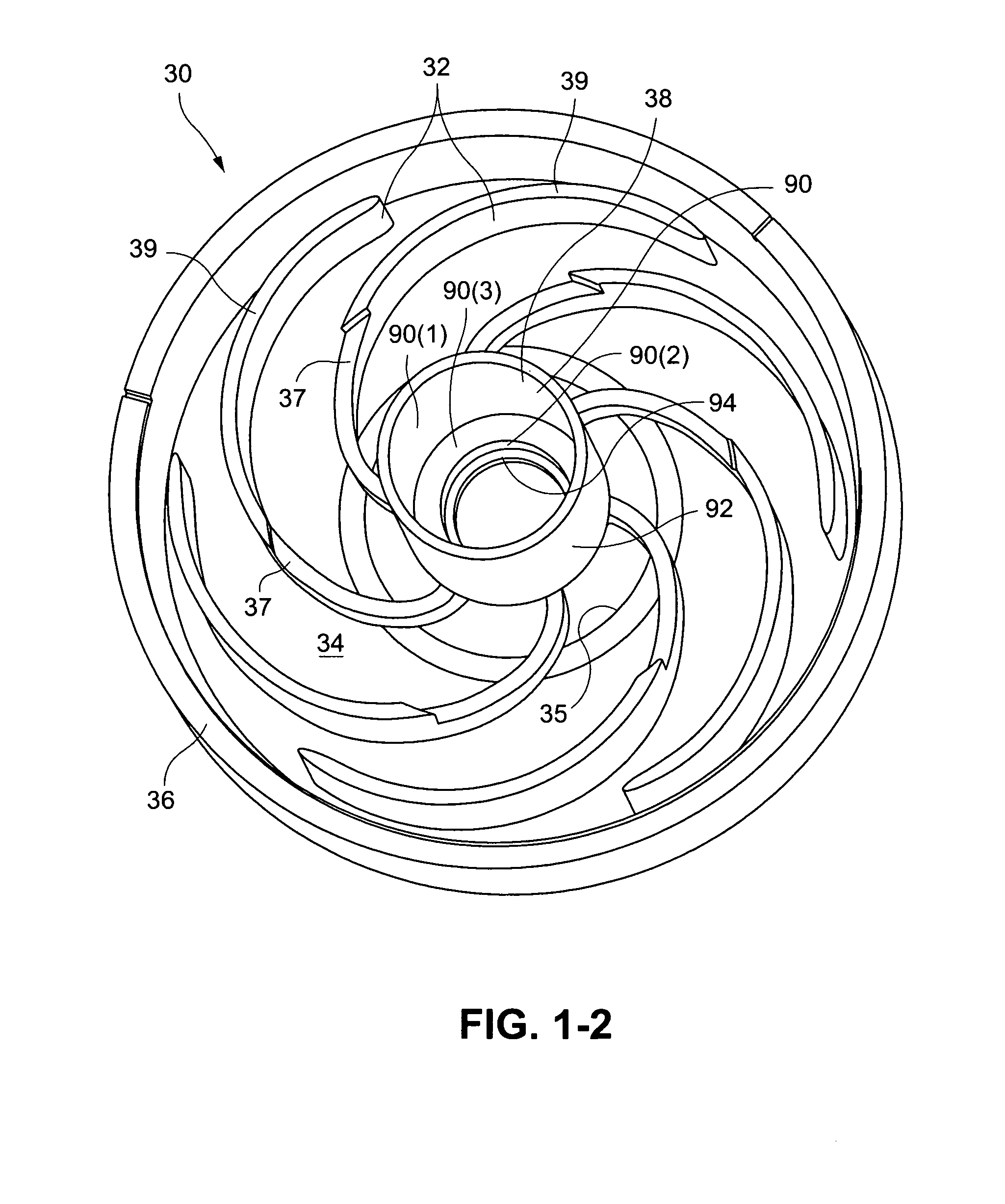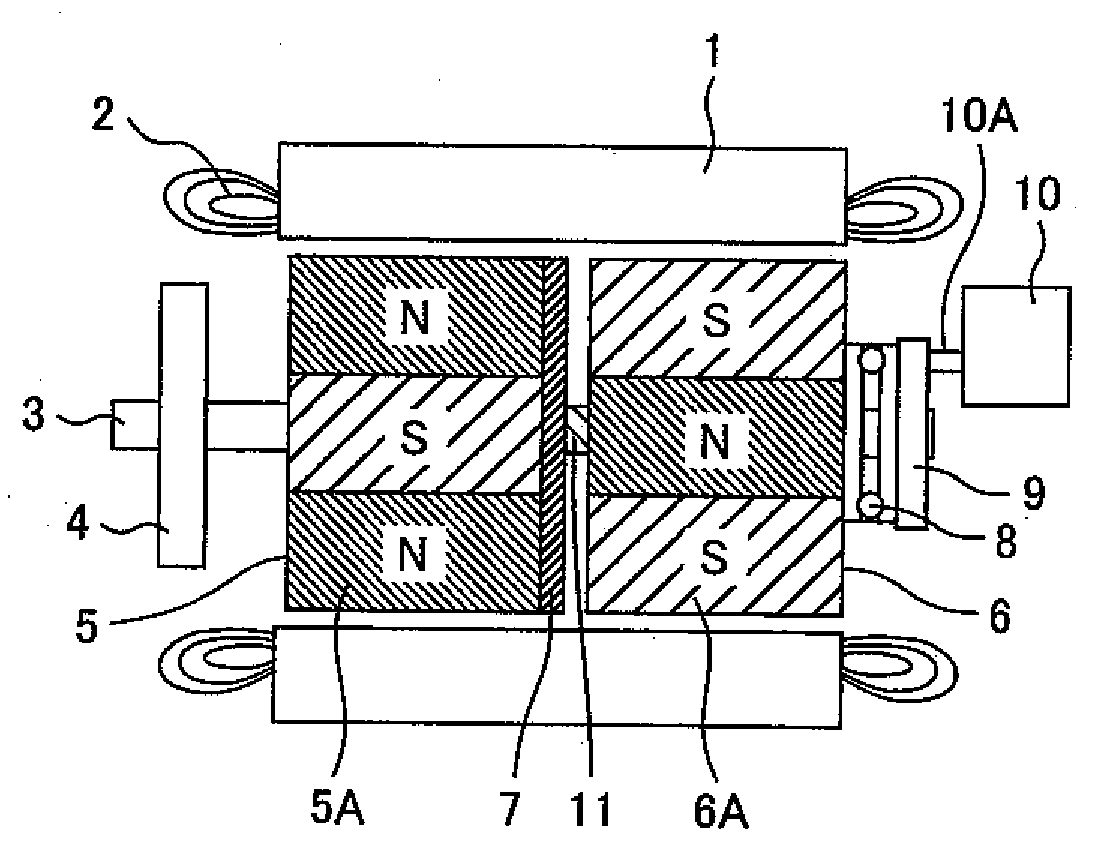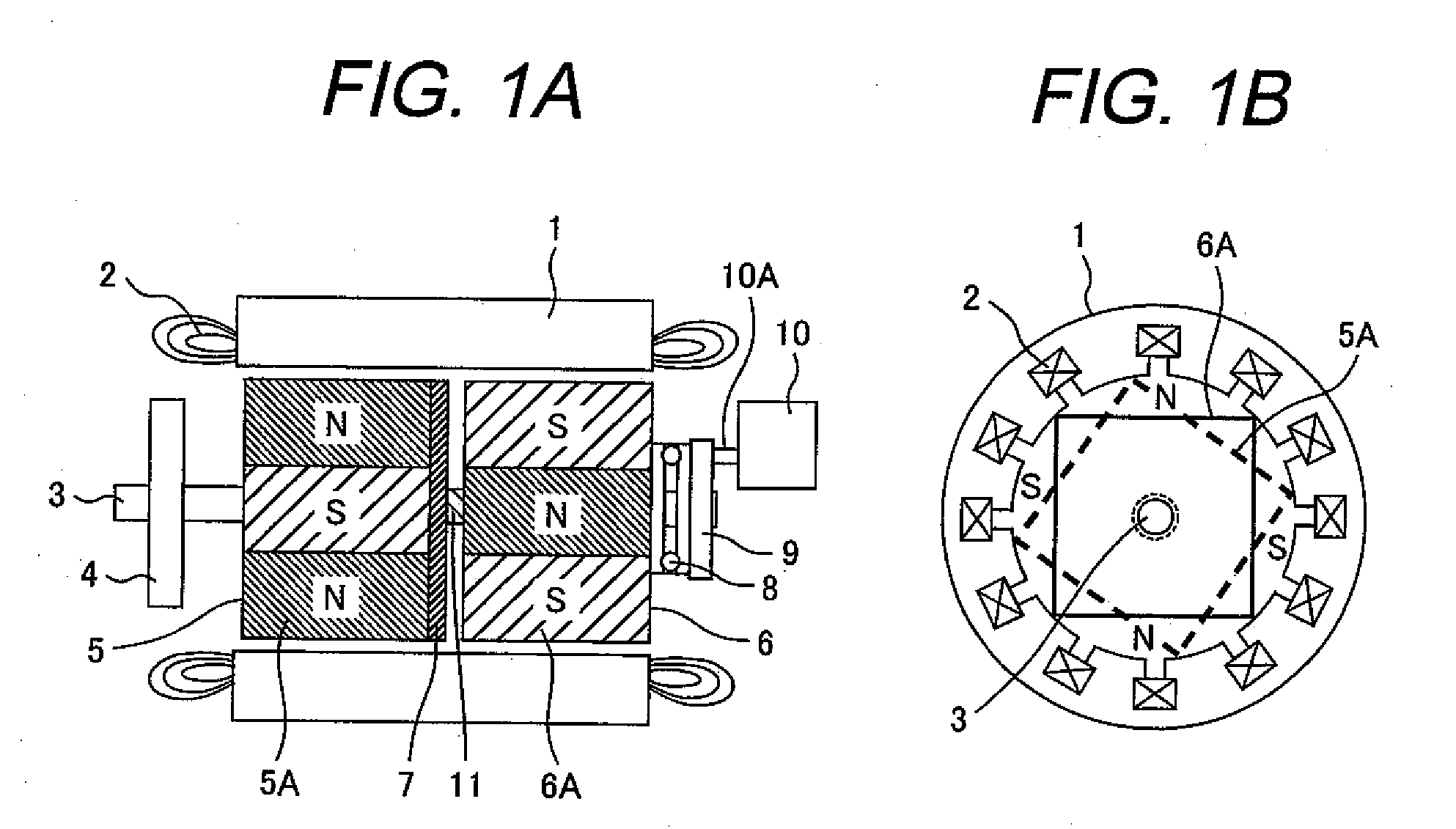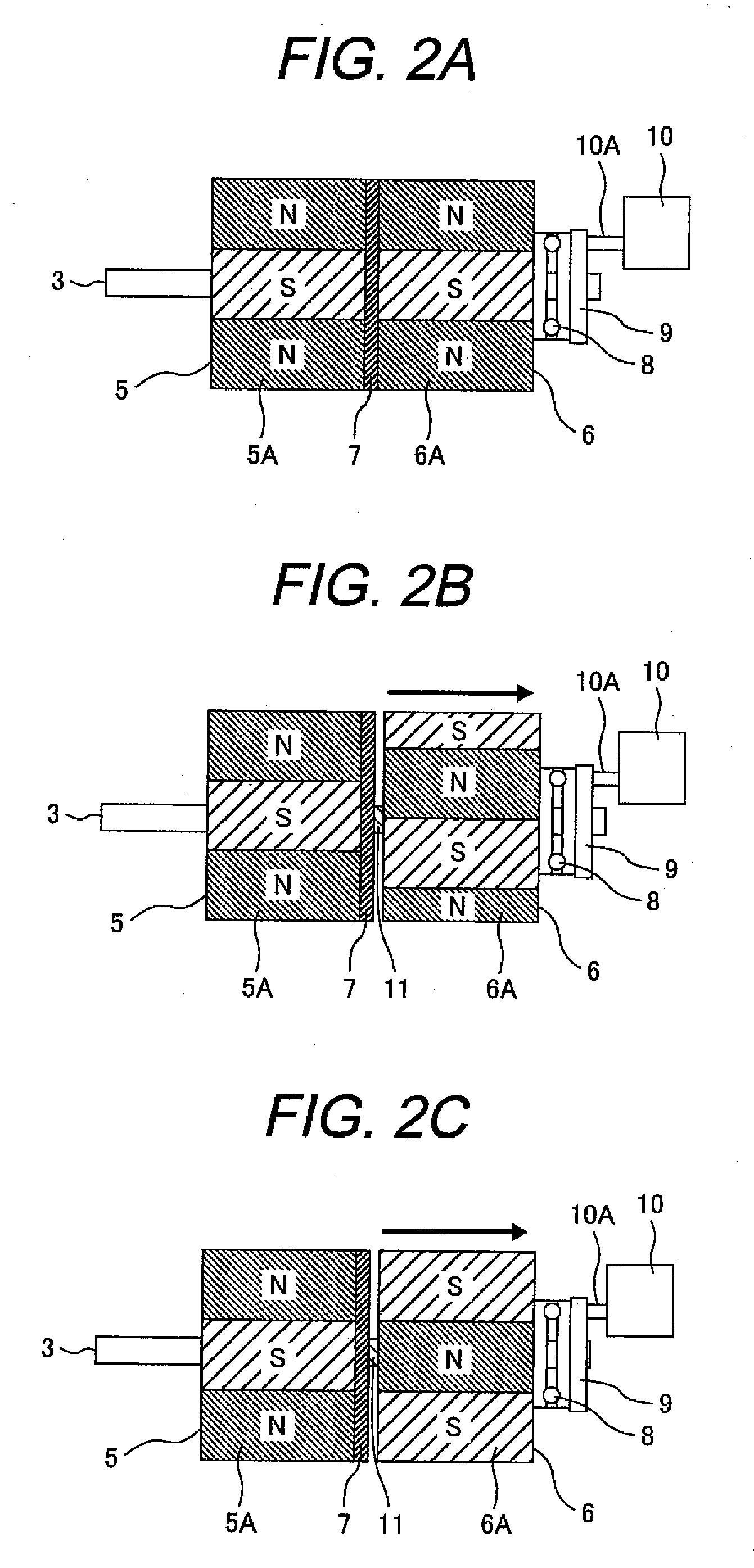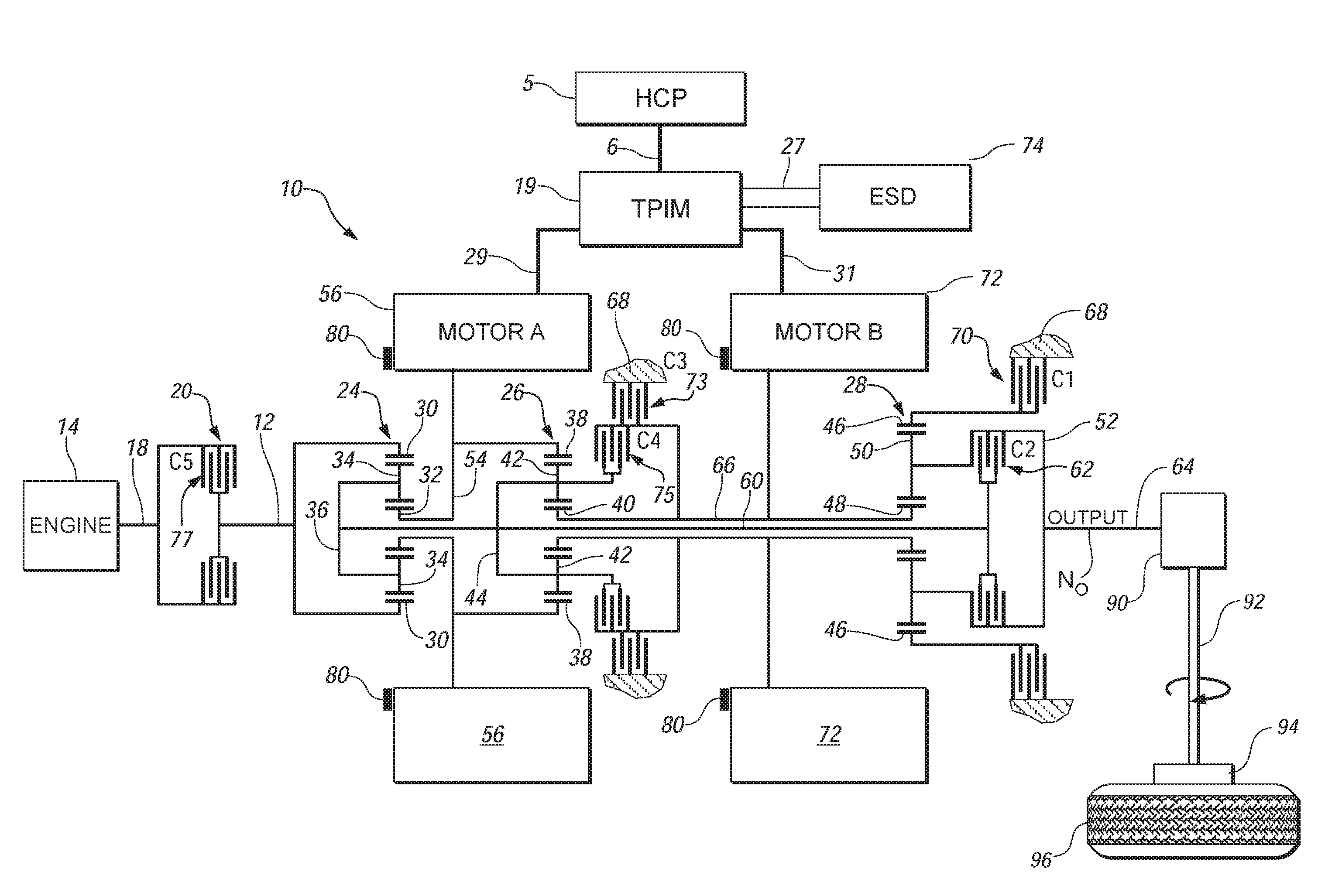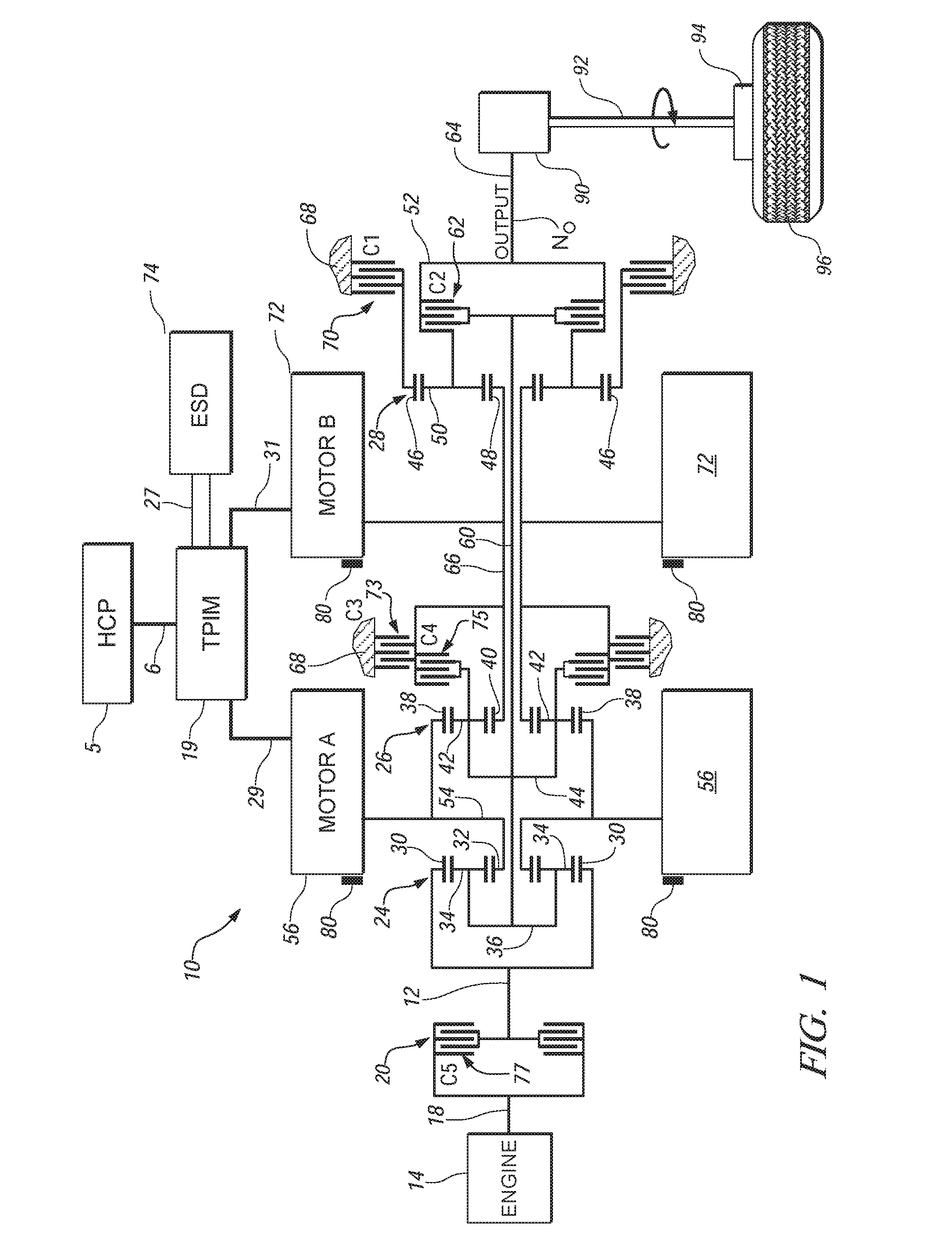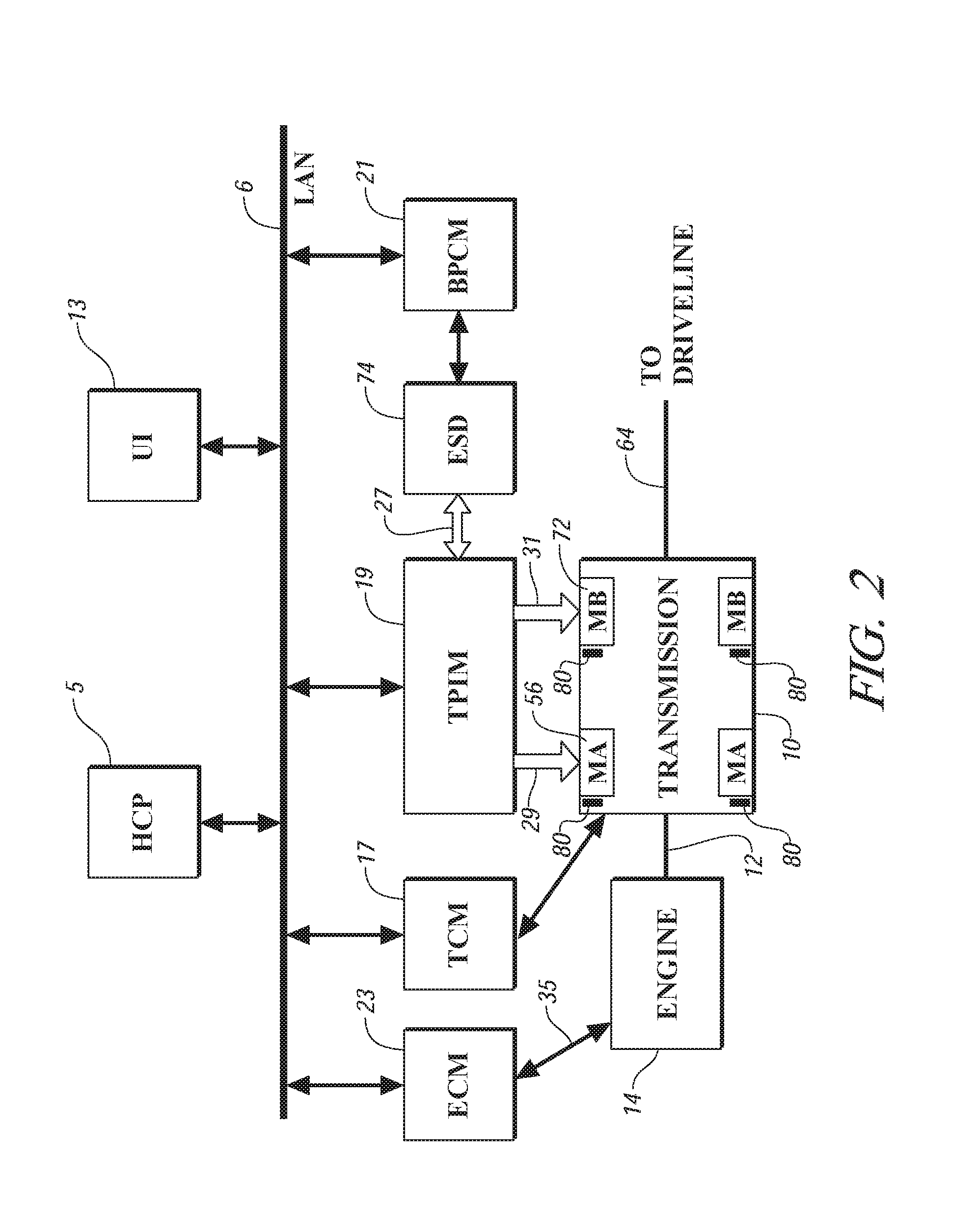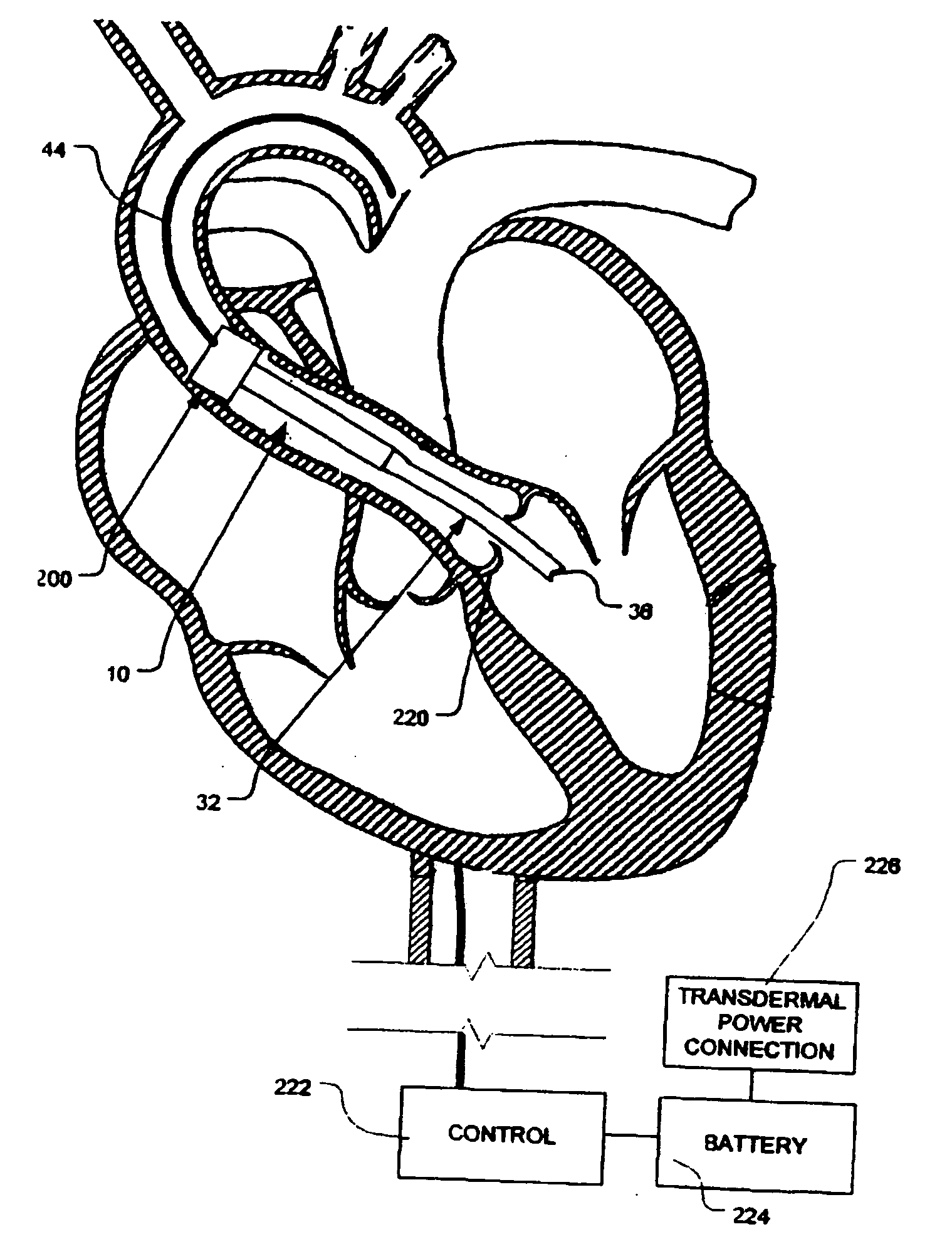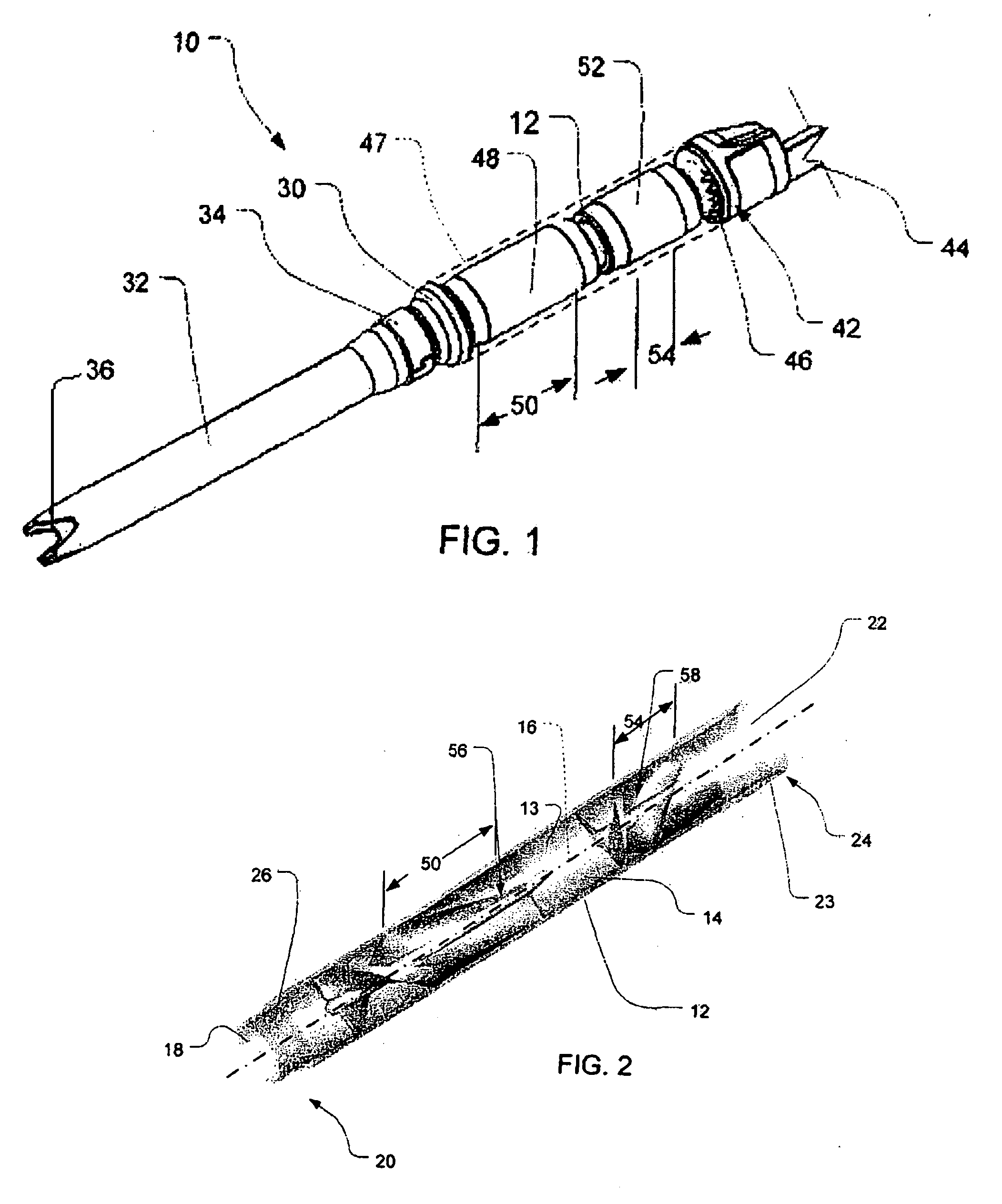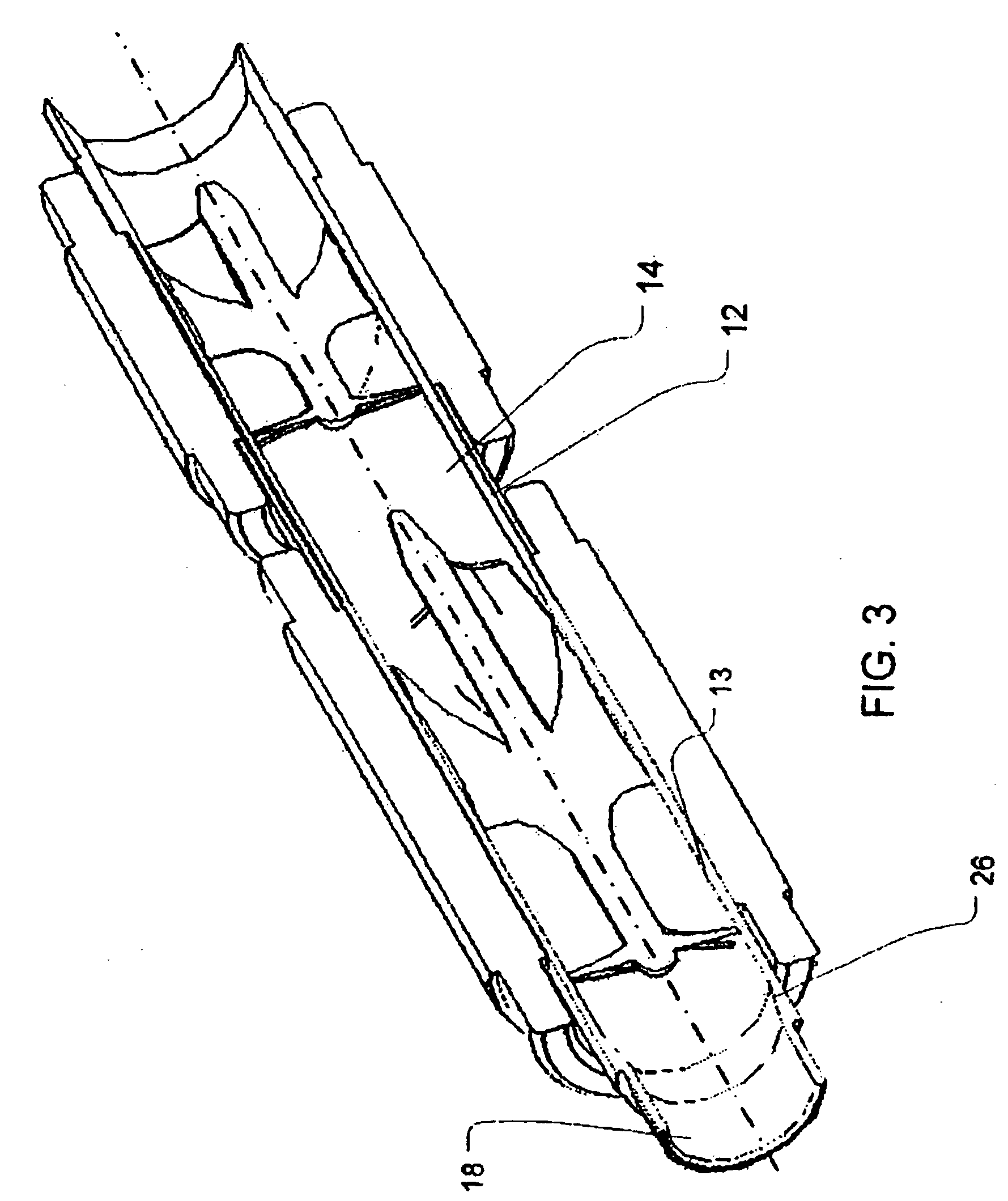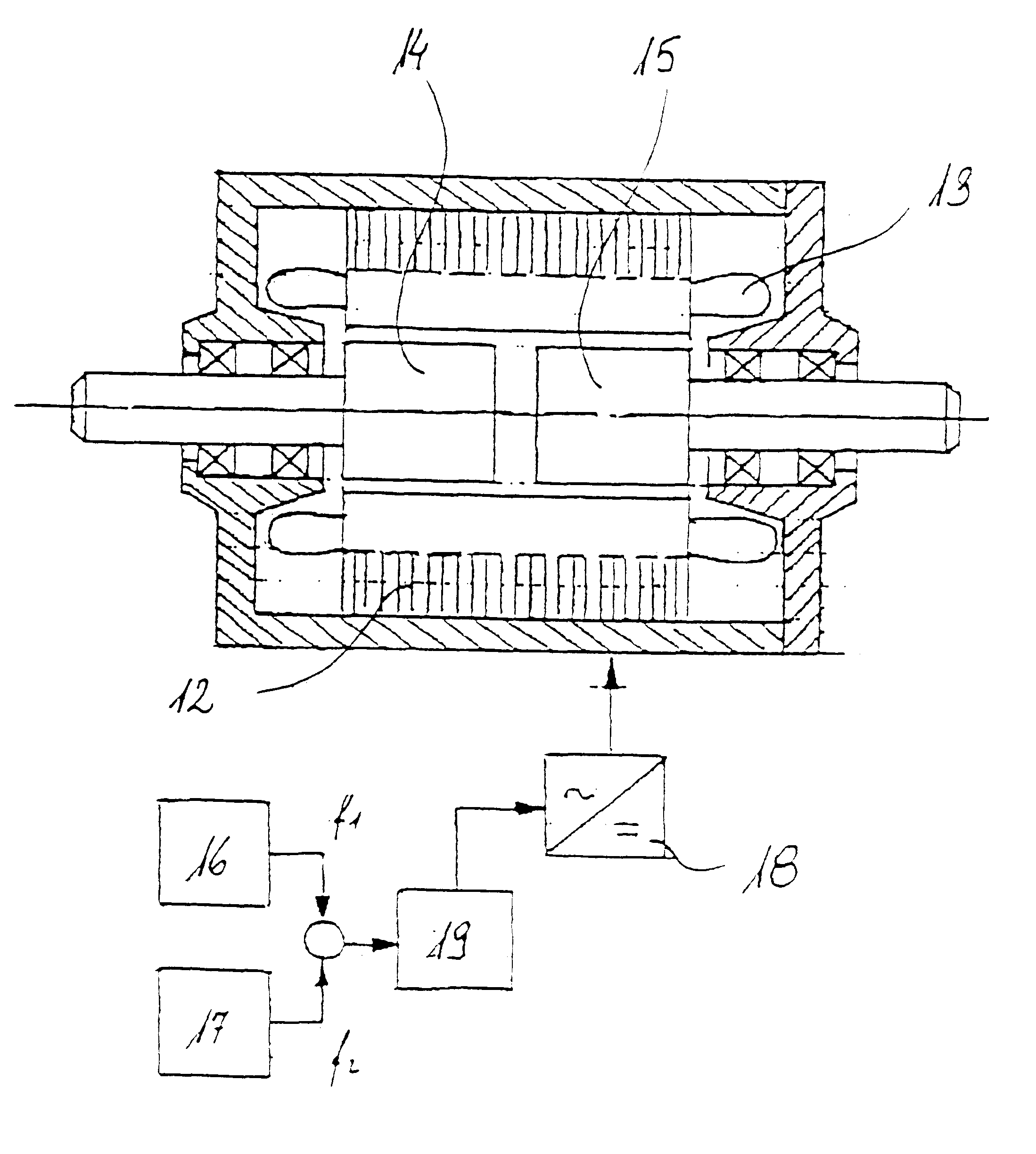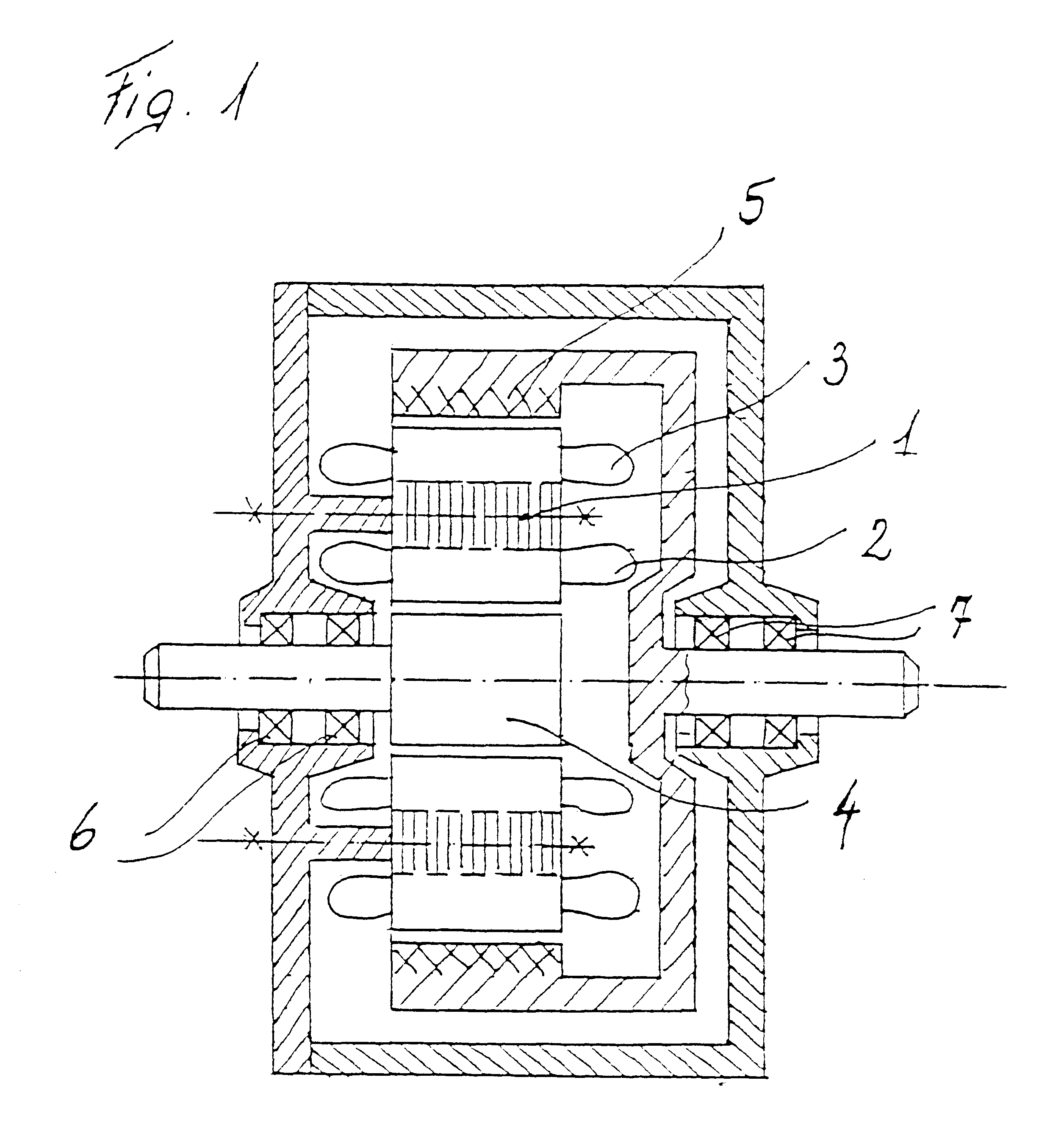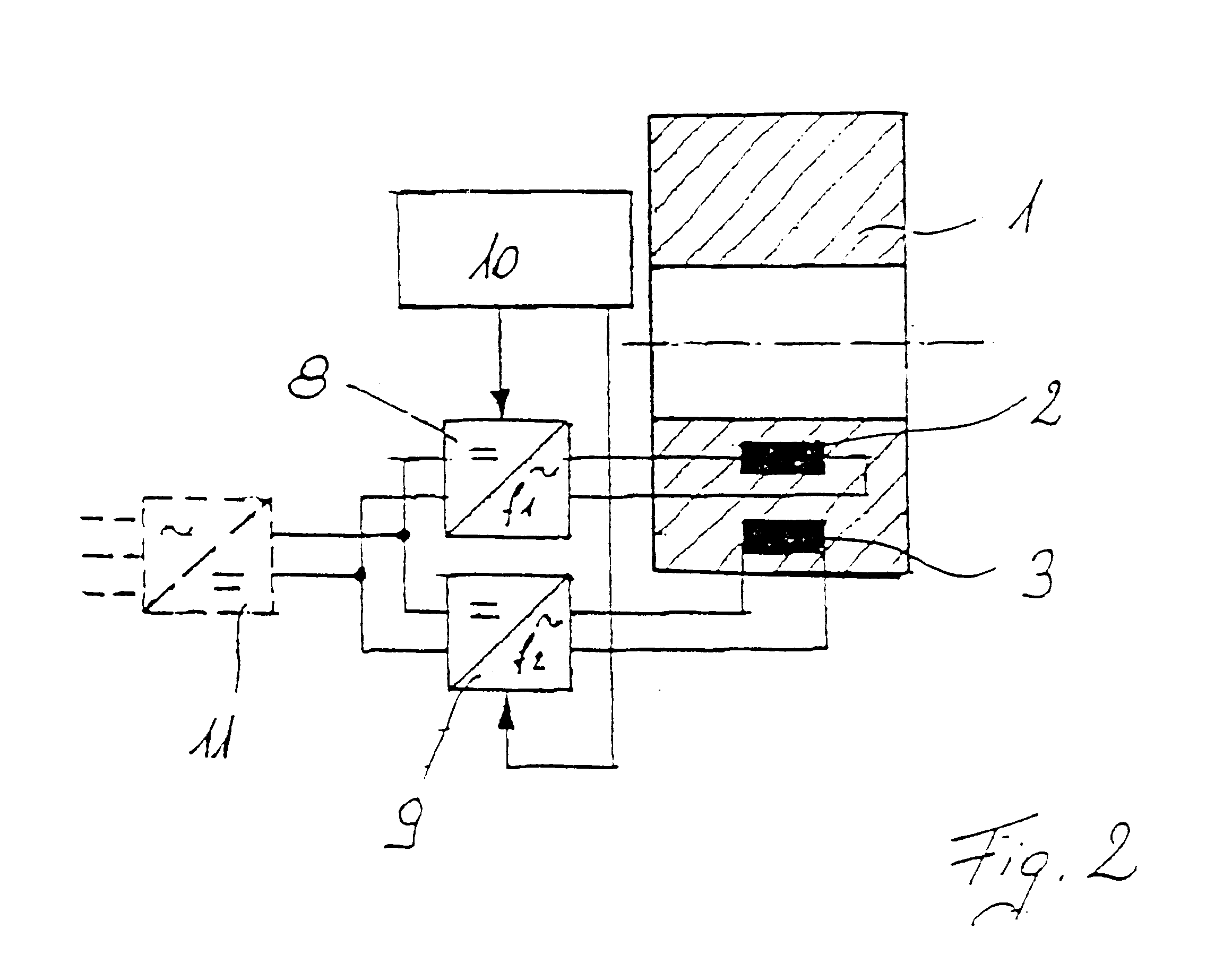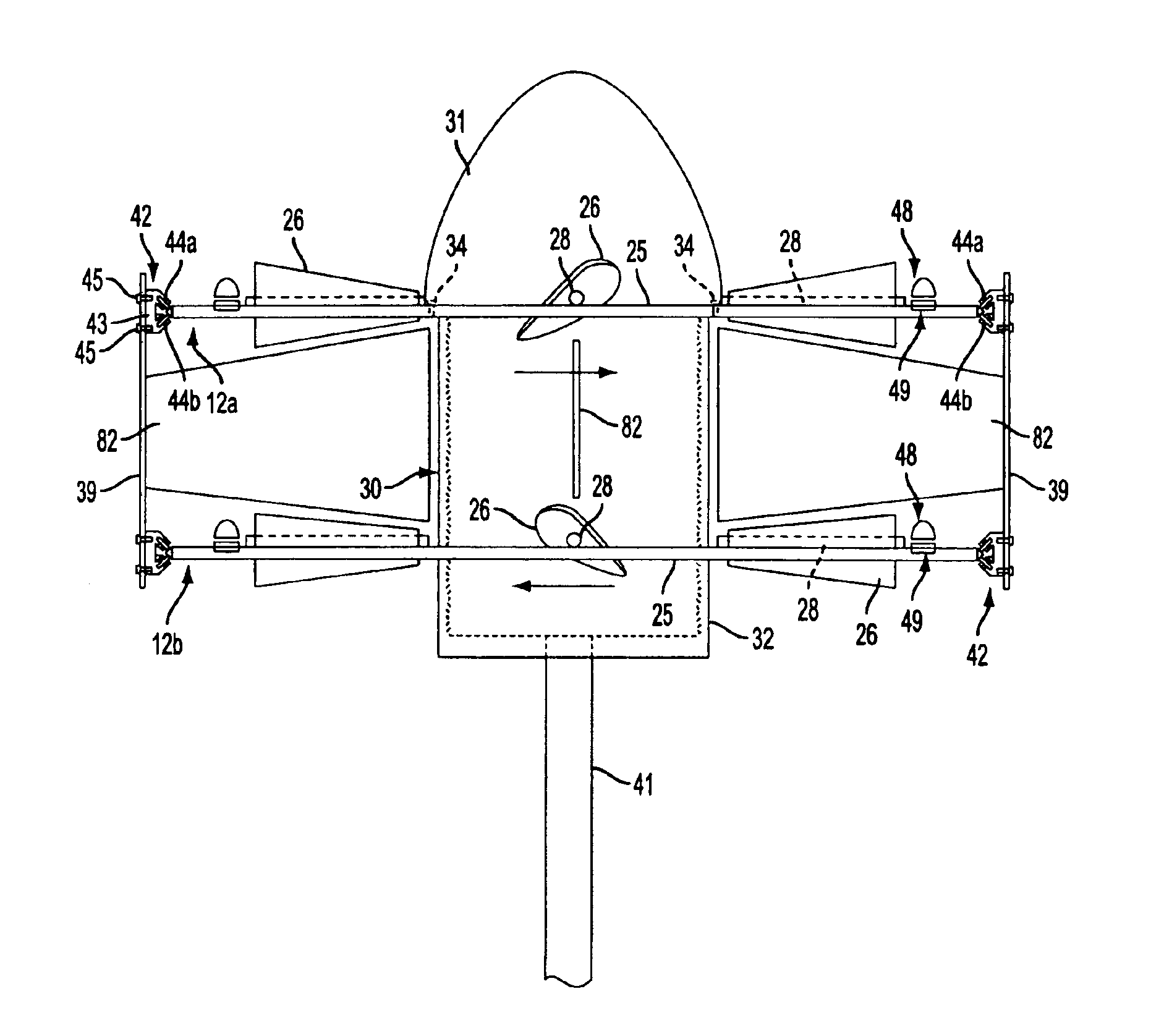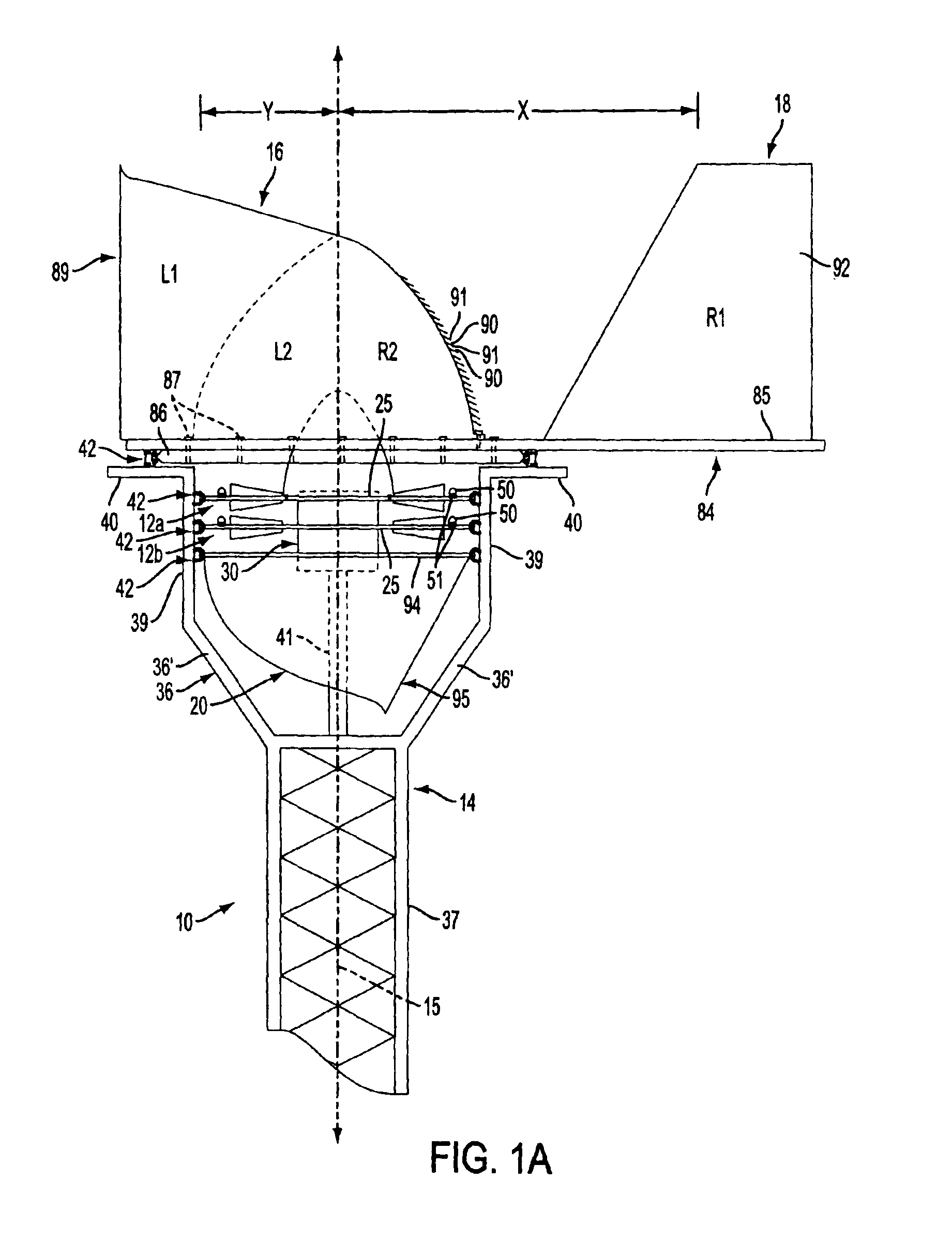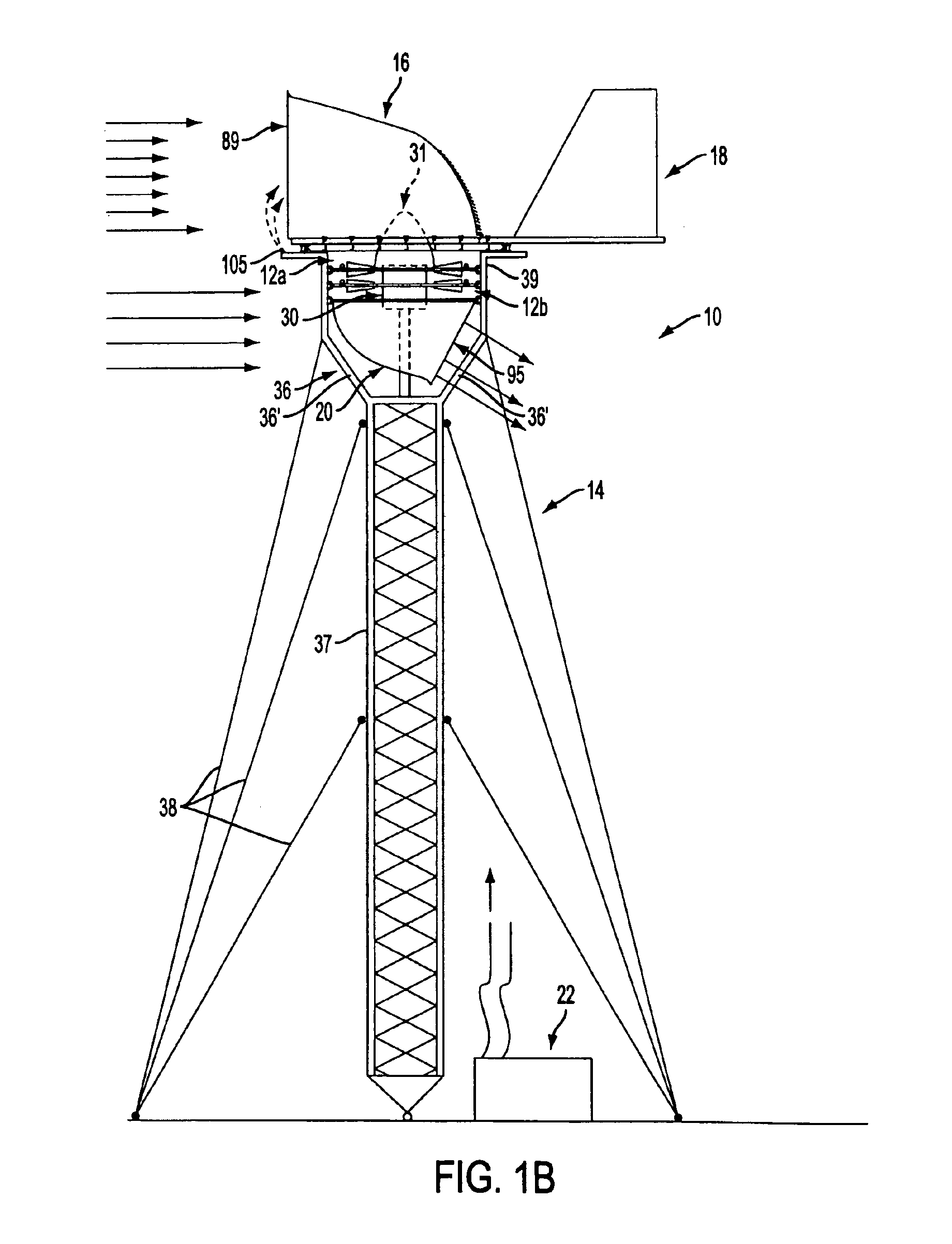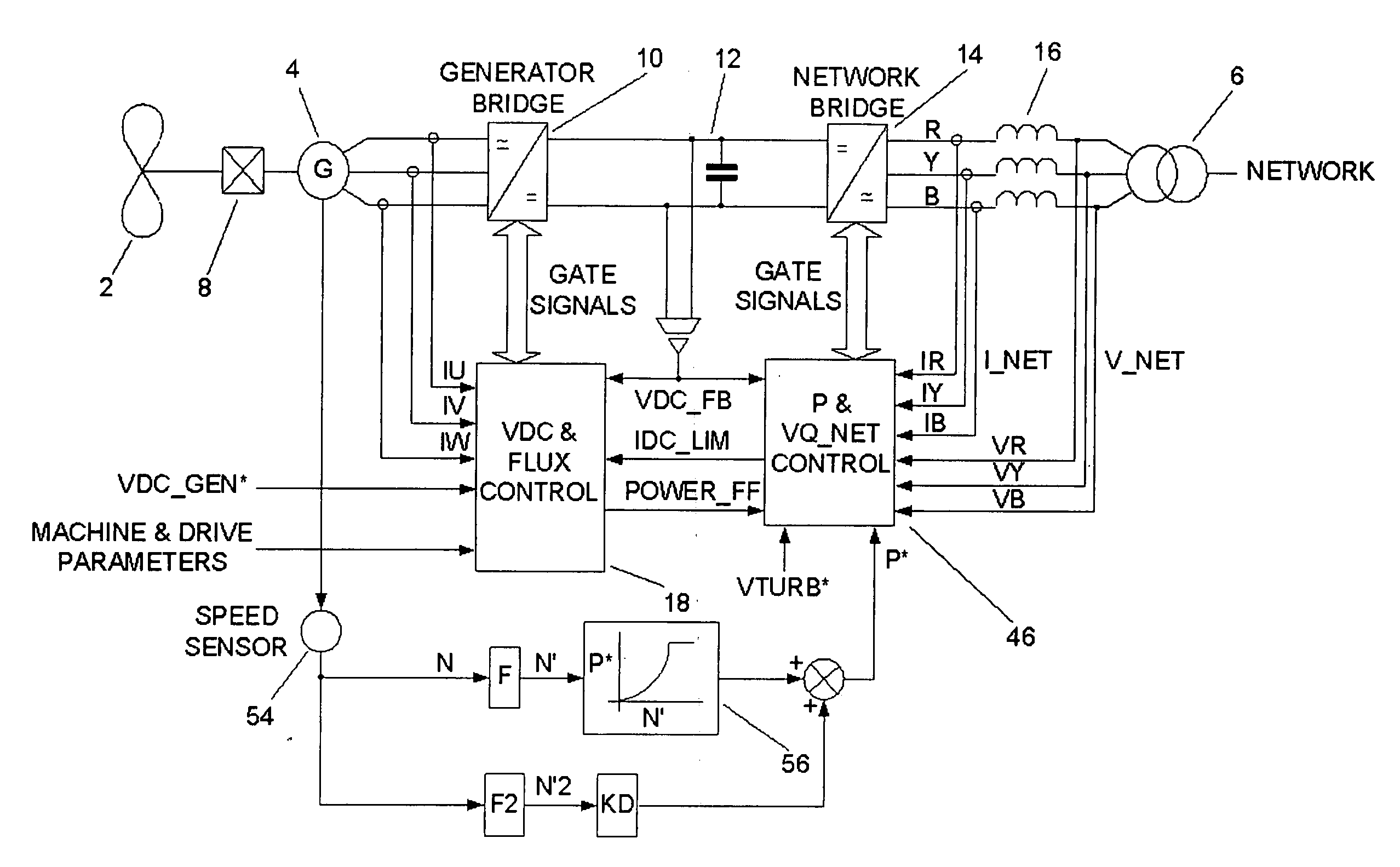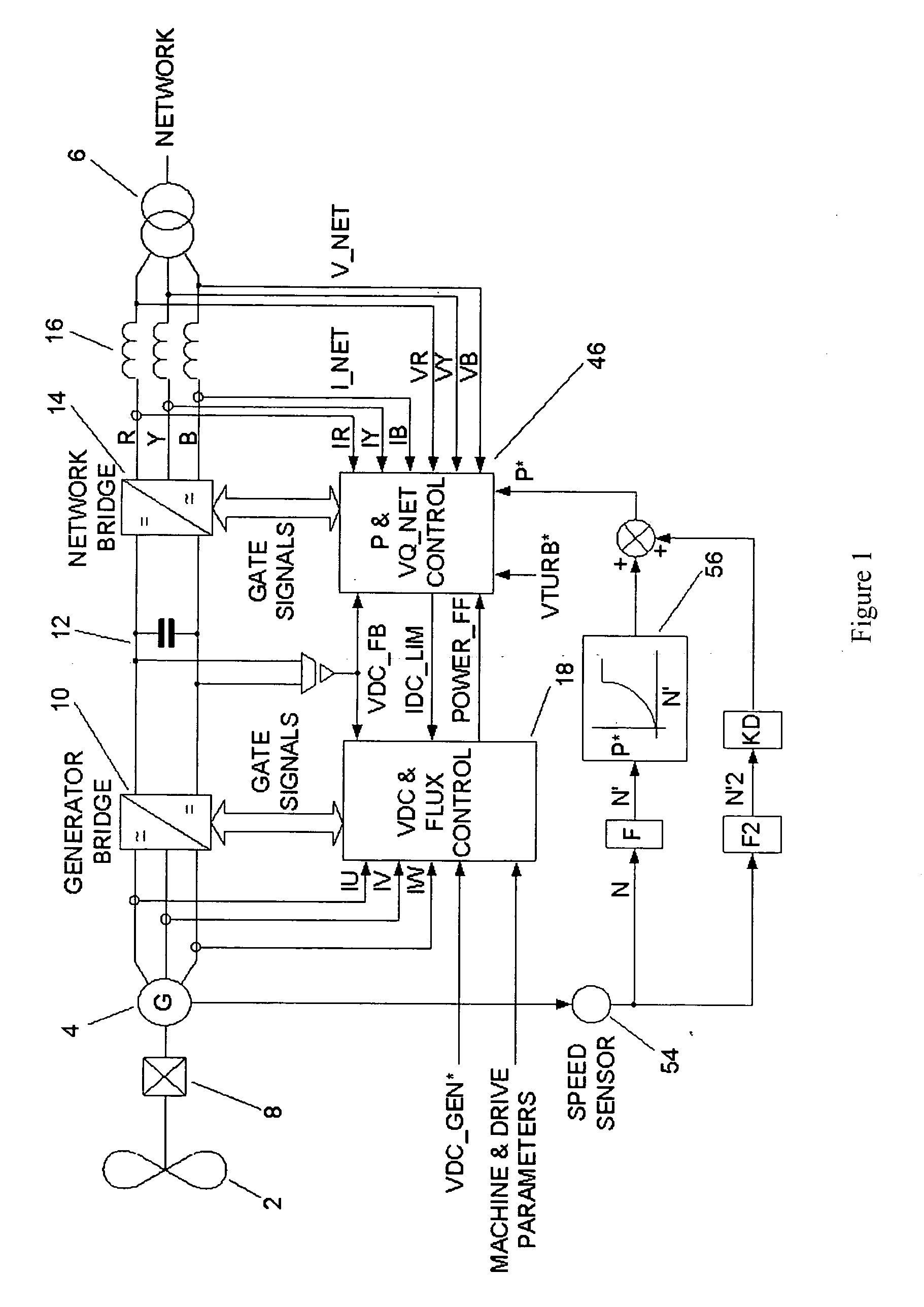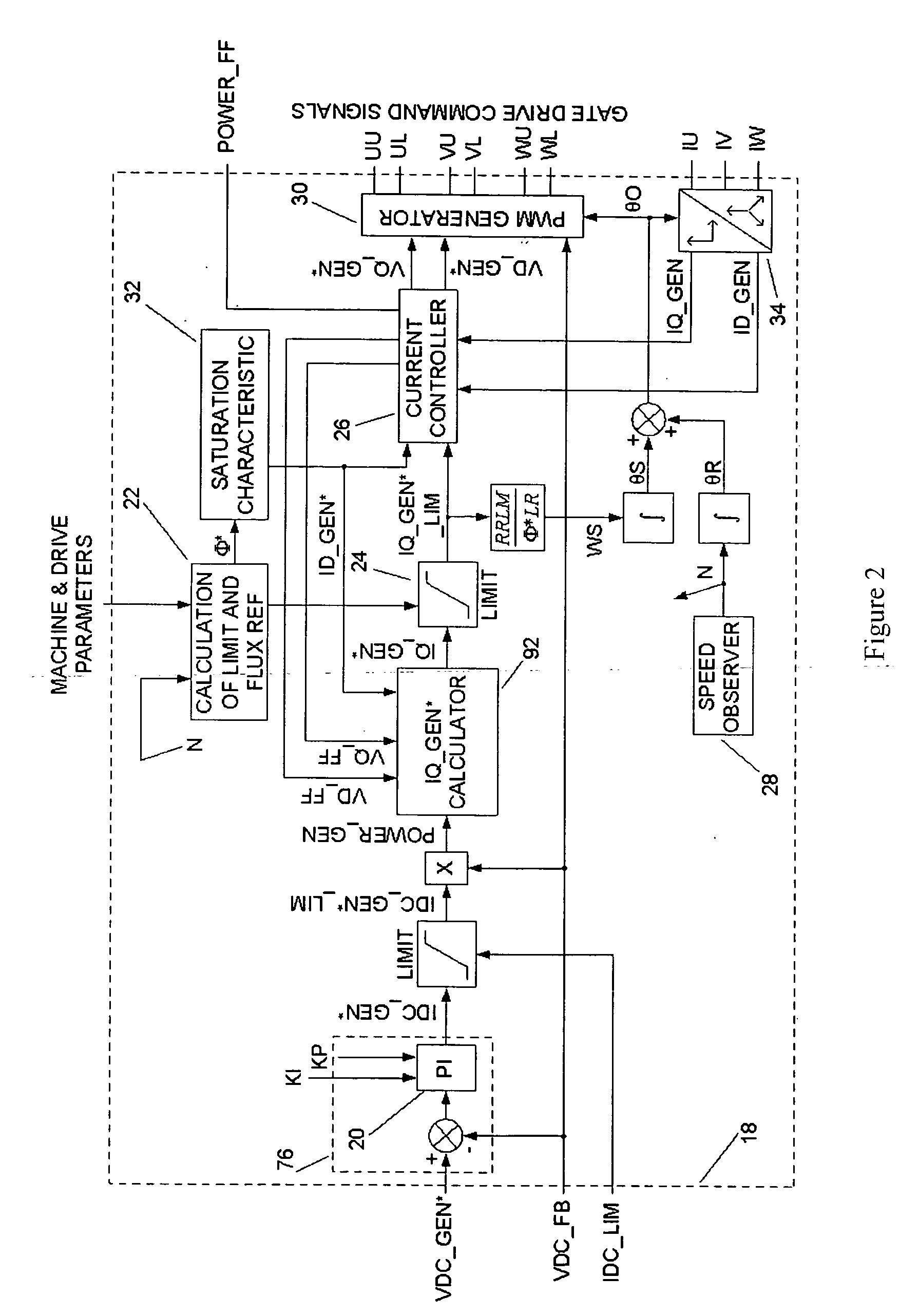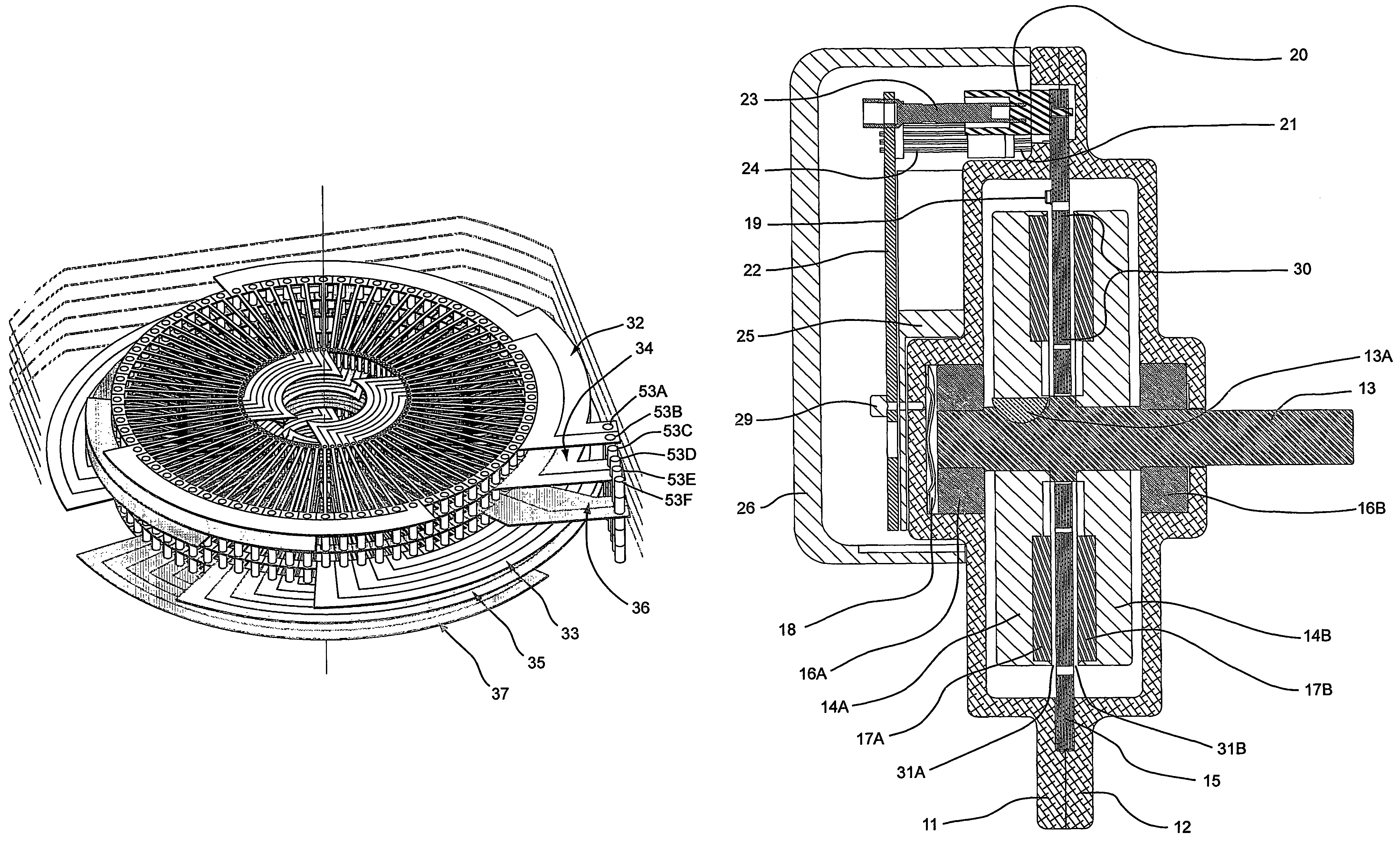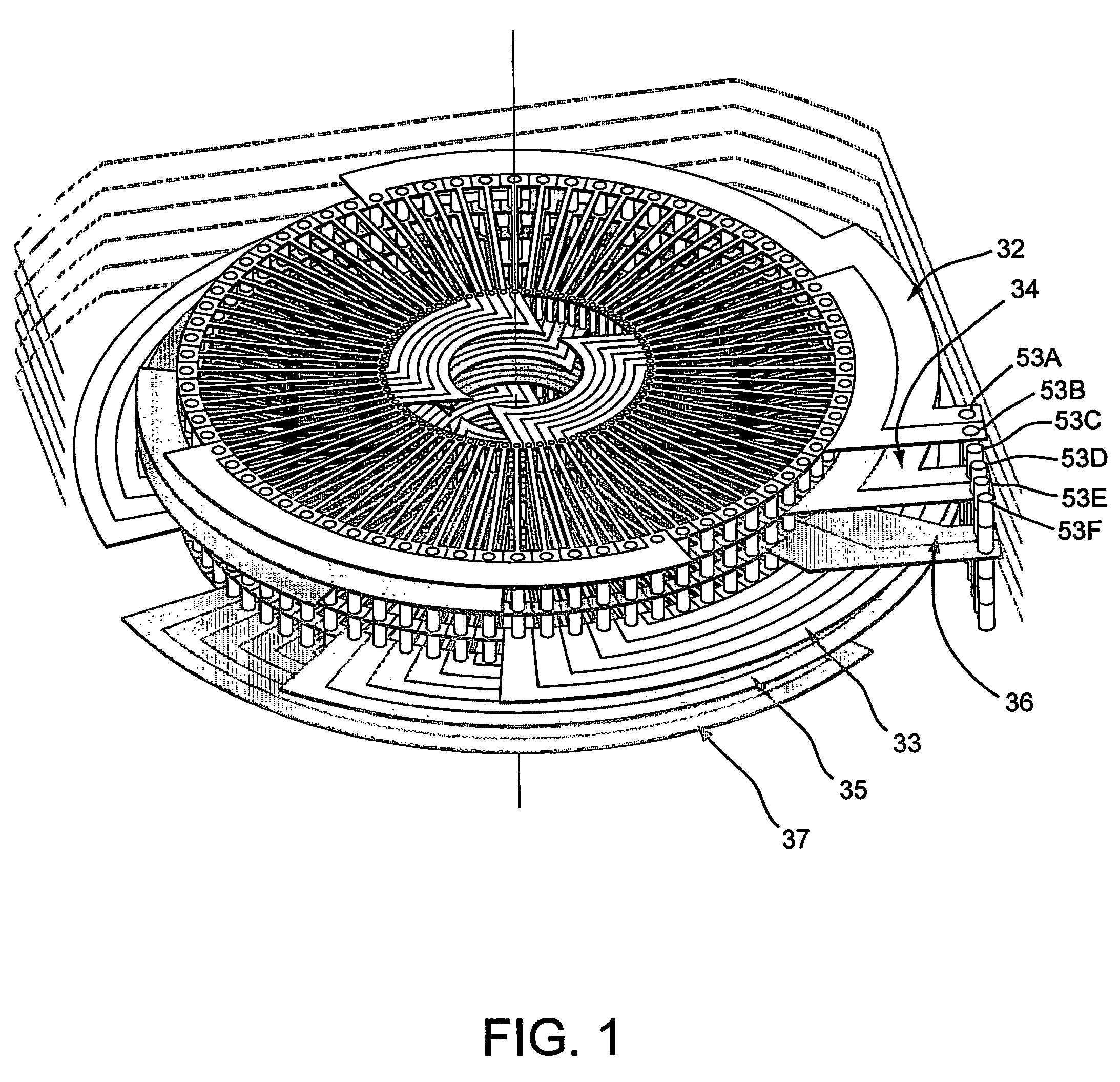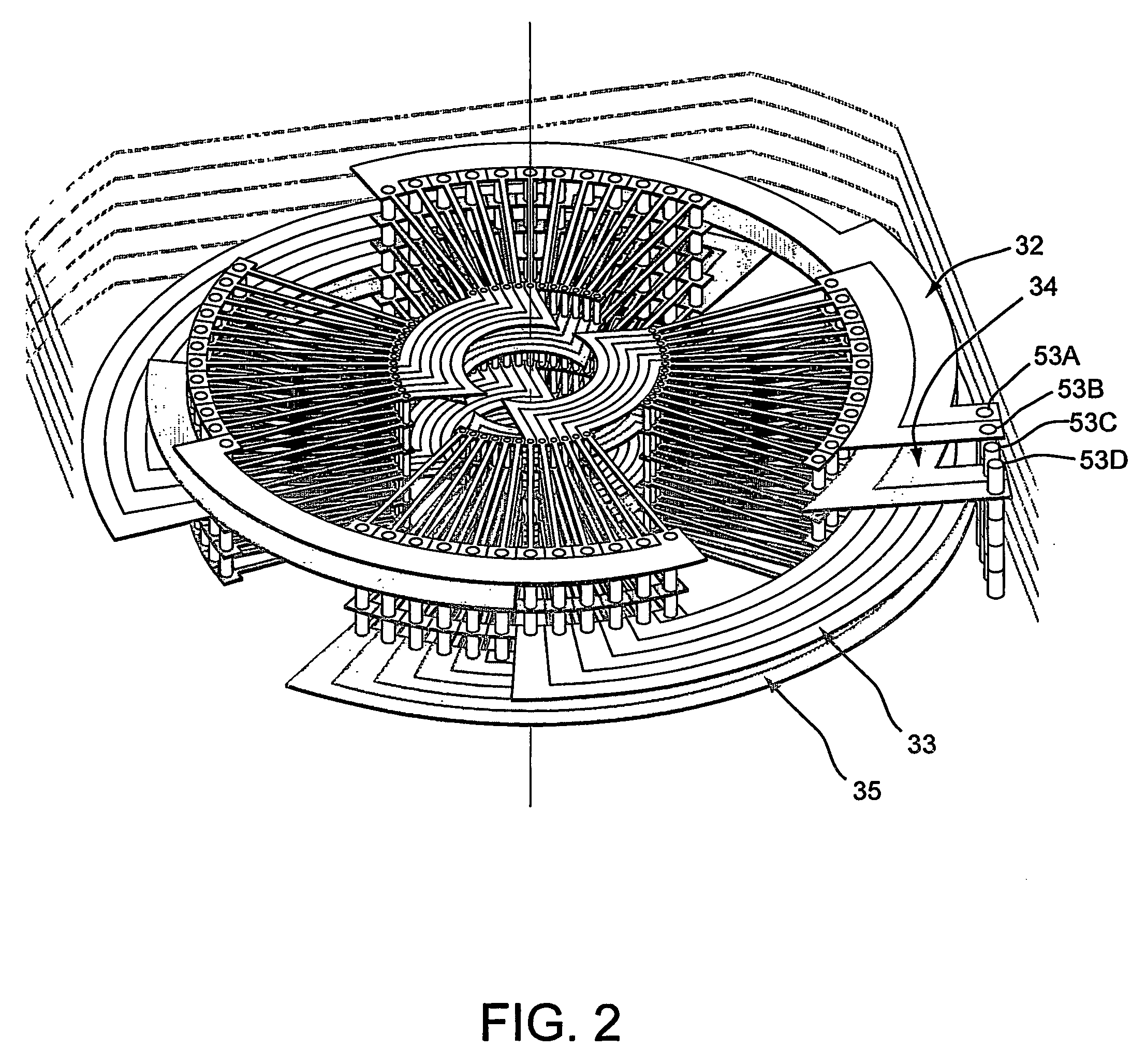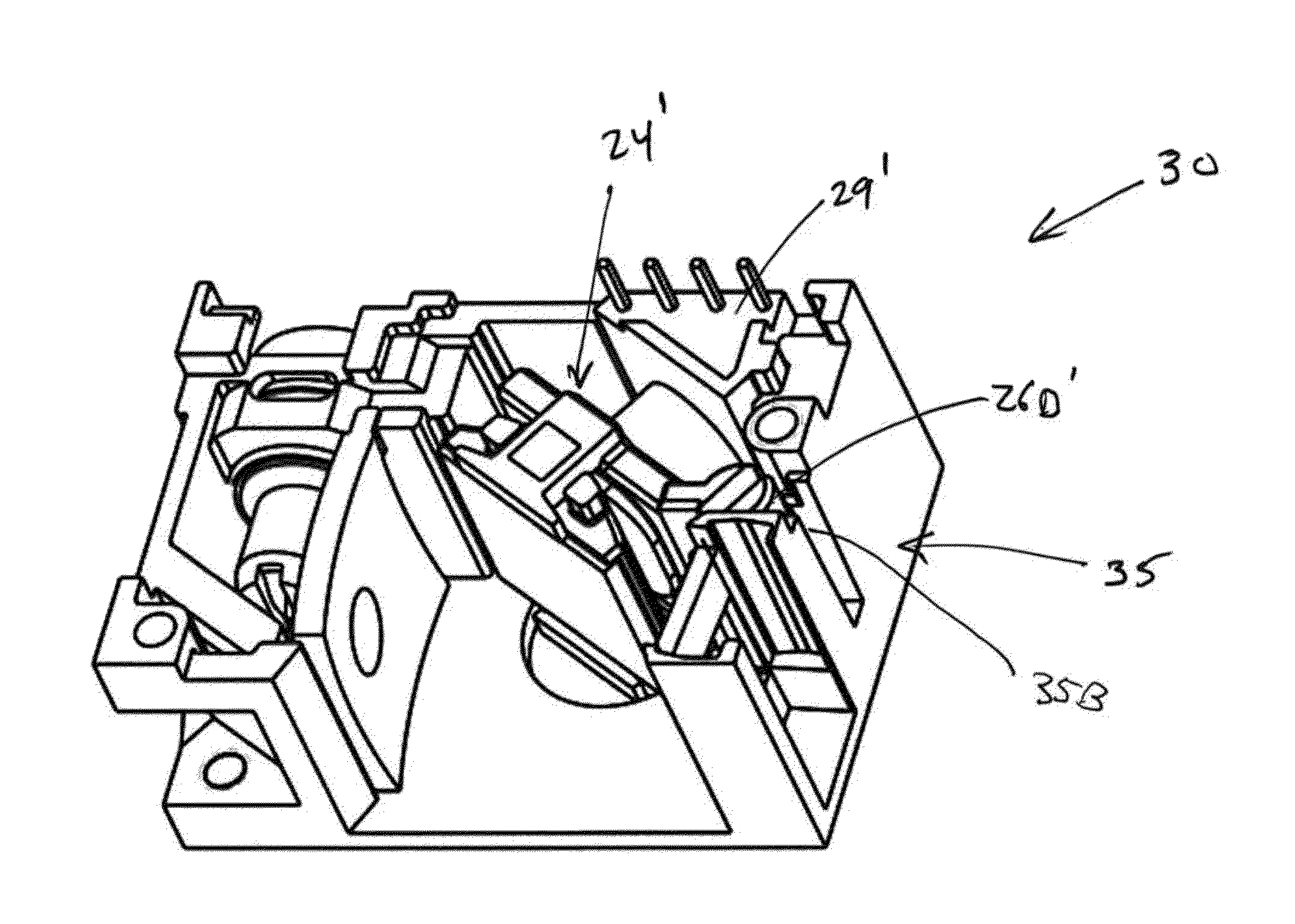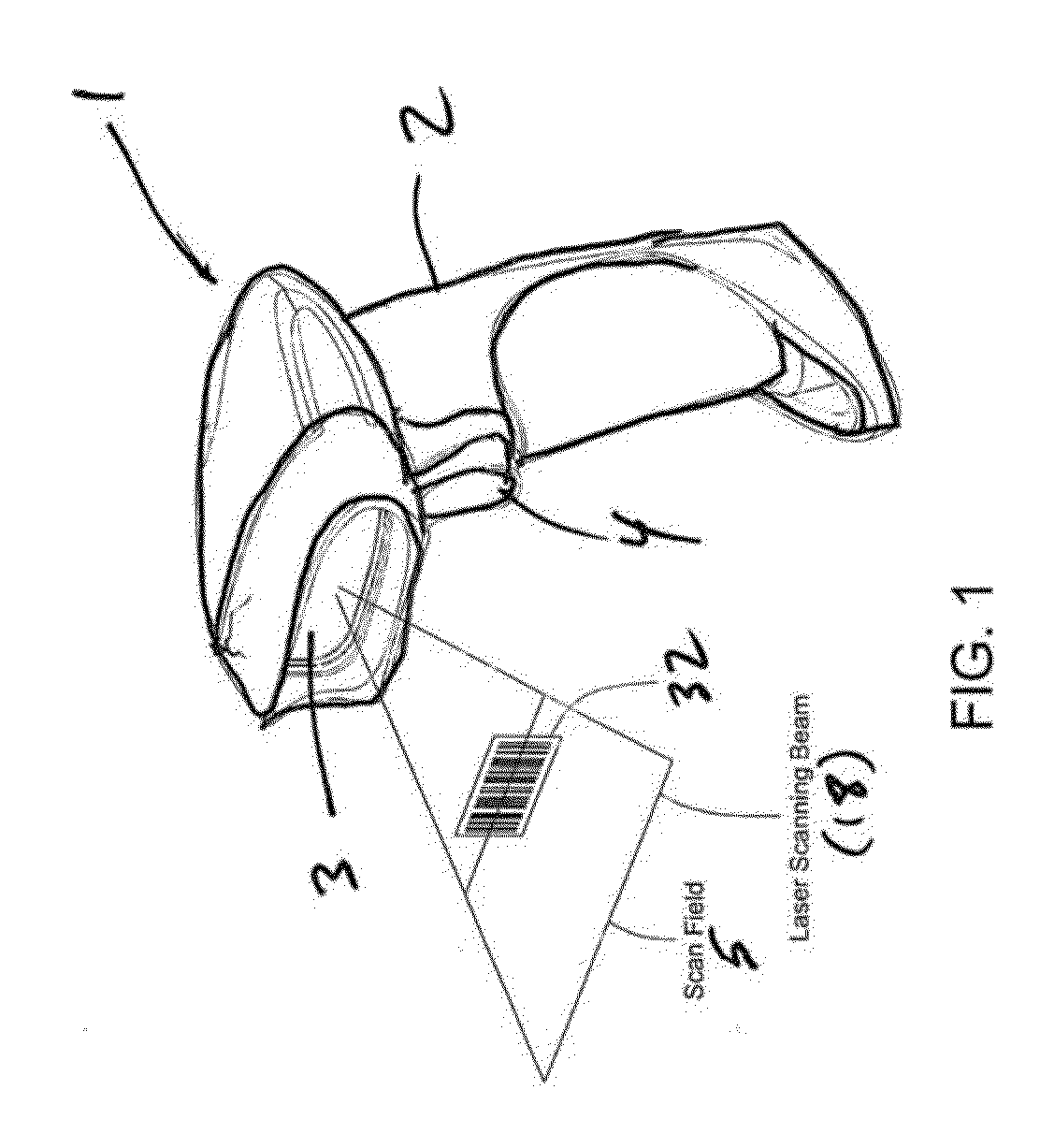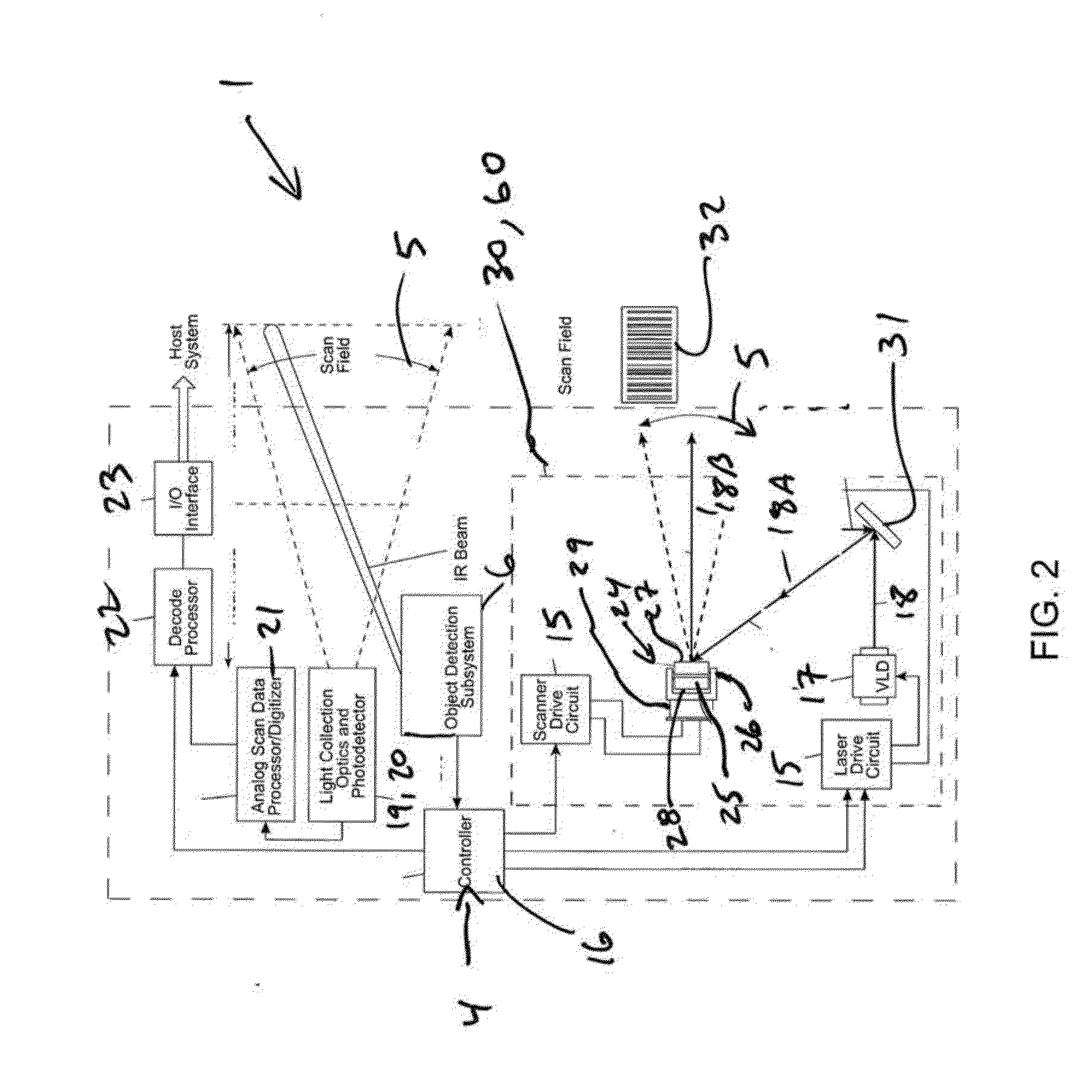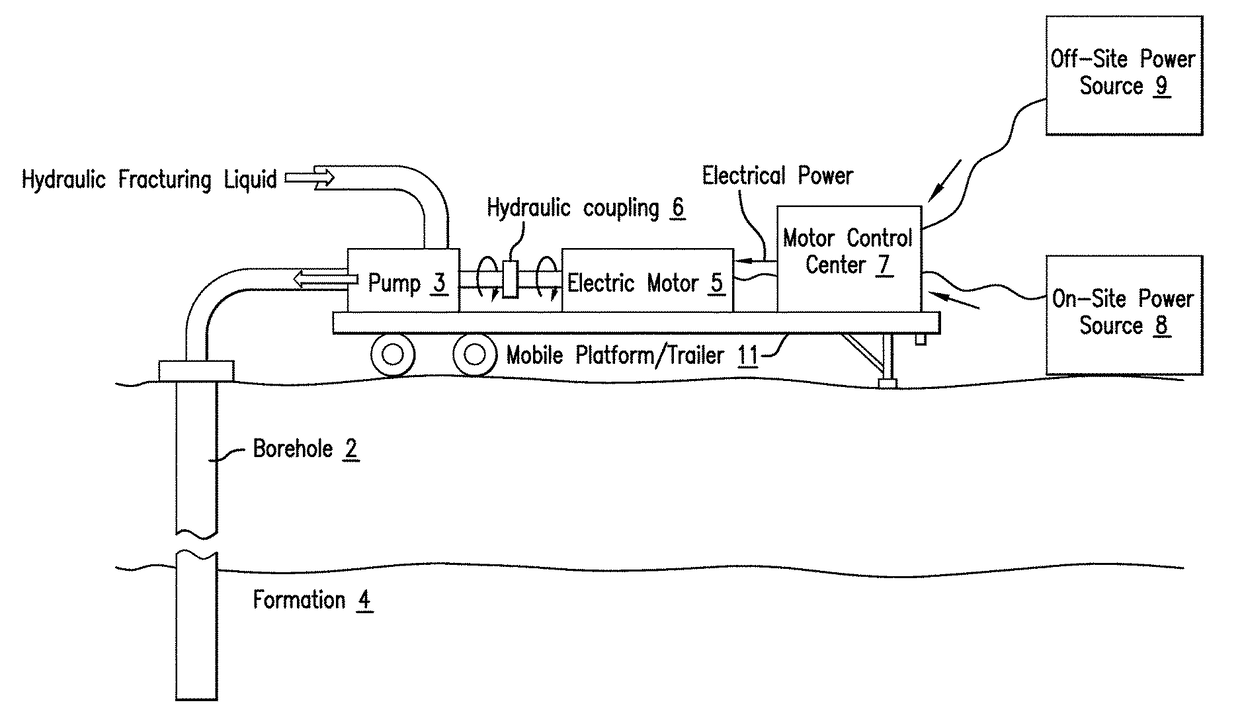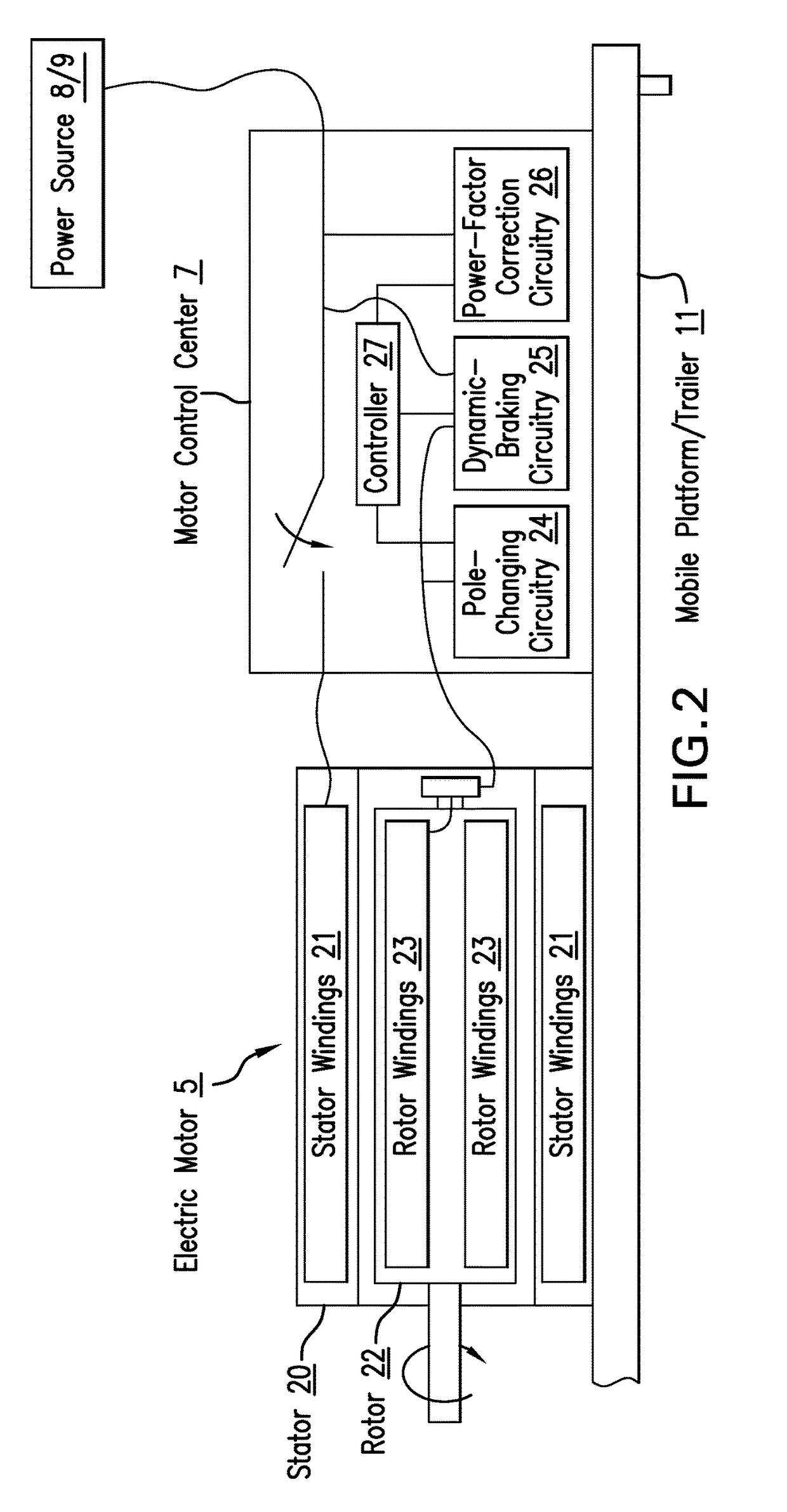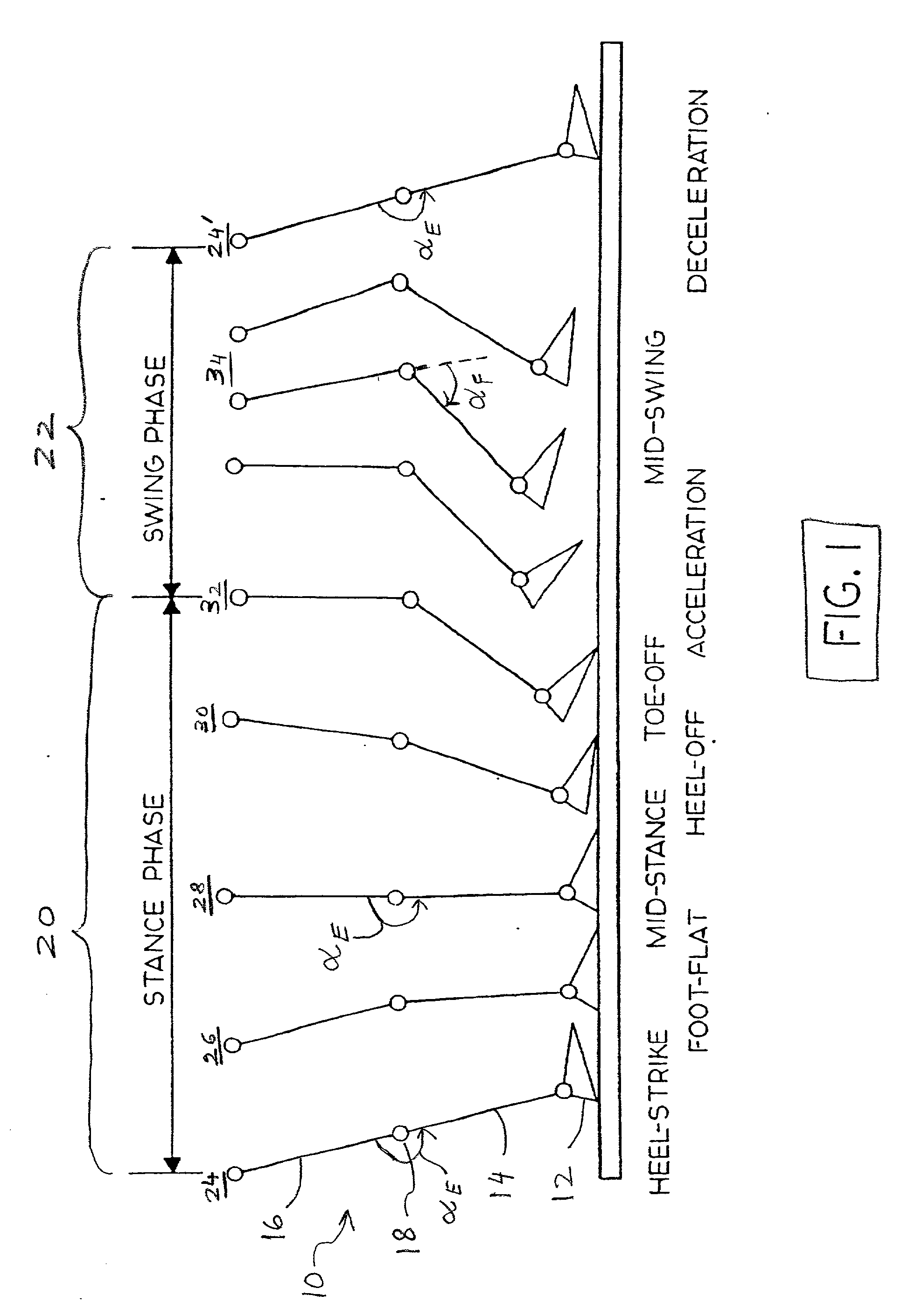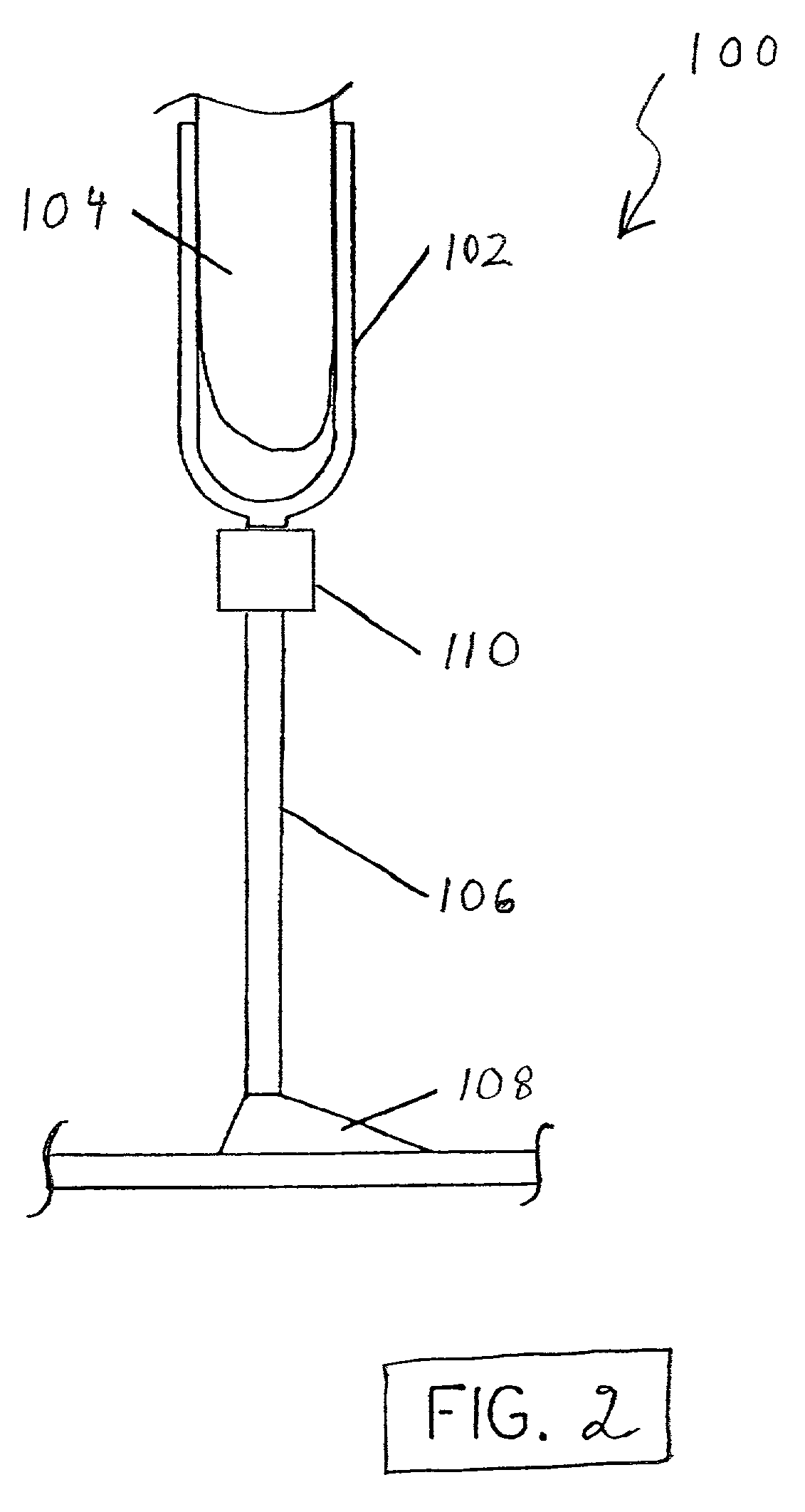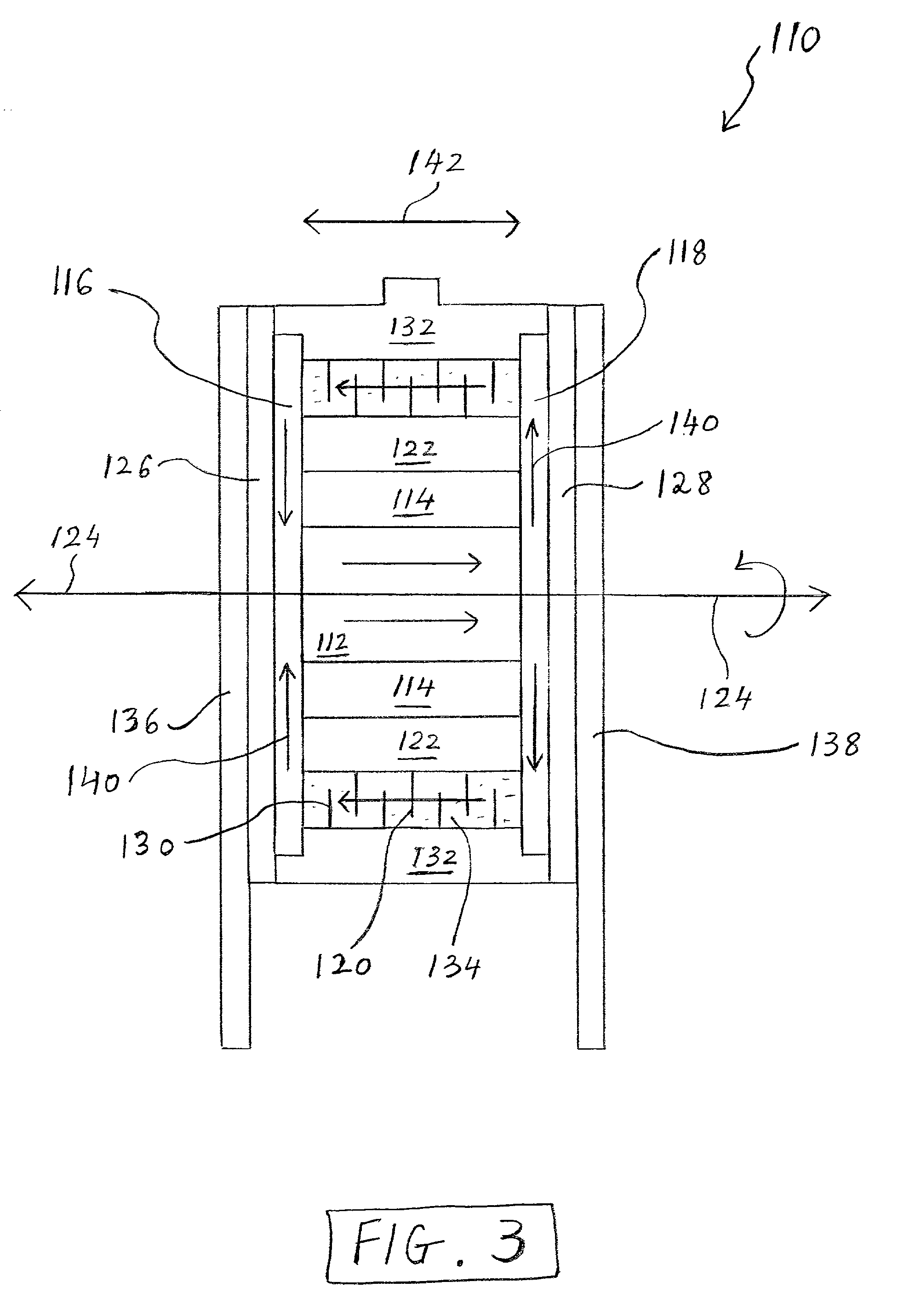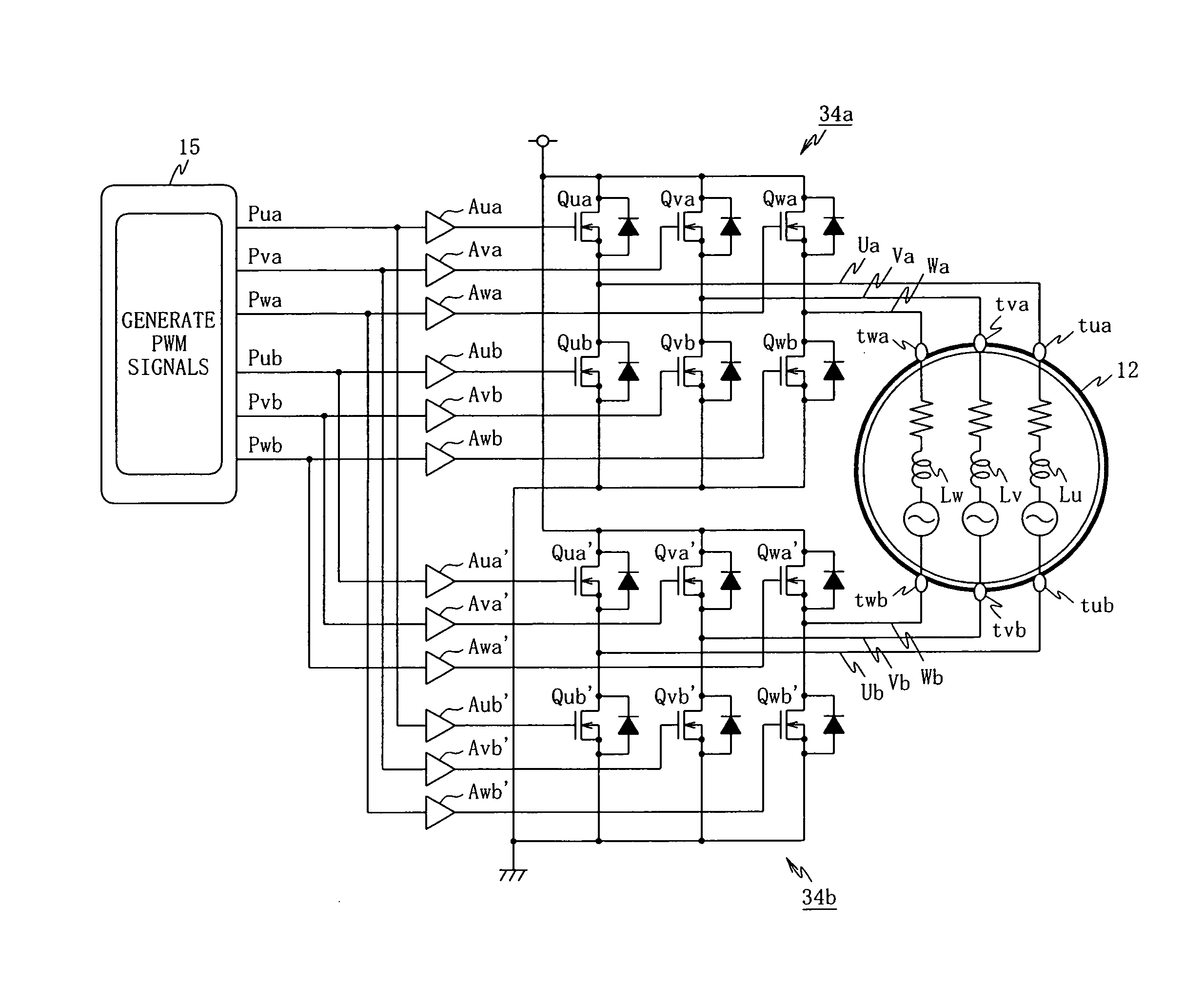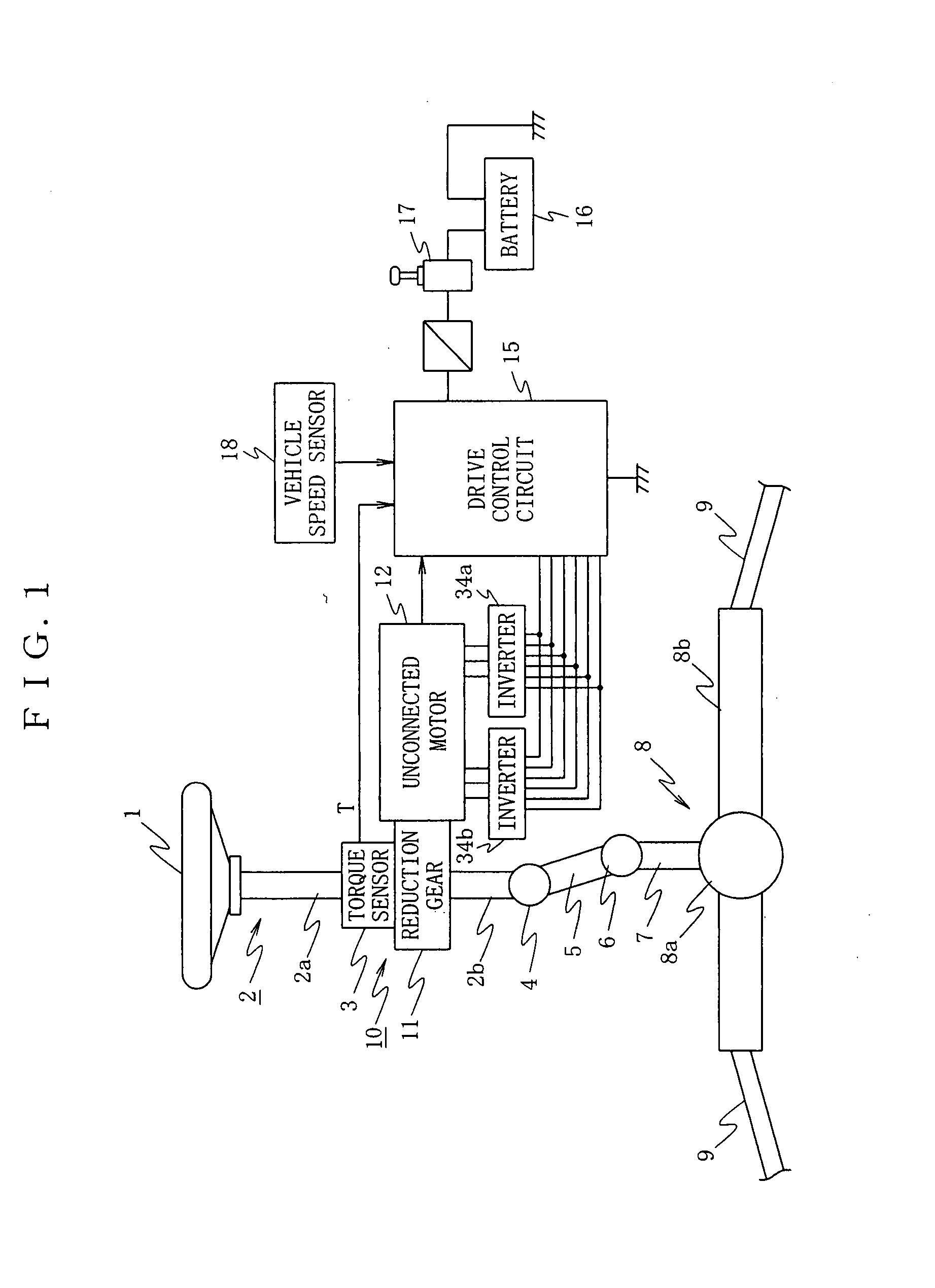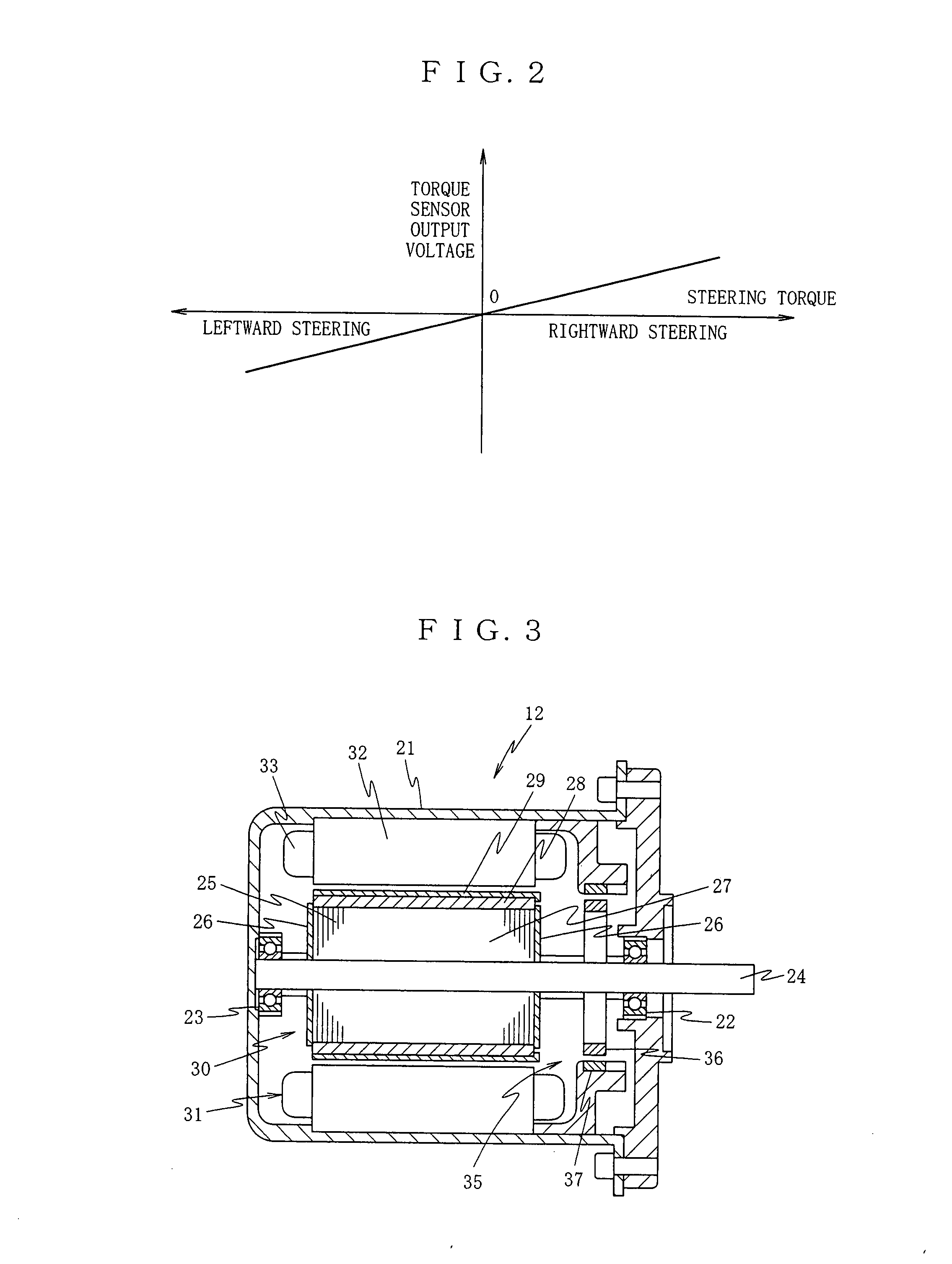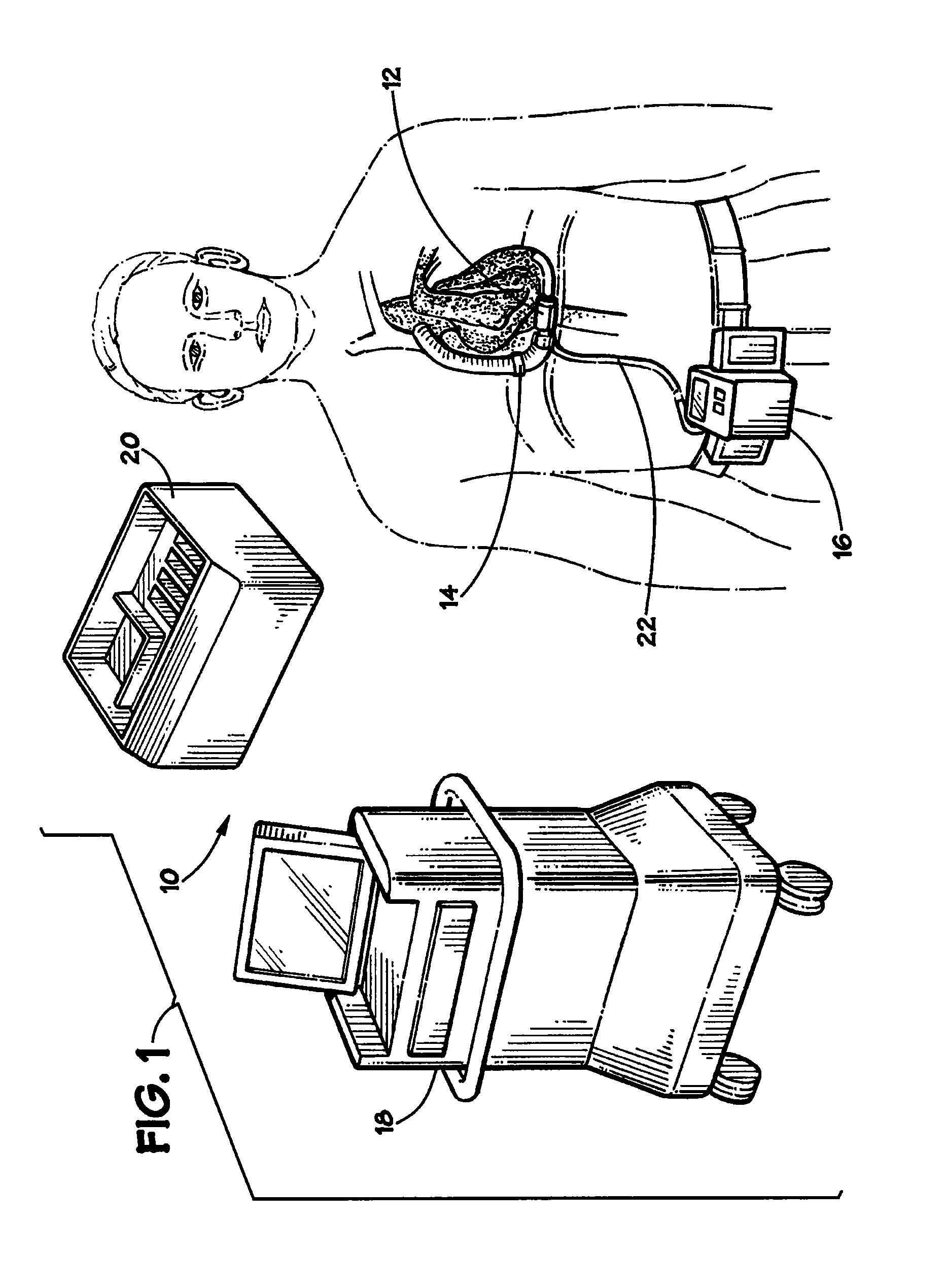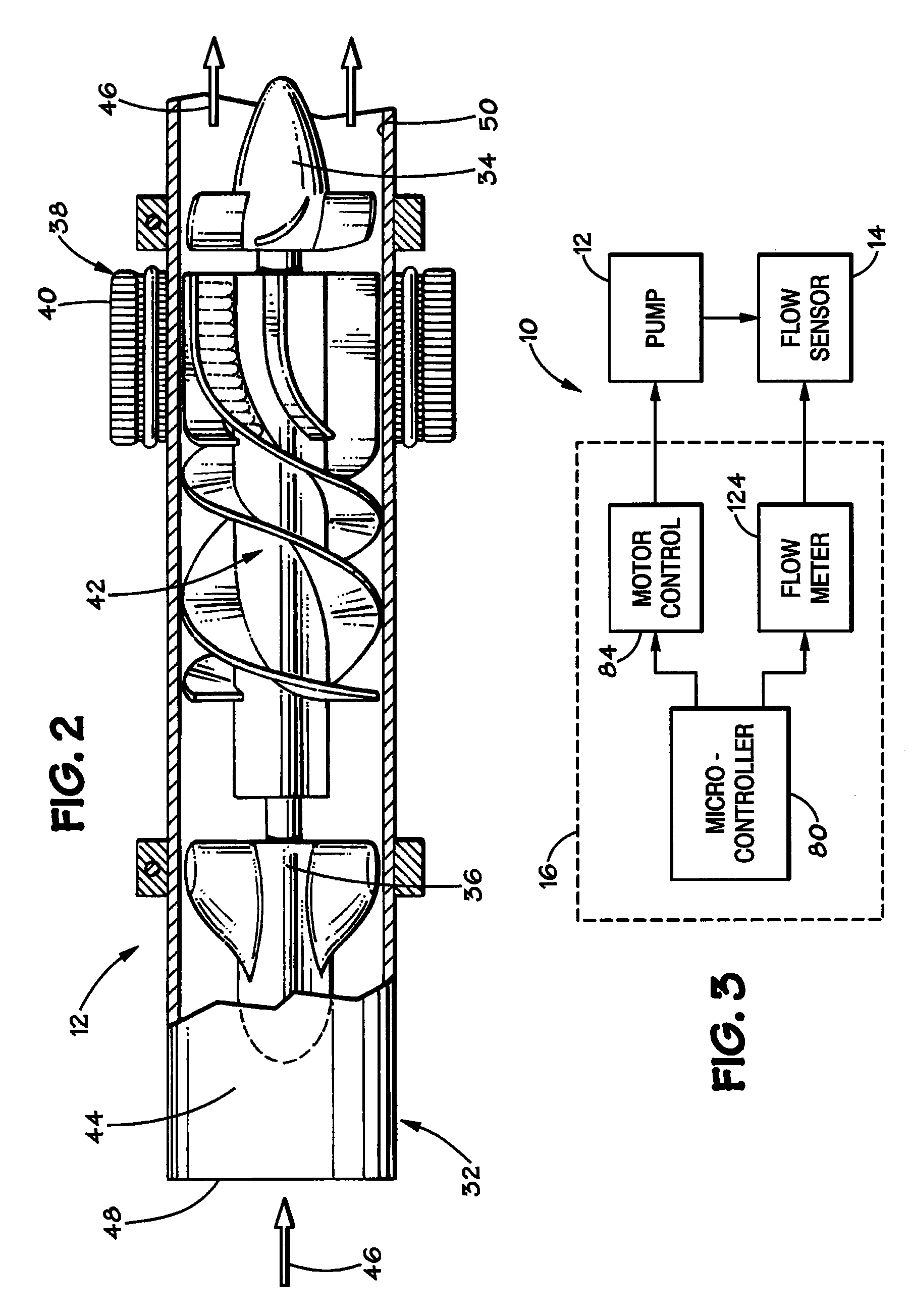Patents
Literature
Hiro is an intelligent assistant for R&D personnel, combined with Patent DNA, to facilitate innovative research.
71811 results about "Stator" patented technology
Efficacy Topic
Property
Owner
Technical Advancement
Application Domain
Technology Topic
Technology Field Word
Patent Country/Region
Patent Type
Patent Status
Application Year
Inventor
The stator is the stationary part of a rotary system, found in electric generators, electric motors, sirens, mud motors or biological rotors. Energy flows through a stator to or from the rotating component of the system. In an electric motor, the stator provides a rotating magnetic field that drives the rotating armature; in a generator, the stator converts the rotating magnetic field to electric current. In fluid powered devices, the stator guides the flow of fluid to or from the rotating part of the system.
Flat type vibration motor
InactiveUS8227946B2Increase connection forceReduce noiseMechanical energy handlingSupports/enclosures/casingsElectricityEngineering
There is provided a flat type vibration motor 100 that includes a bracket 150 with a shaft 140 of which one end is inserted into and fixed to the center thereof, a printed circuit board 110 having a terminal portion 130 receiving external electricity and disposed on the side of the bracket 150, a stator disposed on the top of the printed circuit board 110, a rotor 170 rotatably installed in the shaft 140 and generating vibration while rotating by interaction with the stator 160, and a stopper 180 installed at the other end of the shaft 140. The bracket 150 and the shaft 140 are electrically connected with the terminal portion 130. Further, it is possible to use the bracket or a shaft as an external power connection terminal by electrically connecting a negative terminal to the bracket and the shaft through the contact portion.
Owner:MPLUS
Electric machine having an integrally continuous stator winding and stator slot bridges
The invention includes an electric machine having a rotor, stator and at least one winding in the stator adapted to conduct a current, and a secondary winding, electrically isolated from the first winding and inductively coupled to the first winding, which may be used to control at least one of the output voltage and current of the first winding.
Owner:PRATT & WHITNEY CANADA CORP
Architecture for electric machine
InactiveUS7583063B2Magnetic circuitEmergency protective circuit arrangementsElectricityElectric machine
The invention includes an electric machine having a rotor, stator and at least one winding in the stator adapted to conduct a current, and a secondary winding, electrically isolated from the first winding and inductively coupled to the first winding, which may be used to control at least one of the output voltage and current of the first winding.
Owner:PRATT & WHITNEY CANADA CORP
Motor having controllable torque
InactiveUS8125168B2Single-phase induction motor startersCommutation monitoringMotor controlElectric motor
A controllable motor includes a rotor. A first stator winding set is operable, upon being energized, to generate and apply a first torque to the rotor. A second stator winding set independent of the first stator winding set is operable, upon being energized, to generate and apply a second torque to the rotor. A motor control is coupled to the first and second stator winding sets. The motor control is operable to selectively energize one of the first or second stator winding sets to thereby generate and apply one of the first or second torques to the rotor, and simultaneously energize both the first and second stator winding sets to thereby generate and apply a third torque greater than the first or the second torque.
Owner:HONEYWELL INT INC
Power tool
InactiveUS9731410B2Simplify device configurationEasy to understandDrilling rodsConstructionsHand heldEngineering
Owner:MAKITA CORP
Motorized surgical handpiece
A motorized surgical handpiece comprises a housing enclosing an interior containing a motor and an output shaft for being driven in rotation by the motor. The output shaft has a central longitudinal axis, a bore extending therethrough for receiving a shank of a surgical tool to be rotatably driven by the output shaft, a forward end portion extending forwardly beyond the motor and a rearward end portion extending rearwardly beyond the motor. The housing has a continuous lumen extending entirely therethrough formed in part by the output shaft bore for insertion of a bore brush through the lumen for cleaning when the surgical tool is removed from the handpiece. The handpiece has forward and rearward labyrinth seals comprising rotor components respectively attached to the forward and rearward end portions of the output shaft for rotation in corresponding stator components with there being a labyrinthine clearance between each rotor component and its stator component to receive pressurized air during use and during cleaning of the handpiece to avoid the entry of contaminants.
Owner:ROGERS WILLIAM G
Laser scanning module employing a laser scanning assembly having elastomeric wheel hinges
ActiveUS20140197239A1Less electric powerSpace minimizationSensing by electromagnetic radiationOptical elementsLaser scanningMirror mount
A laser scanning module employs a scan mirror and magnet rotor subassembly supported by a stator structure using a pair of elastomeric wheel hinges. The scan mirror and magnet rotor subassembly includes: a scan mirror and magnet rotor subassembly having a rotor frame having a pair of rotor support posts aligned along a scan axis passing through the rotor frame; a scan mirror mounted on the rotor frame; and a permanent magnet mounted on the rotor frame. The elastomeric wheel hinge includes a central portion having an aperture for passage and fixed attachment of one rotor support post, a plurality of elastomeric spoke portions extending from the central portion and radially extending from the central aperture to a circumferential rim portion connected to the outer end portion of each spoke portion so as to form the elastomeric wheel hinge.
Owner:HAND HELD PRODS
Laser scanning modules embodying silicone scan element with torsional hinges
ActiveUS8915439B2Easy to integrateSpace minimizationMirrorsRecord carriers used with machinesLaser scanningRestoring force
Owner:METROLOGIC INSTR
Blower with bearing tube
Owner:RESMED MOTOR TECH
Brushless DC motor with bearings
A brushless DC motor including a rotor, a magnet provided to the rotor, a pair of bearings to rotatably support the rotor, a stator assembly that at least partly surrounds the rotor and magnet thereof and adapted to control movement of the rotor, and a bearing tube having an exterior surface and an interior surface that defines a tube interior. The stator assembly is provided along the exterior surface of the tube and the bearings are provided along the interior surface of the tube to support the rotor and magnet within the tube interior. The motor has sample application for use in PAP devices for delivery of positive airway pressure therapy for users or patients.
Owner:RESMED MOTOR TECH
System and method for maintaining performance of battery-operated toothbrushes
ActiveUS8368327B2Maintain performanceIncrease range of motionMotor/generator/converter stoppersDC motor speed/torque controlVoltage dropEngineering
The system periodically measures the battery voltage of the toothbrush and the current in a stator portion of the motor for the appliance. The amplitude of movement of the toothbrush workpiece is determined from the measured stator current. A circuit / control program changes the duty cycle or pulse width of the drive signal from the motor if the battery voltage drops below a first threshold value and a circuit or control program changes the drive frequency of the appliance if the amplitude of the workpiece movement falls below a first threshold value. A circuit / control program terminates the operation of the toothbrush if the voltage drops below a second threshold value or if the amplitude drops below a second threshold value, both of which are less than the respective first thresholds.
Owner:KONINKLIJKE PHILIPS ELECTRONICS NV
Wide blade, axial flow pump
ActiveUS7699586B2Increase the magnetic fluxReduce air gapControl devicesBlood pumpsAxial-flow pumpImpeller
A blood pump comprises a pump housing; a rotor positioned in the housing and comprising an impeller having a hydrodynamic surface for pumping blood; and a motor including a plurality of magnets carried by the impeller, plus a rotor stator, including an electrically conductive coil located adjacent to or within the housing. The impeller comprises radially outwardly extending, bladelike projections that define generally longitudinally extending spaces between the projections. The shape of the projections and the spaces therebetween tend to drive blood in the spaces in an axial direction as the impeller is rotated. The spaces collectively have a total width along most of their lengths at the radial periphery of the rotor, that is substantially equal to or less than the collective width of the projections along most of their lengths at the radial periphery. Thus, the bladelike projections are thicker, achieving significant advantages.
Owner:HEARTWARE INC
Temporary blood circulation assist device
InactiveUS6981942B2Avoid lacerationsPrevent perforationBlood pumpsIntravenous devicesImpellerEngineering
An inflatable circulation assist device is disclosed consisting of an inflatable stator housing an impeller with inflatable blades of varying shapes and sizes. The invention is introduced into the patient percutaneously. The circulation assist device is a small pump packaged into a compact form that is attached to a long flexible driveshaft. The pump is inserted along a guidewire to a target location, and then the pump is inflated. The circulation assist device's exterior is designed to expand only so much as to closely fit whatever cardiovascular system element in which it is placed for operation. The vascular assist device can be expanded either by inflation with a fluid. The driveshaft, which connects to the circulation assist device's impeller and extends outside the patient's body, is rotated by an external motor. After the circulation assist device is no longer needed, it is collapsed into a compact form and removed from the patient percutaneously.
Owner:RUTGERS THE STATE UNIV
Electronically controlled prosthetic knee
InactiveUS6764520B2Improve efficiencyImprove practicalitySpringsNon-rotating vibration suppressionLow speedMagnetorheological fluid
The present invention relates to a variable-torque magnetorheologically actuated prosthetic knee which utilizes a plurality of interspersed and alternating rotors and stators to shear magnetorheological fluid in gaps formed therebetween. Advantageously, by operating in the "shear mode" there is substantially no or negligible fluid pressure buildup or change. Moreover, the multiple MR fluid gaps or flux interfaces desirably allow for the production of a large torque at low speed-eliminating the need for a transmission-and also for a wide dynamic torque range. One embodiment of the invention allows the rotors and / or stators to close the gaps therebetween to create a frictional torque component, thereby forming a "hybrid" braking system which provides a total torque or damping which is a combination of viscous torque and frictional torque.
Owner:MASSACHUSETTS INST OF TECH
Blower with bearing tube
A blower includes a stationary portion including an inlet and an outlet, a rotating portion provided to the stationary portion, and a motor adapted to drive the rotating portion. The inlet and outlet are co-axially aligned. The stationary portion includes a housing, a stator component provided to the housing, and a tube providing an interior surface. The rotating portion includes one or more bearings that are provided along the interior surface of the tube to support a rotor within the tube. In an embodiment, the blower is structured to supply air at positive pressure.
Owner:RESMED MOTOR TECH
Systems and methods for powering a gimbal mounted device
Gimbal power systems and methods are operable to provide power to a device attached to the gimbal. An exemplary embodiment is configured to rotate a rotational member of the gimbal system about an axis, wherein a stator of a rotary power transformer affixed to the rotational member rotates about the axis, and wherein an end of an electrical connection coupled to a power connector of a rotor winding of the rotary power transformer remains substantially stationary as the stator of the rotary power transformer rotates about the axis.
Owner:HONEYWELL INT INC
Variable magnetic flux electric rotary machine
InactiveUS20100164422A1Easy to operateWide operating speed rangeDC motor speed/torque controlRailway vehiclesElectrical polarityEngineering
An electric rotary machine is disclosed which can adjust relative angles of sub-rotors continuously and regardless of torque direction without generating an attractive force between the field magnets of the sub-rotors. The electric rotary machine includes: a stator having a winding; a dual rotor which is rotatably disposed with a gap from the stator and divided axially along a shaft into a first rotor and a second rotor each having field magnets with different polarities arranged alternately in a rotation direction; a mechanism for varying the axial position of the second rotor relative to the first rotor continuously; and a non-magnetic member located between the first rotor and the second rotor.
Owner:HITACHI LTD
Modular pressure swing adsorption with energy recovery
InactiveUS6051050AHigh-frequency operationCompact equipmentIsotope separationRefluxProcess engineering
Pressure swing adsorption (PSA) separation of a feed gas mixture is performed within an apparatus having typically a single prime mover powering a feed compressor for one or multiple rotary PSA modules in parallel, each module including a rotor with a large number of angularly spaced adsorber elements, with valve surfaces between the rotor and a stator so that individual adsorber elements are opened to compartments for staged pressurization and blowdown, with thermally boosted energy recovery from staged expansion of countercurrent blowdown and light reflux gases, and a plurality of adsorber elements opened at any instant to each compartment so that each compressor and expander stage operates under substantially steady conditions of flow and pressure.
Owner:AIR PROD & CHEM INC
Method and apparatus to determine rotational position of an electrical machine
ActiveUS20080272717A1Reduce installationReduce alignment requirementsAuxillary drivesElement comparisonElectricityControl system
A control system and method to determine position of a rotor relative to a stator for a synchronous multipole electrical machine is presented, including one for application on a fuel / electric hybrid powertrain for a vehicle. The machine includes a stator, a rotor, and a rotor position sensing mechanism. The control system controls the electrical machine, in conjunction with an electrical storage device and an inverter, using algorithms and calibrations which derive a rotor position based upon a sensorless position sensing technique, and determine an offset from a sensed rotor position. Electrical output from the inverter to the machine is controlled based the offset, which is stored non-volatile memory. A rotor position is derived based upon a sensorless position sensing technique during initial machine operation after startup of the machine, and includes operation in a torque-generative mode and in an electrical energy-generative mode.
Owner:GM GLOBAL TECH OPERATIONS LLC
Intravascular ventricular assist device
One aspect of an intravascular ventricular assist device is an implantable blood pump where the pump includes a housing defining a bore having an axis, one or more rotors disposed within the bore, each rotor including a plurality of magnetic poles, and one or more stators surrounding the bore for providing a magnetic field within the bore to induce rotation of each of the one or more rotors. Another aspect of the invention includes methods of providing cardiac assistance to a mammalian subject as, for example, a human. Further aspects of the invention include rotor bodies having helical channels formed longitudinally along the length of the body of the rotor where each helical channel is formed between peripheral support surface areas facing radially outwardly and extending generally in circumferential directions around the rotational axis of the rotor.
Owner:HEARTWARE INC
Electric machine
InactiveUS6373160B1Economically manufacturedEconomically usedSpeed controllerSynchronous machine detailsElectric machineEngineering
Electric rotary current machine that includes a casing and a stator fitted within the casing. The stator has at least one stator winding. At least two mechanically separate rotors are rotatably mountable within the casing and have a same axis of rotation. In this way, each rotor has electromagnetic interaction with the stator when the stator is electromagnetically active. The rotor speeds are the same or different. A motor control is arranged to control a supply to at least one of said at least one stator winding by superposition of at least two rotary field components, one for each rotor.
Owner:SCHRODL MANFRED
Wind energy conversion system
InactiveUS6952058B2Reduced weight and mass and costAdjustable sizePropellersWind motor supports/mountsWind energy conversionEngineering
A wind energy conversion system includes upper and lower wind turbines having counter-rotating blade assemblies supported for rotation about a vertical rotation axis, with each blade assembly carrying a rotor for rotation past a stator to produce an electrical output. The wind turbines are supported by a tower at an elevated position above the ground. Each wind turbine produces torque, and the wind energy conversion system provides for balancing the torques to avoid a net torque on the tower. Adjustment mechanisms are provided for adjusting blade pitch and for adjusting the size of an air gap between a stator and a rotor that comes into alignment with the stator as the rotor rotates therepast. The wind energy conversion system provides a hood for supplying intake air to a wind turbine and an exhaust plenum for exhausting air from the wind turbine, with the hood and the exhaust plenum being directionally positionable.
Owner:WECS
Power converters
ActiveUS20070121354A1Ac-dc conversion without reversalWind motor combinationsNetwork terminationPower switching
The present invention provides_a power converter that can be used to interface a generator (4) that provides variable voltage at variable frequency to a supply network operating at nominally fixed voltage and nominally fixed frequency and including features that allow the power converter to remain connected to the supply network and retain control during supply network fault and transient conditions. The power converter includes a generator bridge (10) electrically connected to the stator of the generator (4) and a network bridge (14). A dc link (12) is connected between the generator bridge (10) and the network bridge (14). A filter (16) having network terminals is connected between the network bridge (14) and the supply network. A first controller (18) is provided for controlling the operation of the semiconductor power switching devices of the generator bridge (14). Similarly, a second controller (46) is provided for controlling the operation of the semiconductor power switching devices of the network bridge (14). The first controller (18) uses a dc link voltage demand signal (VDC13 GEN*) indicative of a desired dc link voltage to control the semiconductor power switching devices of the network bridge (10) to achieve the desired level of dc link voltage that corresponds to the dc link voltage demand signal (VDC13 GEN*). The second controller (46) uses a power demand signal (P*) indicative of the level of power to be transferred from the dc link to the supply network through the network bridge (14), and a voltage demand signal (VTURB*) indicative of the voltage to be achieved at the network terminals of the filter (16) to control the semiconductor power switching devices of the network bridge (14) to achieve the desired levels of power and voltage that correspond to the power and voltage demand signals (P* and VTURB*).
Owner:GE POWER CONVERSION
Conductor optimized axial field rotary energy device
ActiveUS7109625B1Association with control/drive circuitsMagnetic circuit rotating partsElectrical conductorEngineering
The present invention provides an axial rotary energy device which is arranged in a multi-phase electric current configuration. The device includes a rotor having a plurality of permanent magnet poles secured thereto and further includes a stator formed by stacking a plurality of printed circuit board working conductor layers together with a plurality of printed circuit board connecting layers. The stator having at least one working conductor layer for each phase of the electric current and at least one connecting conductor layer associated with one working conducting layer. The working conductor layer and the connecting conductor layer each having radial conductors extending from an inner diameter through-hole to an outer diameter through-hole. A plurality of via conductors are provided for electrically connecting selected ones of the radial connectors of the connecting conductor layer to selected ones of the radial connectors of the working conductor layers through the through-holes.
Owner:CORE MOTION
Laser scanning modules embodying silicone scan element with torsional hinges
ActiveUS20130200158A1Easy to integrateSpace minimizationMirrorsSensing by electromagnetic radiationLaser scanningRestoring force
Laser scanning module employing a scan mirror and magnet rotor subassembly supported by a stationary stator structure. The scan mirror and magnet rotor subassembly includes: a silicone frame having a pair of silicone torsional hinges (i.e. posts) aligned along a scan axis and a supported by a pair of support elements associated with the stator structure, to support the scan mirror and magnet rotor subassembly. When the scan mirror and magnet rotor subassembly is rotated about its scan axis, by forces generated by an electromagnetic coil structure acting on the permanent magnet mounted on silicone frame, the silicone torsional hinges are elastically distorted and generate linear restoring forces which return the rotor subassembly back to its home position about the scan axis.
Owner:METROLOGIC INSTR
Fixed frequency high-pressure high reliability pump drive
An apparatus configured to hydraulically fracture an earth formation, includes a pump configured to hydraulically fracture the earth formation by pumping a fracturing liquid into a borehole penetrating the earth formation and an electric motor having a rotor coupled to the pump and a stator. A motor control center is configured to apply an alternating electrical voltage having a fixed-frequency to the stator in order to power the electric motor, wherein the apparatus and motor control center do not have a variable frequency drive.
Owner:BJ ENERGY SOLUTIONS LLC FORMERLY TES ASSET ACQUISITION LLC
Electronically controlled prosthetic knee
InactiveUS20010029400A1Move and/or adapt comfortably and safelyImprove efficiencySpringsNon-rotating vibration suppressionFriction torqueMagnetorheological fluid
The present invention relates to a variable-torque magnetorheologically actuated prosthetic knee which utilizes a plurality of interspersed and alternating rotors and stators to shear magnetorheological fluid in gaps formed therebetween. Advantageously, by operating in the "shear mode" there is substantially no or negligible fluid pressure buildup or change. Moreover, the multiple MR fluid gaps or flux interfaces desirably allow for the production of a large torque at low speed-eliminating the need for a transmission-and also for a wide dynamic torque range. One embodiment of the invention allows the rotors and / or stators to close the gaps therebetween to create a frictional torque component, thereby forming a "hybrid" braking system which provides a total torque or damping which is a combination of viscous torque and frictional torque.
Owner:MASSACHUSETTS INST OF TECH
Motor mounted in a vehicle
PCT No. PCT / JP96 / 02929 Sec. 371 Date Jun. 25, 1998 Sec. 102(e) Date Jun. 25, 1998 PCT Filed Oct. 9, 1996 PCT Pub. No. WO97 / 26700 PCT Pub. Date Jul. 24, 1997A motor mounted in a vehicle having a winding comprising a flat band-like copper wire is provided. The winding is wound on a projection that extends radially inward of a stator. The winding includes a first band-like section that is adapted to be wound on a radially inward portion of the projection of the stator. The winding also includes a connection section that is continuous with one longitudinal end of the first band-like section and extends radially outward along the radial direction of the projection of the stator. The winding further includes a second band-like section that is adapted to be wound on a radially outward portion of the projection of the stator. One longitudinal end of the second band-like section is continuous with the connection section. The first band-like section extends from a radially inward portion of the connection section and the second band-like section extends from a radially outward portion of the connection section. The first and second band-like sections extend from the connection section in opposite directions.
Owner:NIPPON DENSAN CORP
Unconnected Motor, Drive Control Device Thereof, And Electric Power Steering Device Using Drive Control Device Of Unconnected Motor
InactiveUS20080067960A1Constant gainIncreased current consumptionMotor/generator/converter stoppersSynchronous motors startersElectric power steeringControl signal
A drive control device of an unconnected motor capable of resolving power shortage and increasing motor output without using a boost circuit, and an electric power steering device using the unconnected motor. The drive control device comprises an unconnected motor (12) having a rotor in which permanent magnets are allocated and a stator opposing the rotor, in which armature winding Lu to Lw of a plurality (N number) of phases are independently arranged, a pair of inverter circuits (34a, 34b) individually connected to both ends of each armature winding, and a drive control circuit (15) which drives the pair of inverter circuits (34a, 34b) with a predetermined number (e.g. 2N) of PWM drive control signals.
Owner:NSK LTD
Method and system for detecting ventricular collapse
A pump system includes an implantable pump including a motor having a rotor and a stator. The stator includes a plurality of stator windings, and a motor controller is coupled to the motor to energize the windings so as cause the rotor to turn. A time-based system parameter of the pump is sampled and the system parameter is analyzed to calculate a suction probability index that provides an indication of the imminence of ventricle collapse.
Owner:RELIANTHEART
Features
- R&D
- Intellectual Property
- Life Sciences
- Materials
- Tech Scout
Why Patsnap Eureka
- Unparalleled Data Quality
- Higher Quality Content
- 60% Fewer Hallucinations
Social media
Patsnap Eureka Blog
Learn More Browse by: Latest US Patents, China's latest patents, Technical Efficacy Thesaurus, Application Domain, Technology Topic, Popular Technical Reports.
© 2025 PatSnap. All rights reserved.Legal|Privacy policy|Modern Slavery Act Transparency Statement|Sitemap|About US| Contact US: help@patsnap.com
